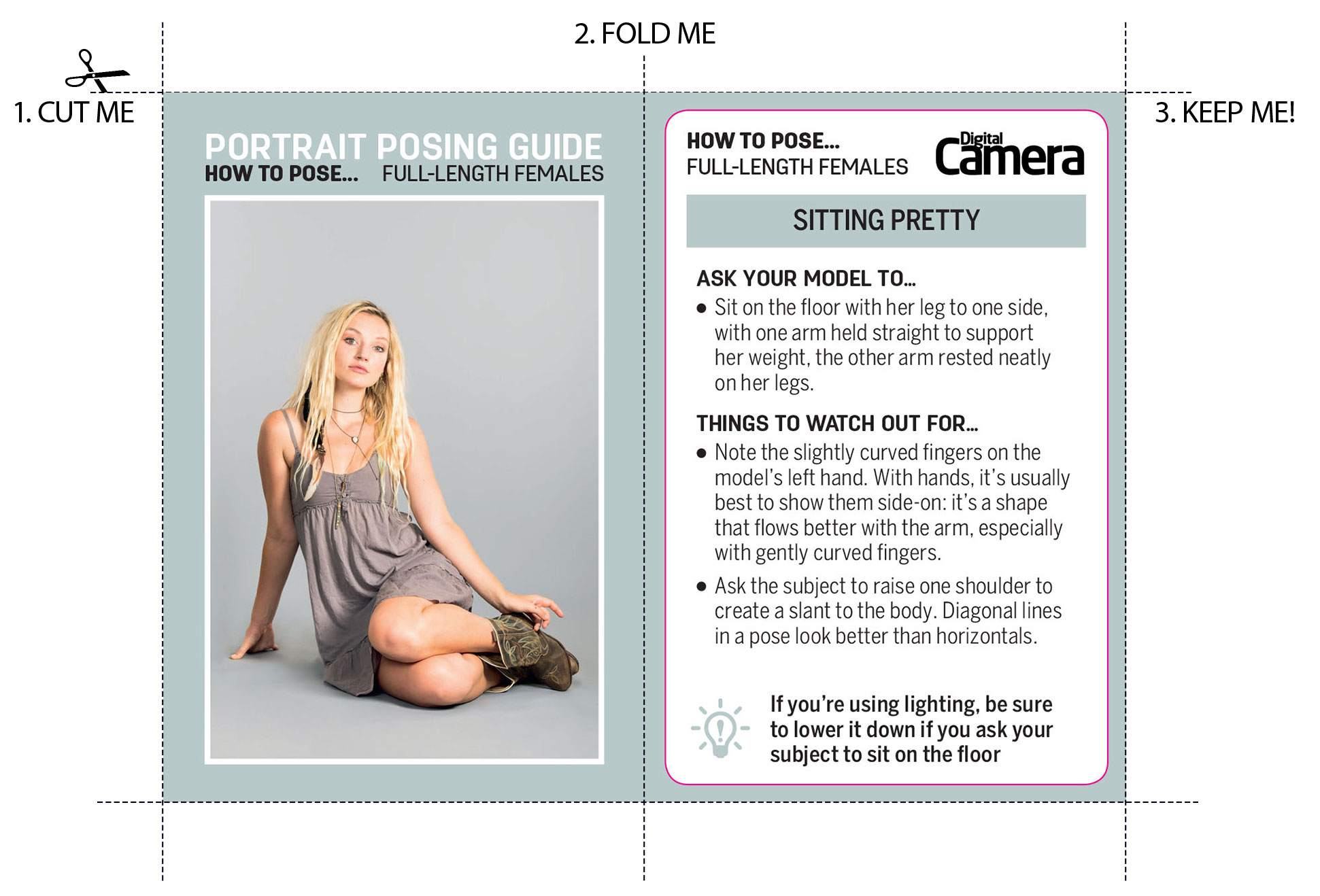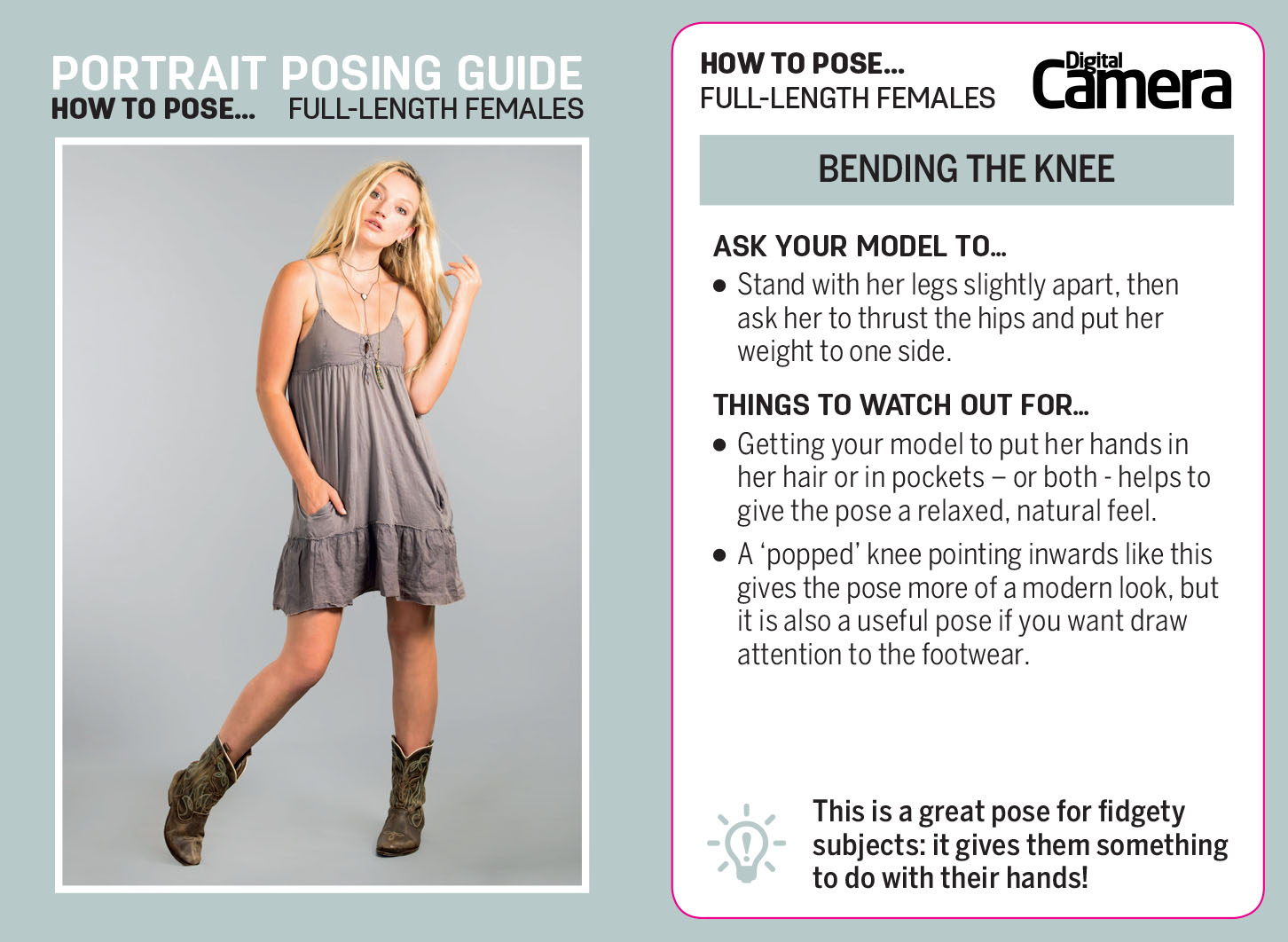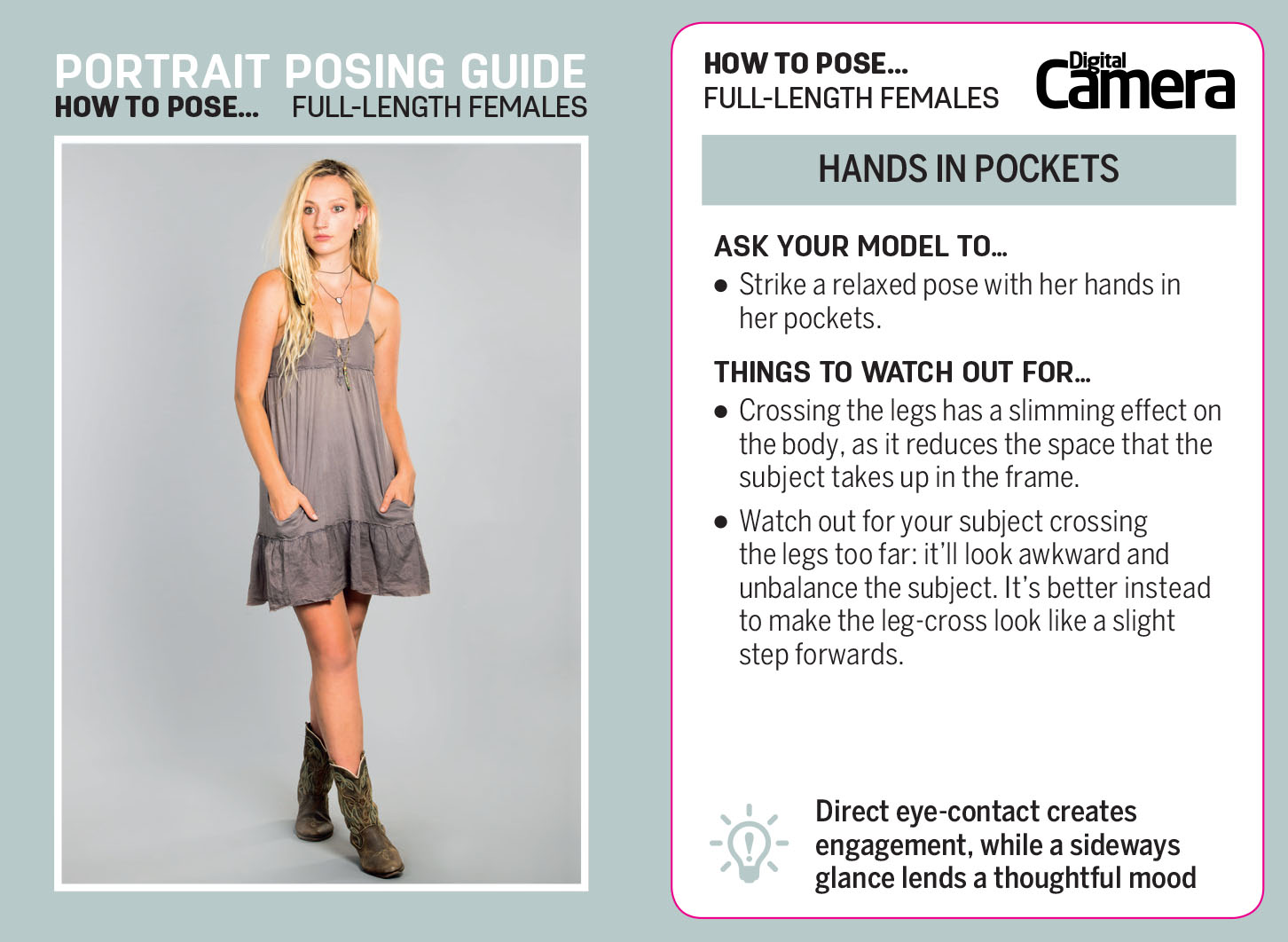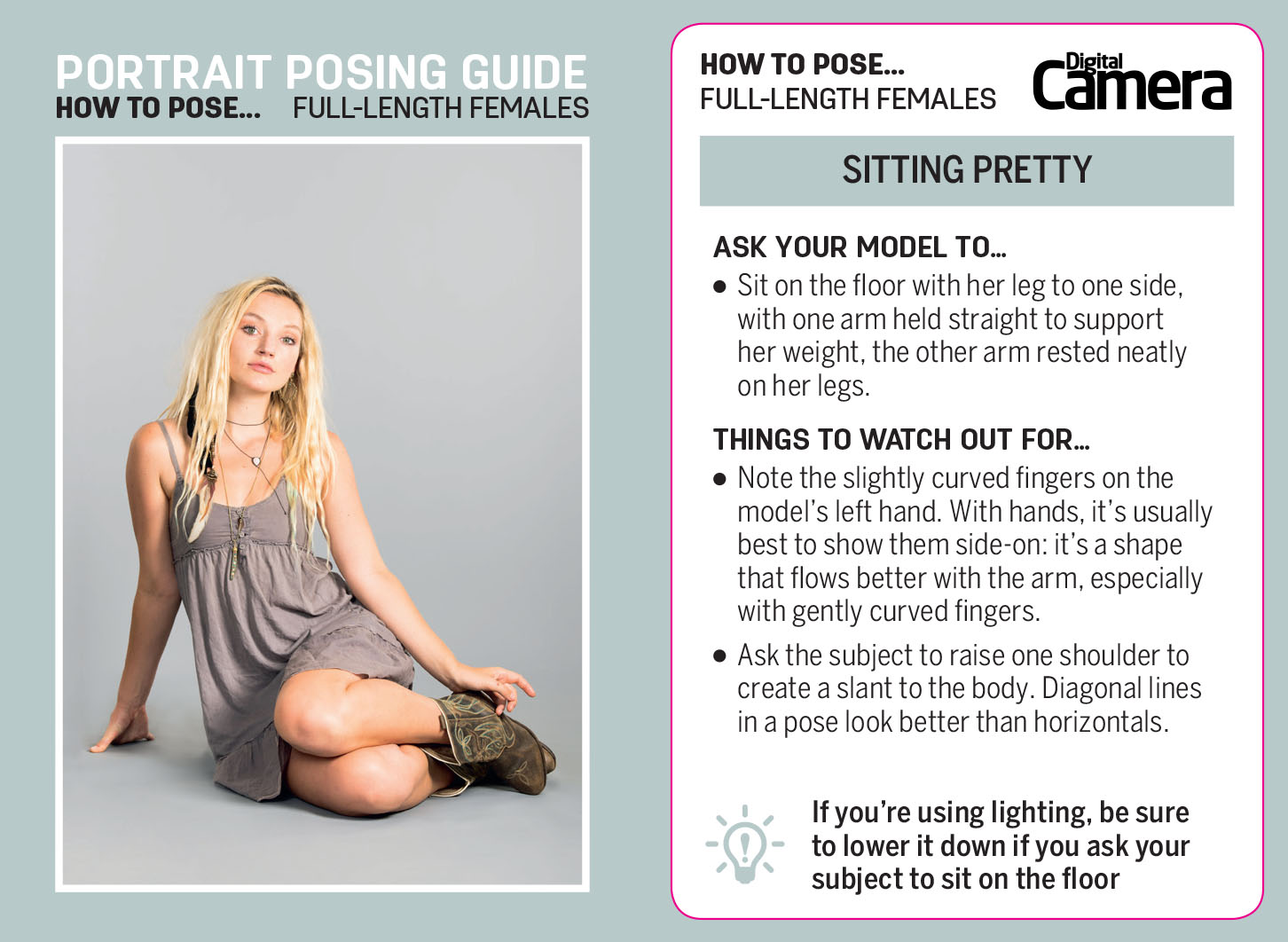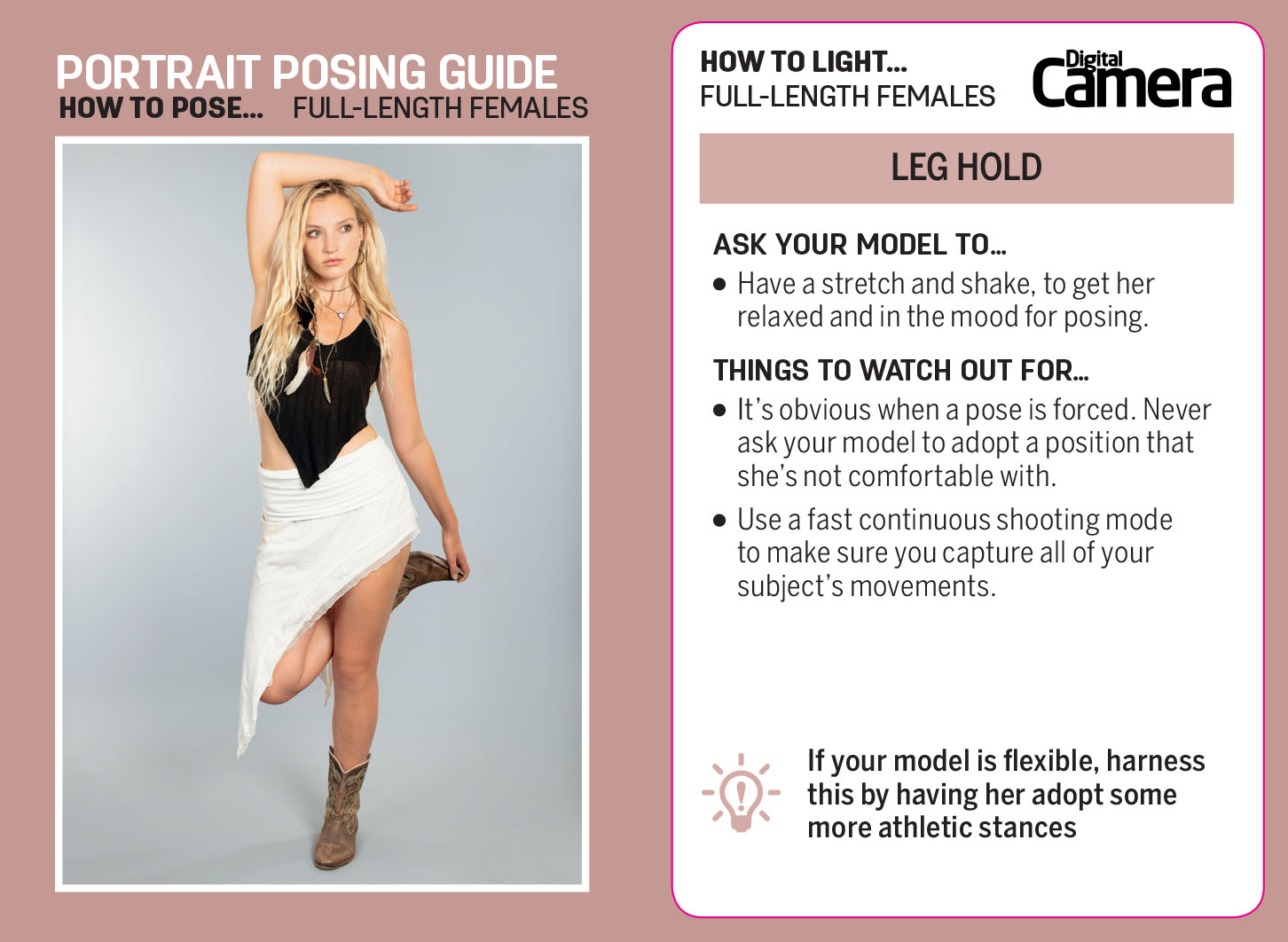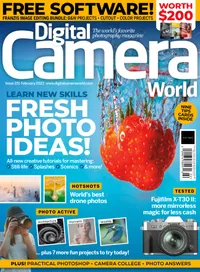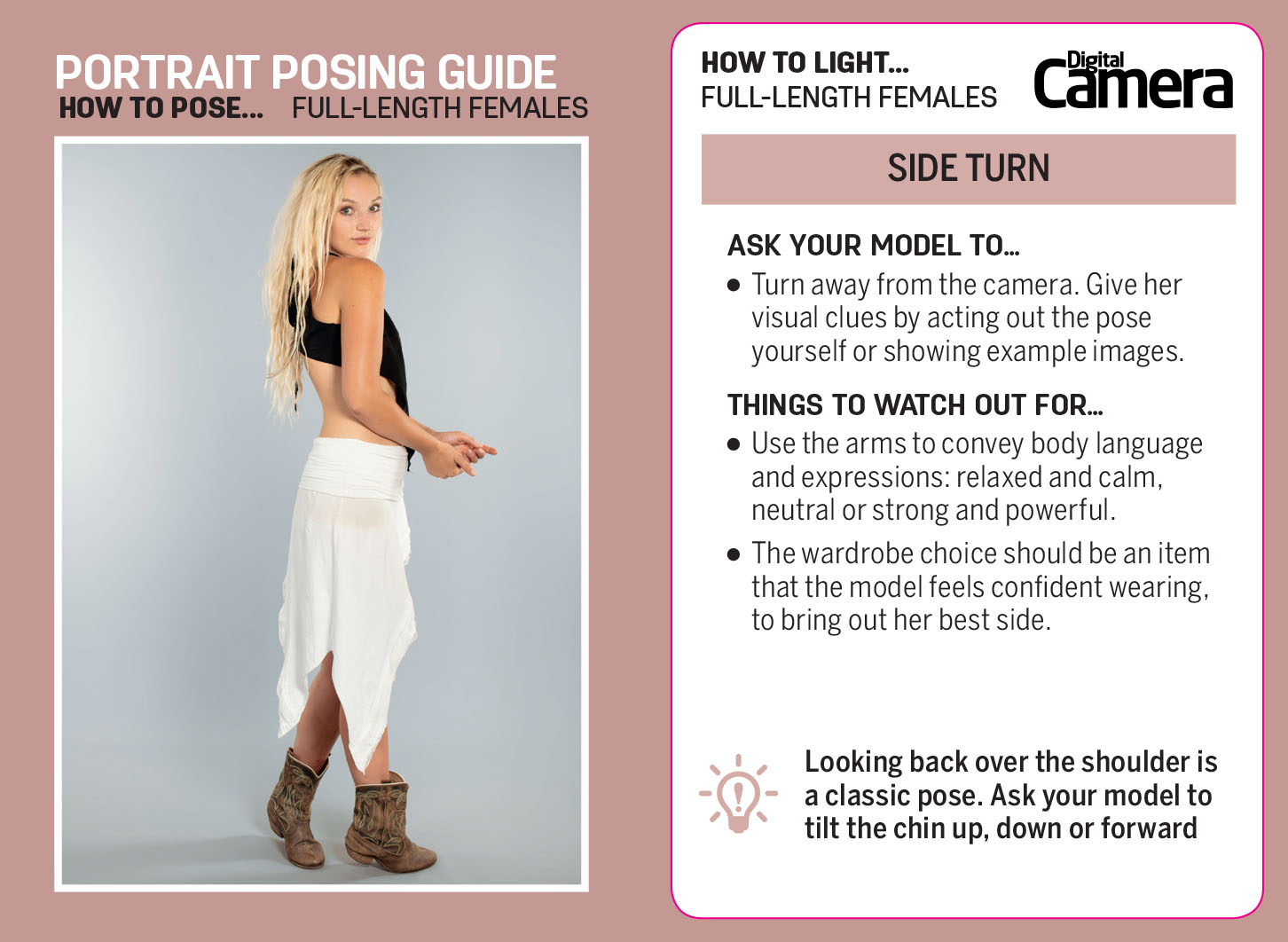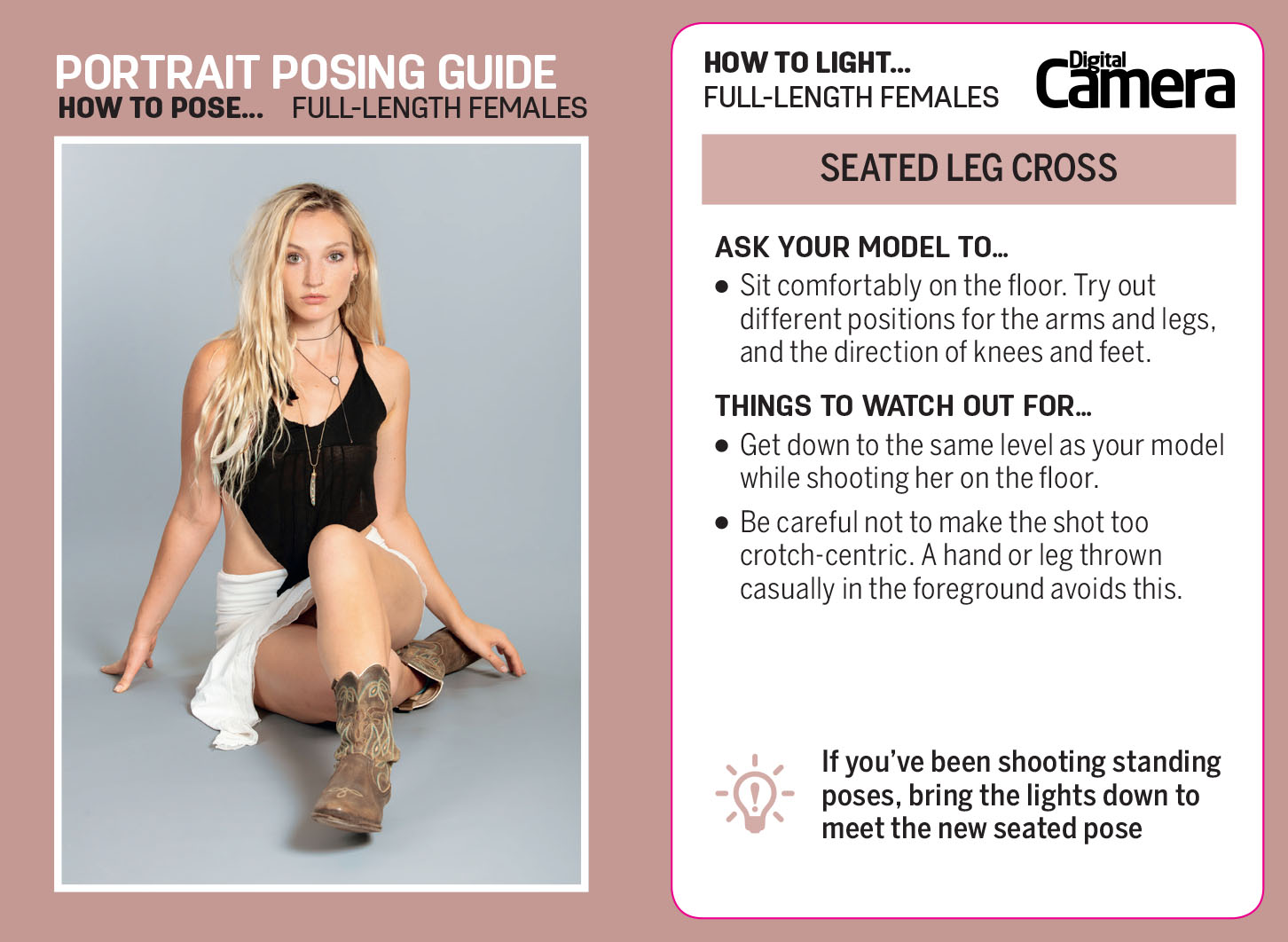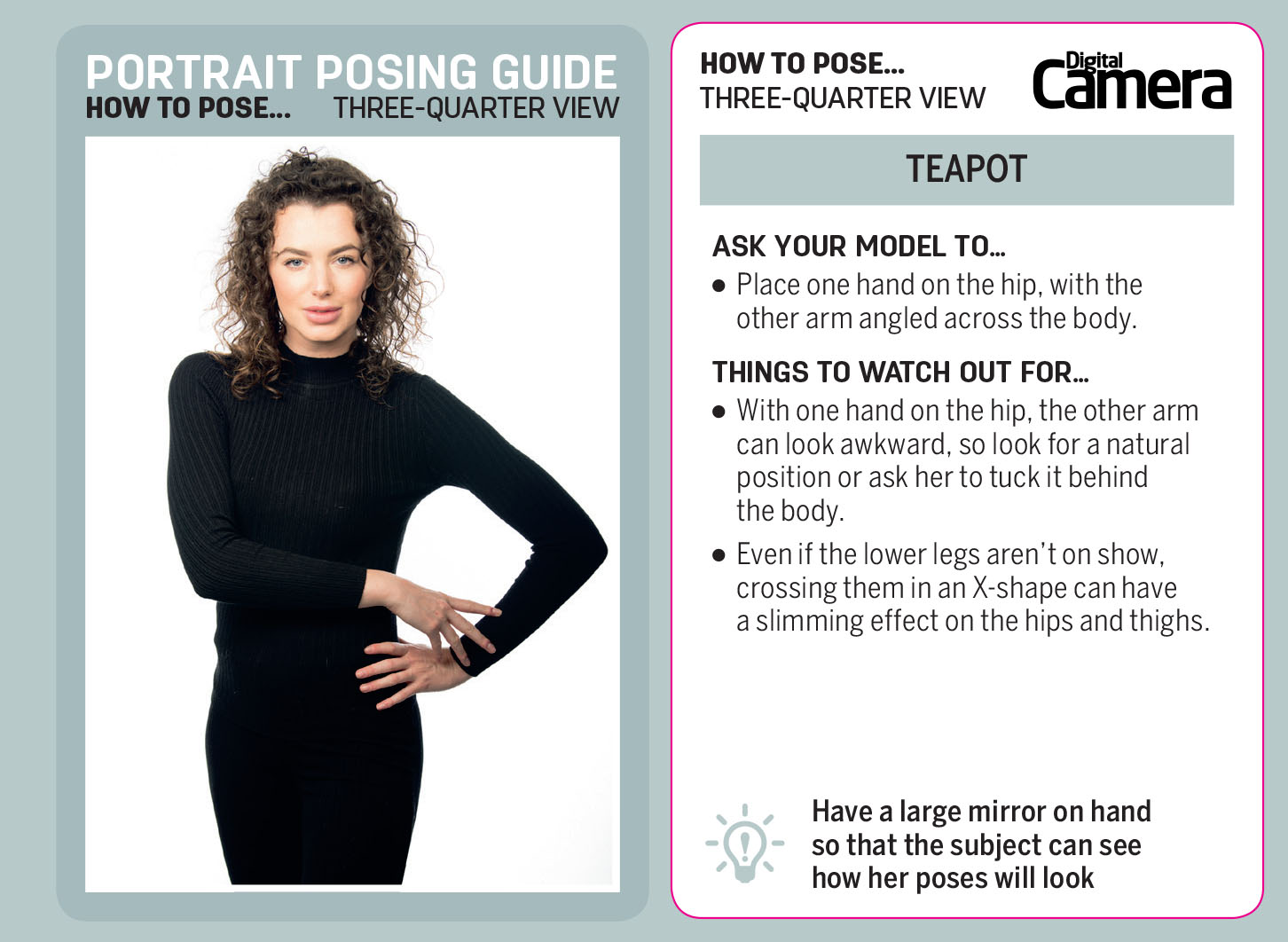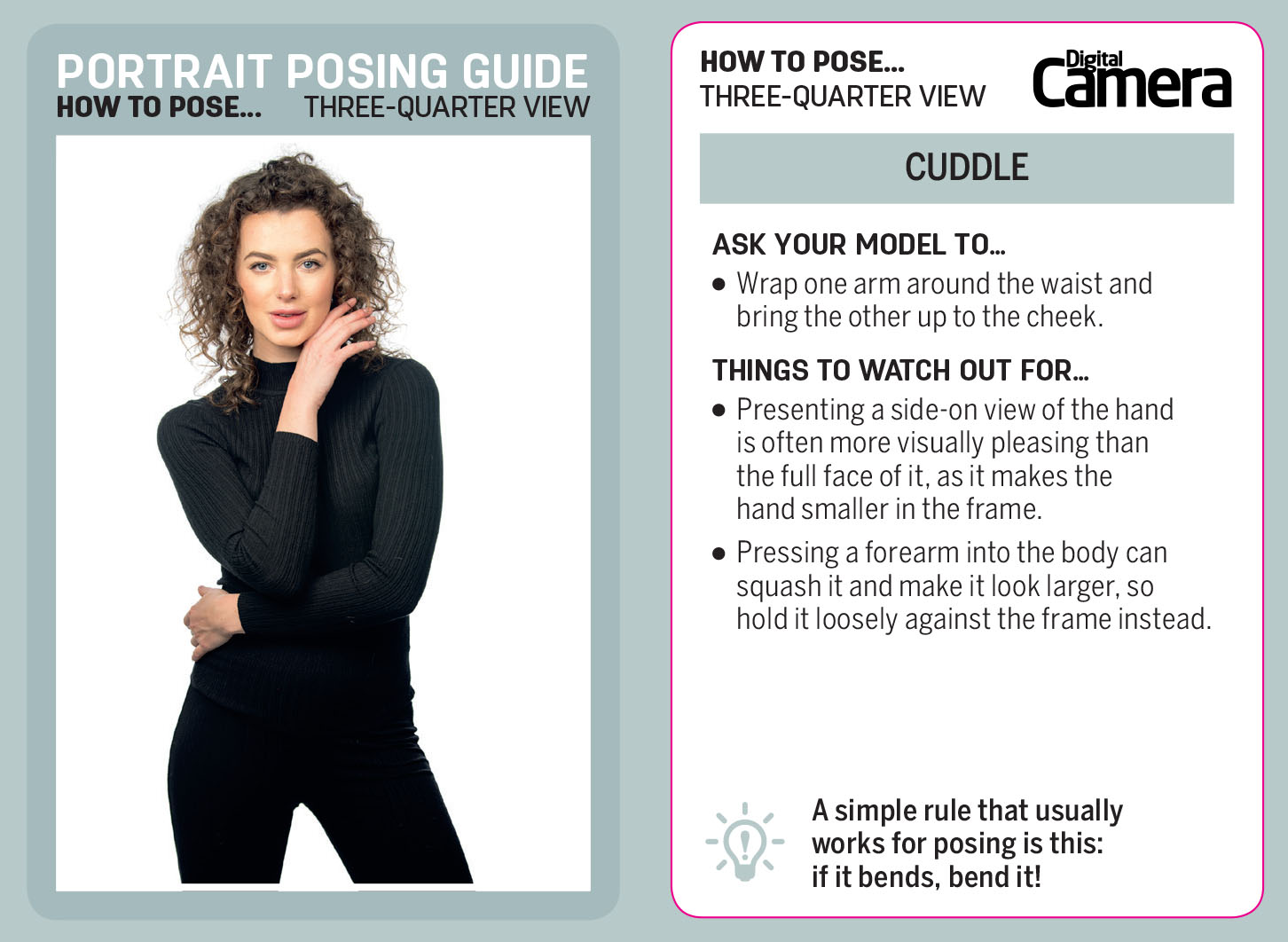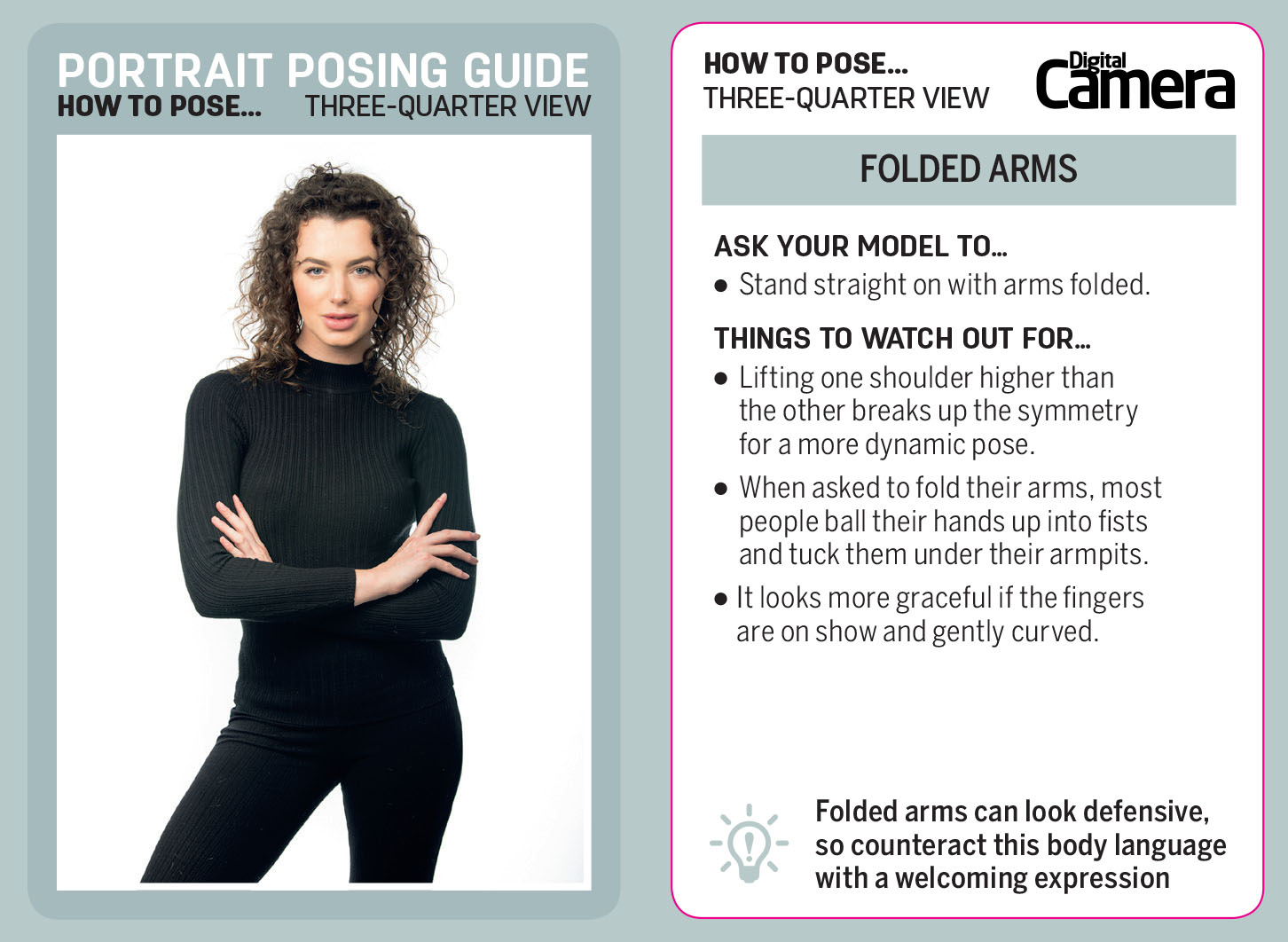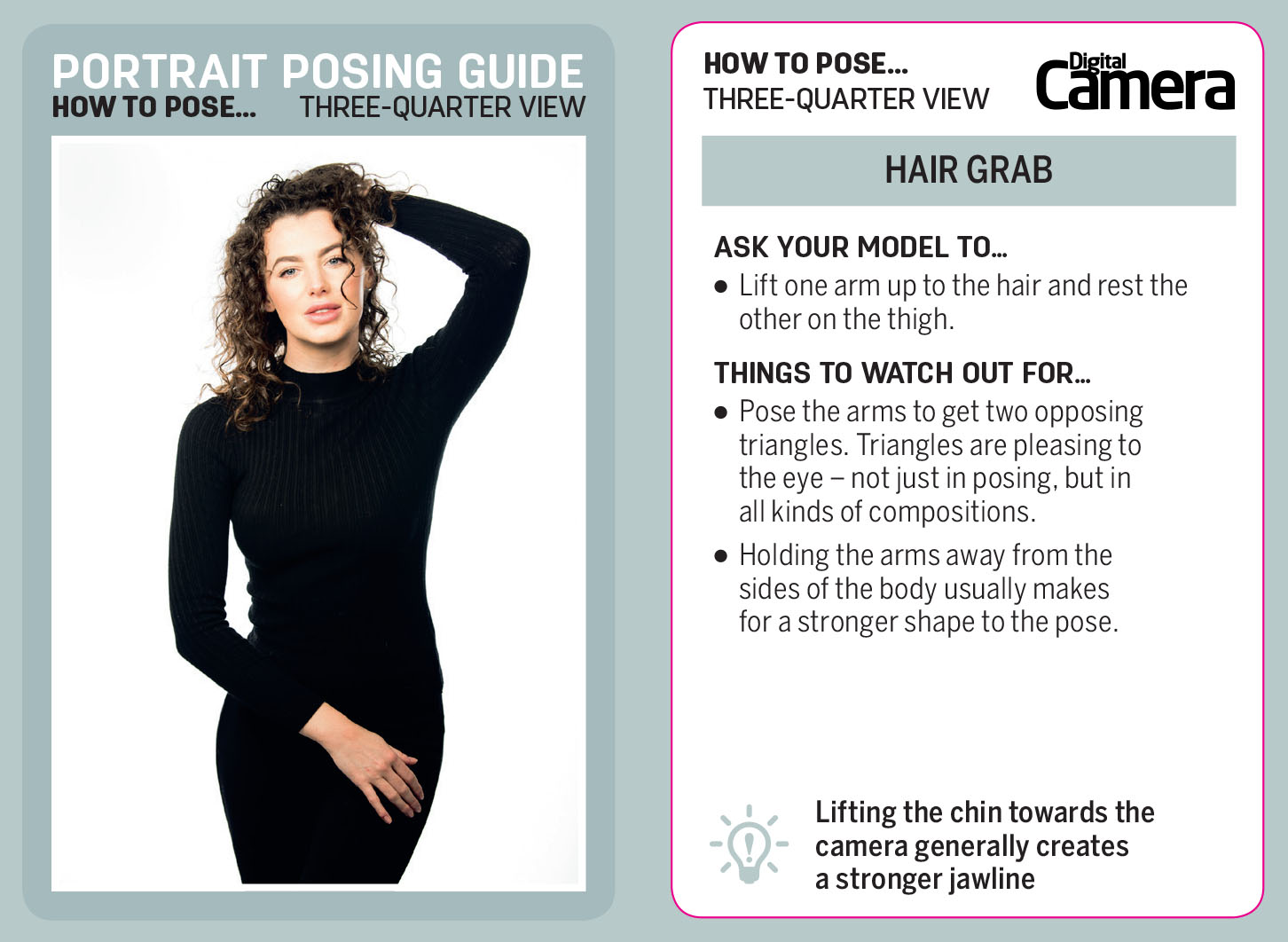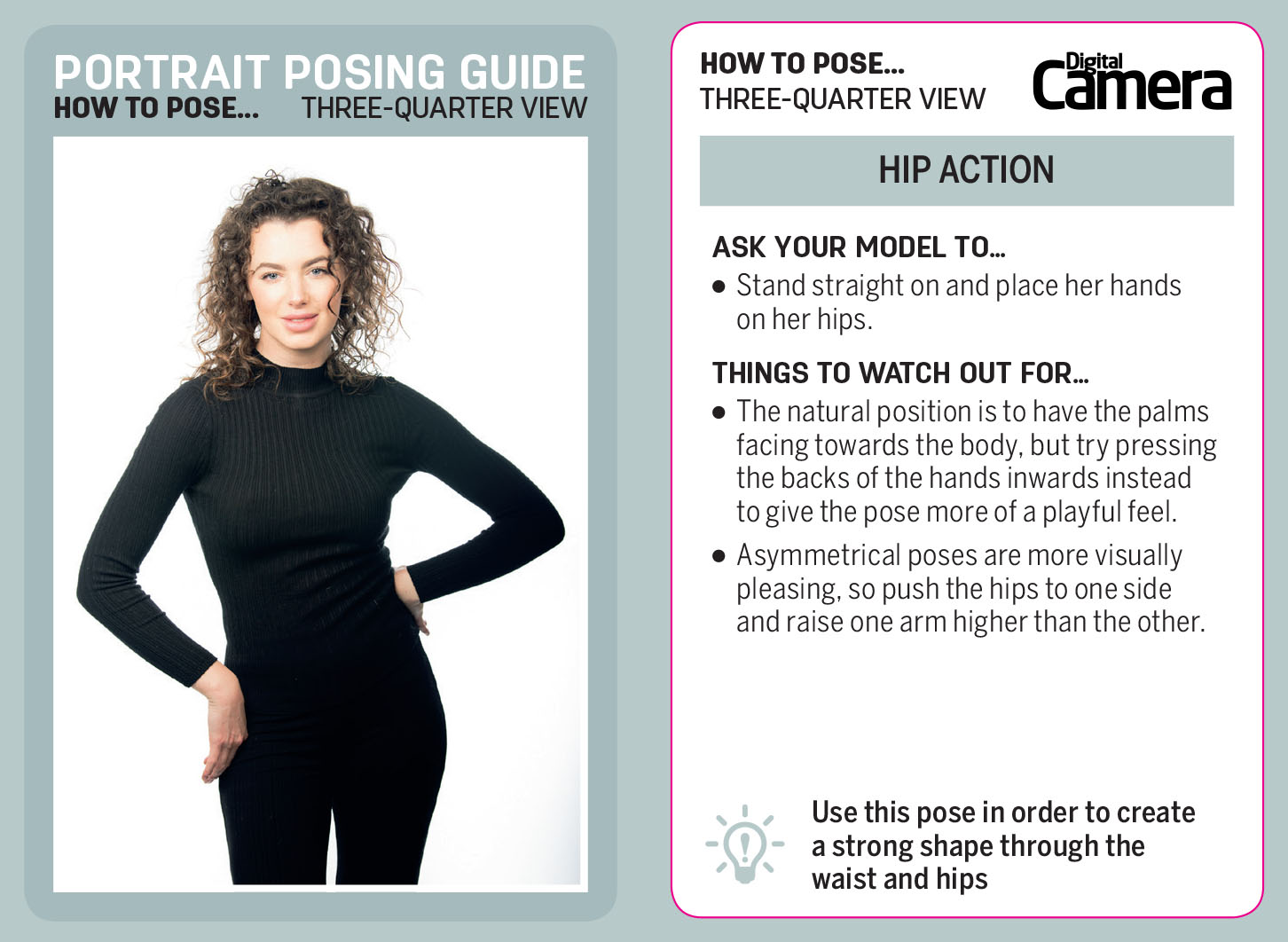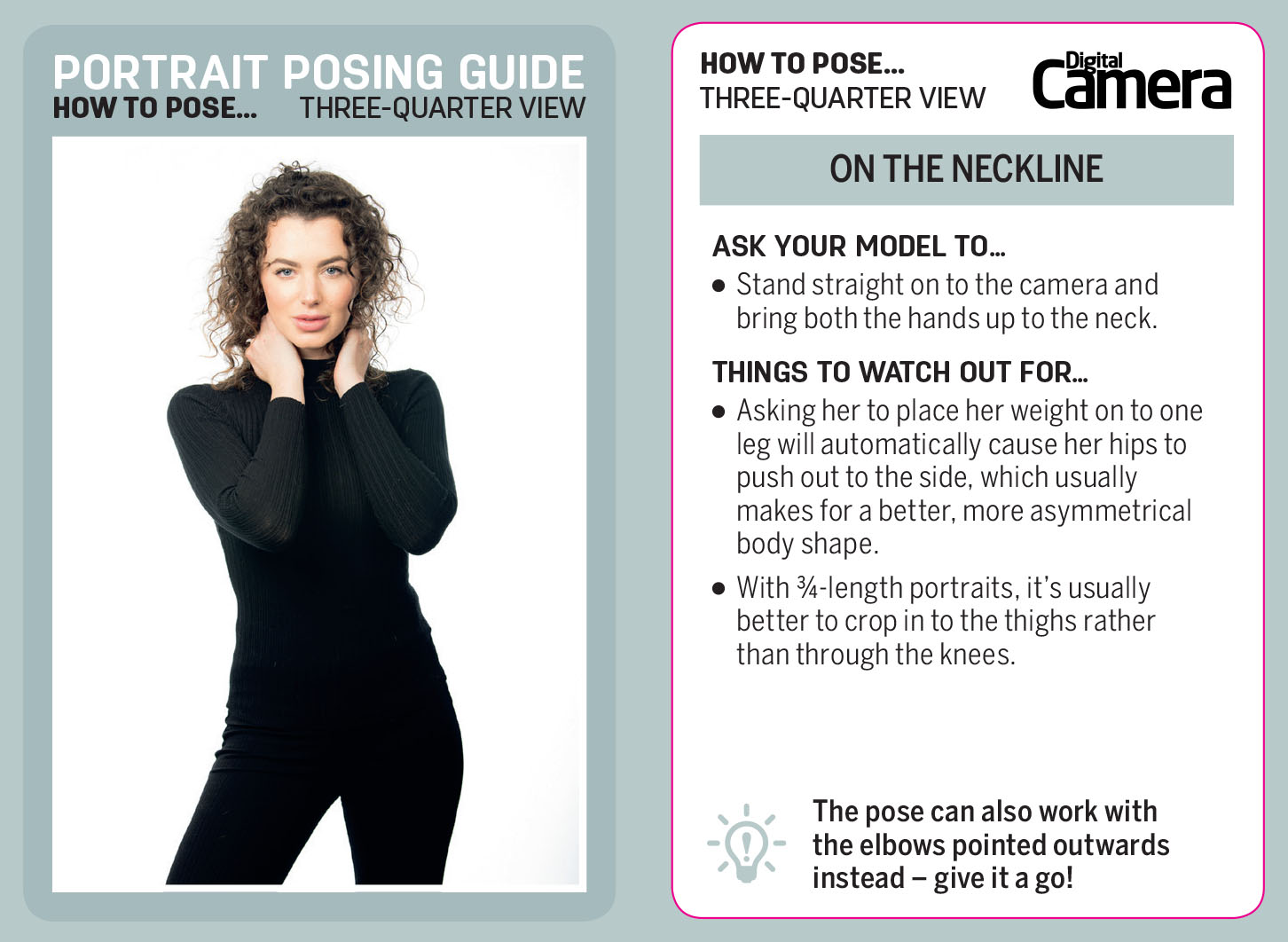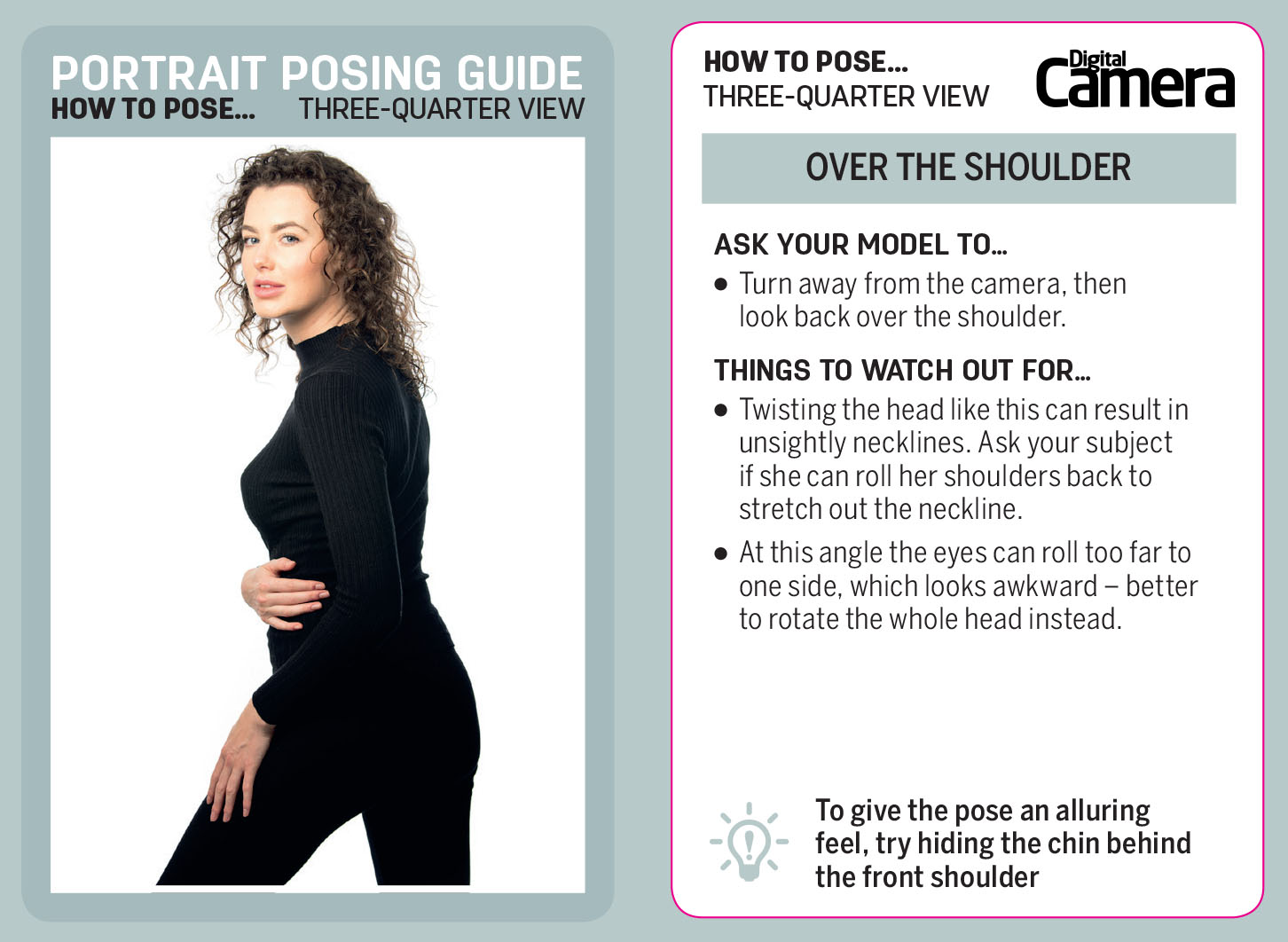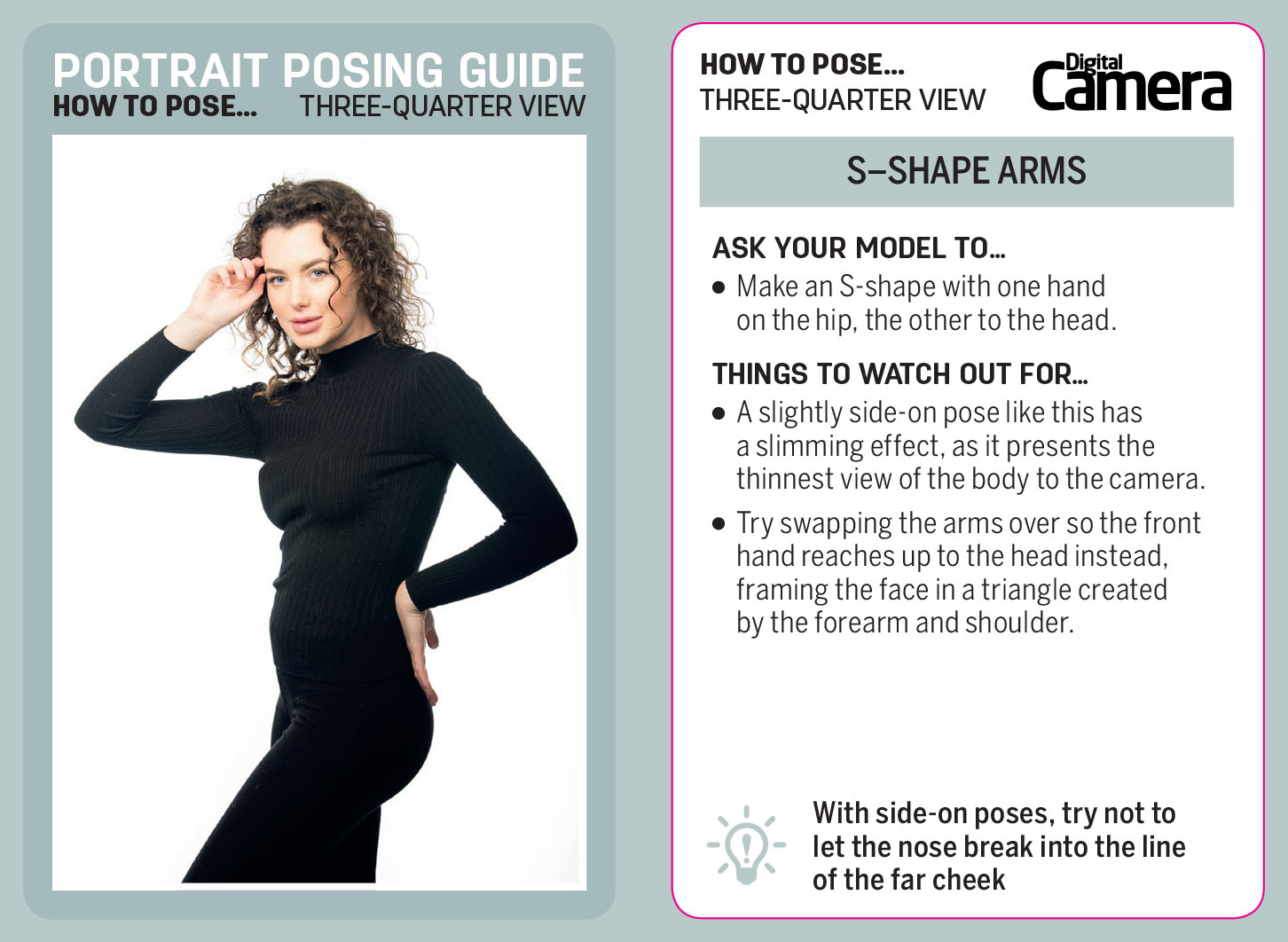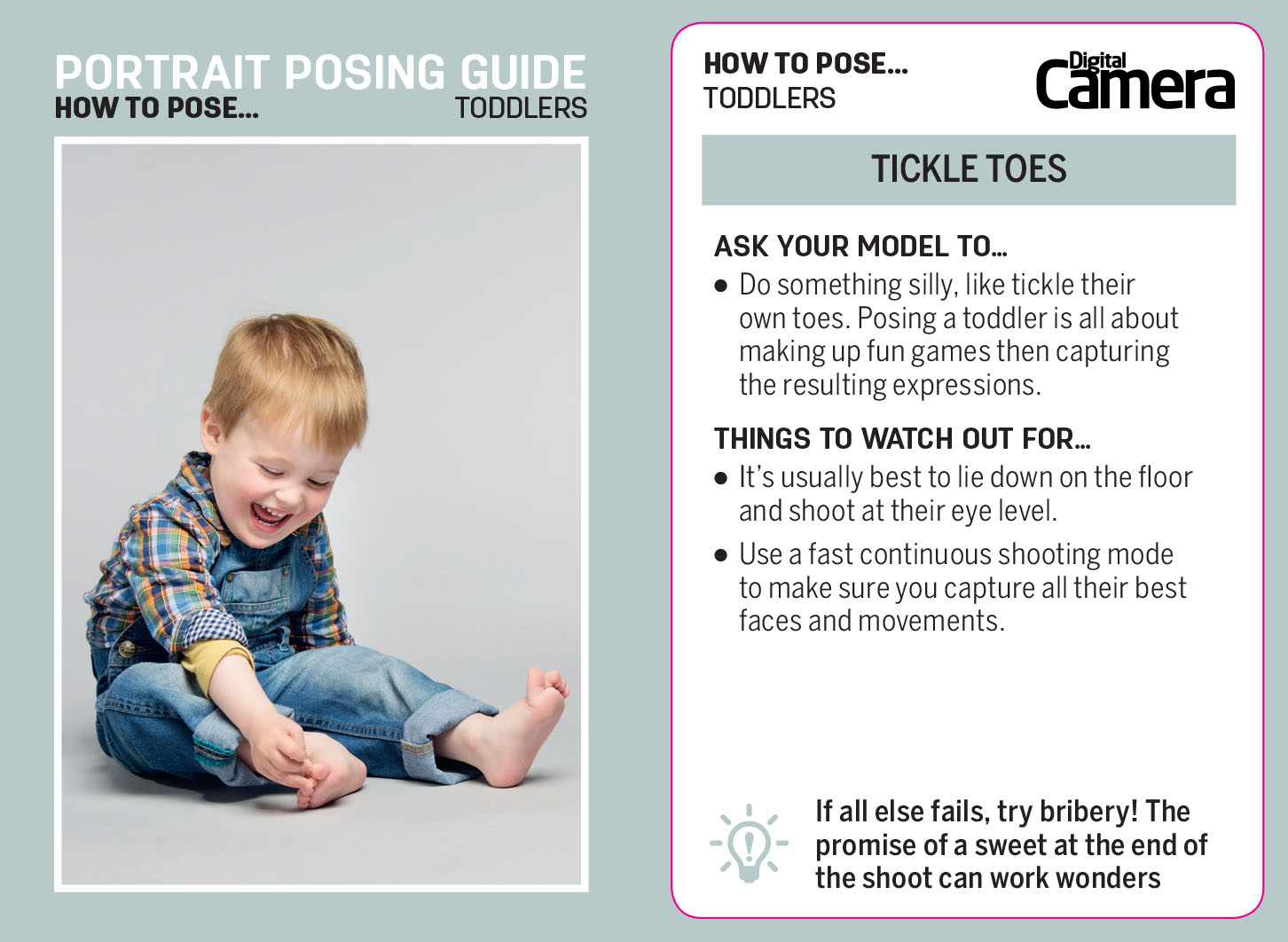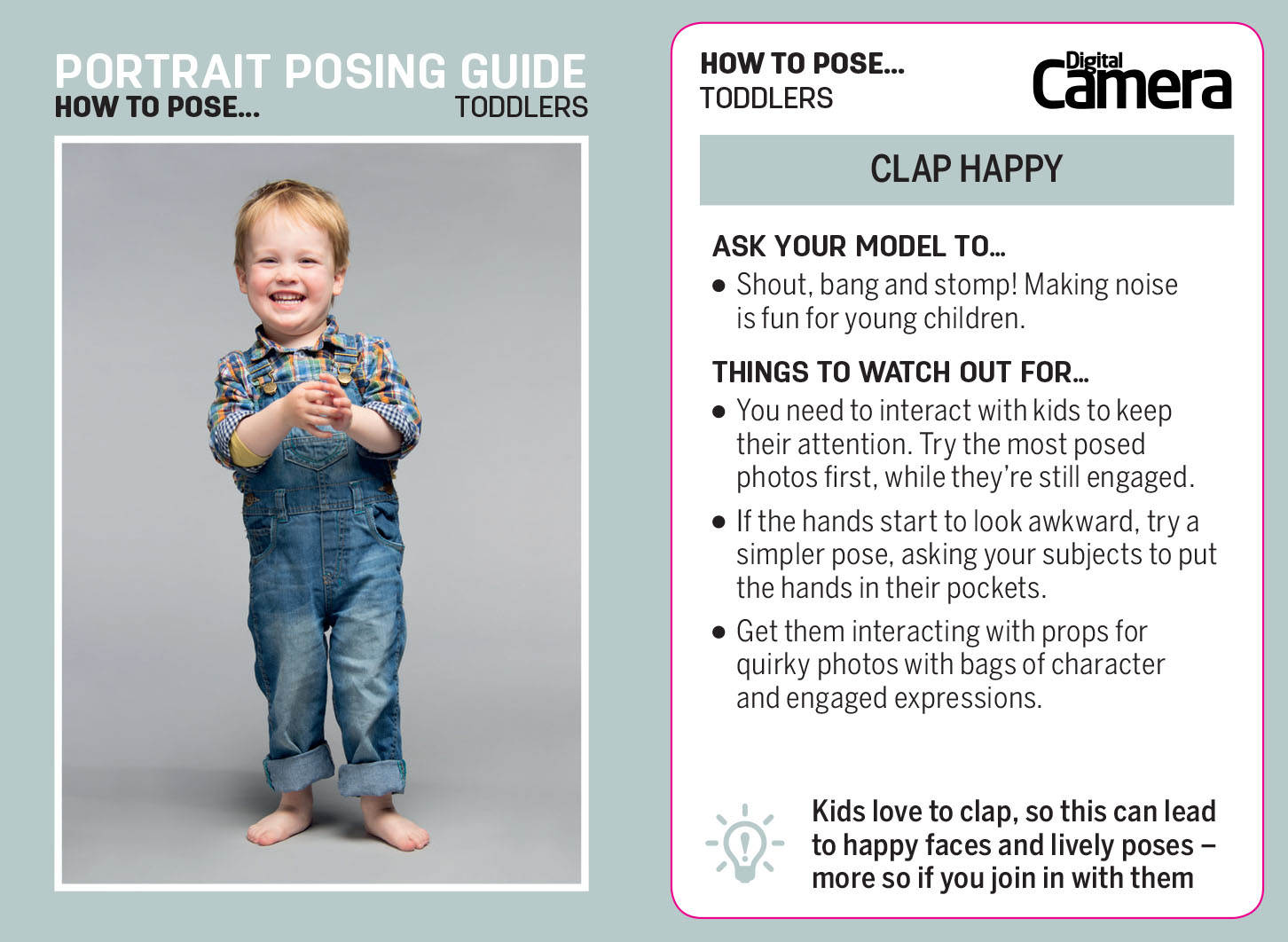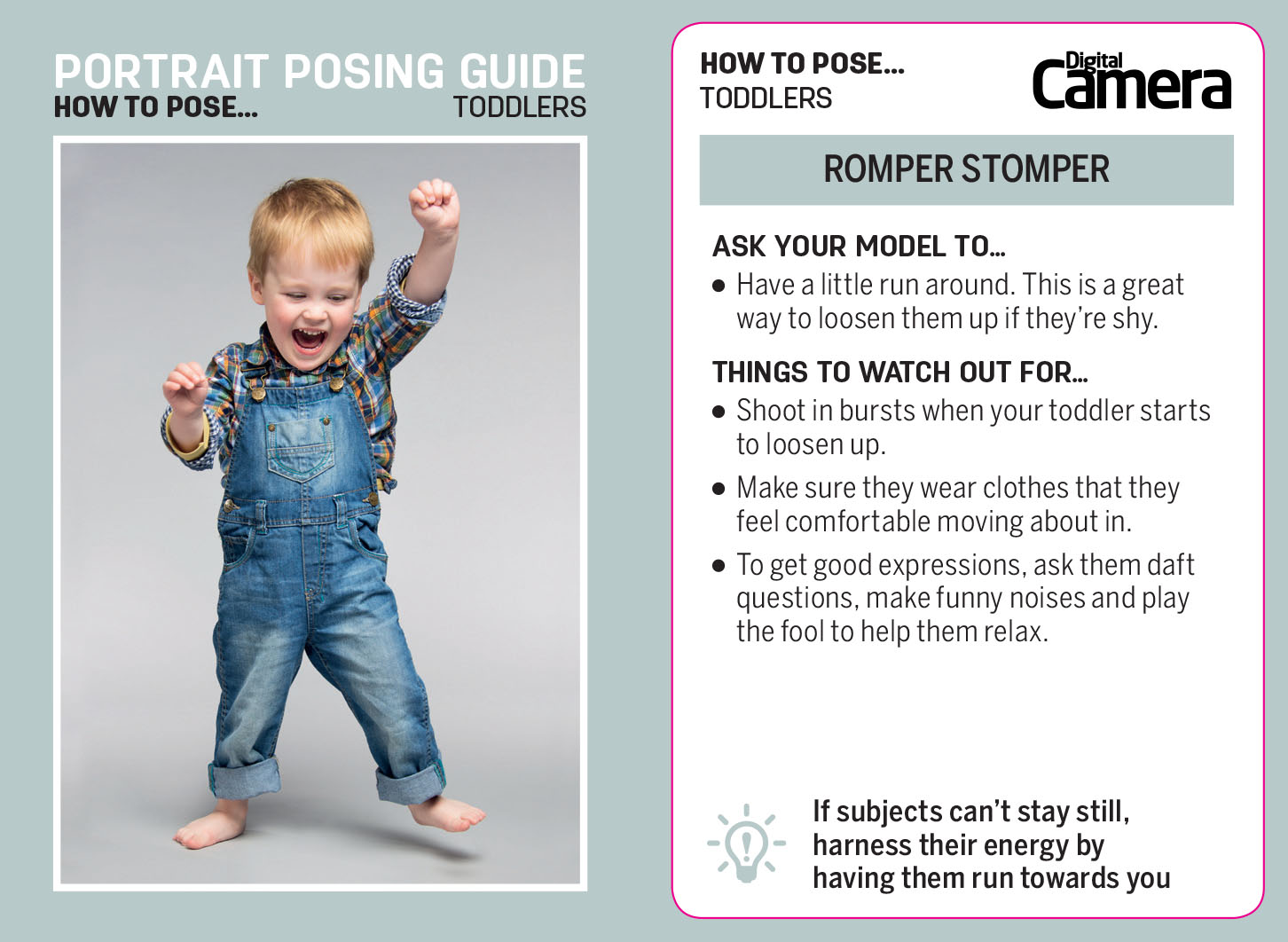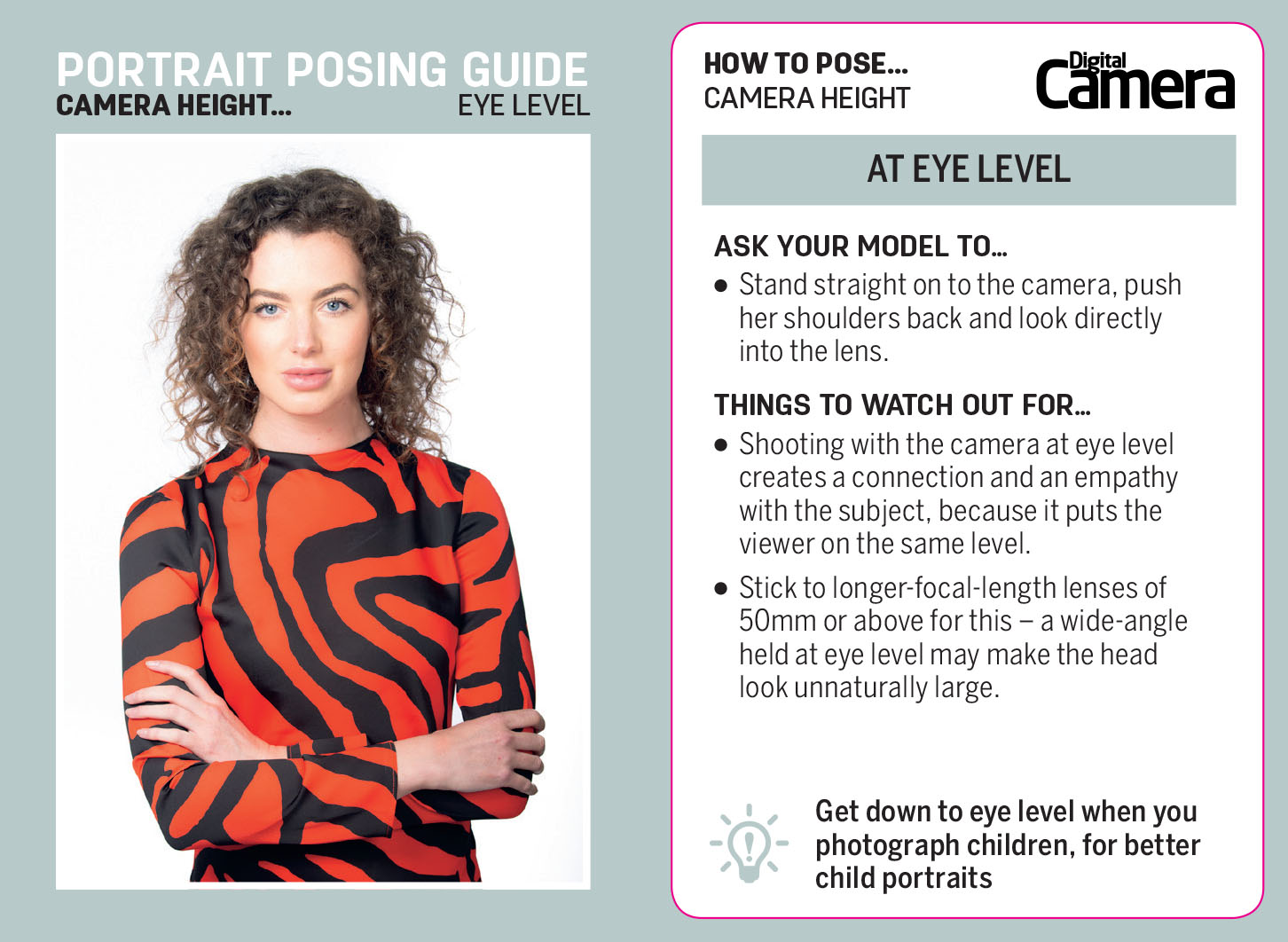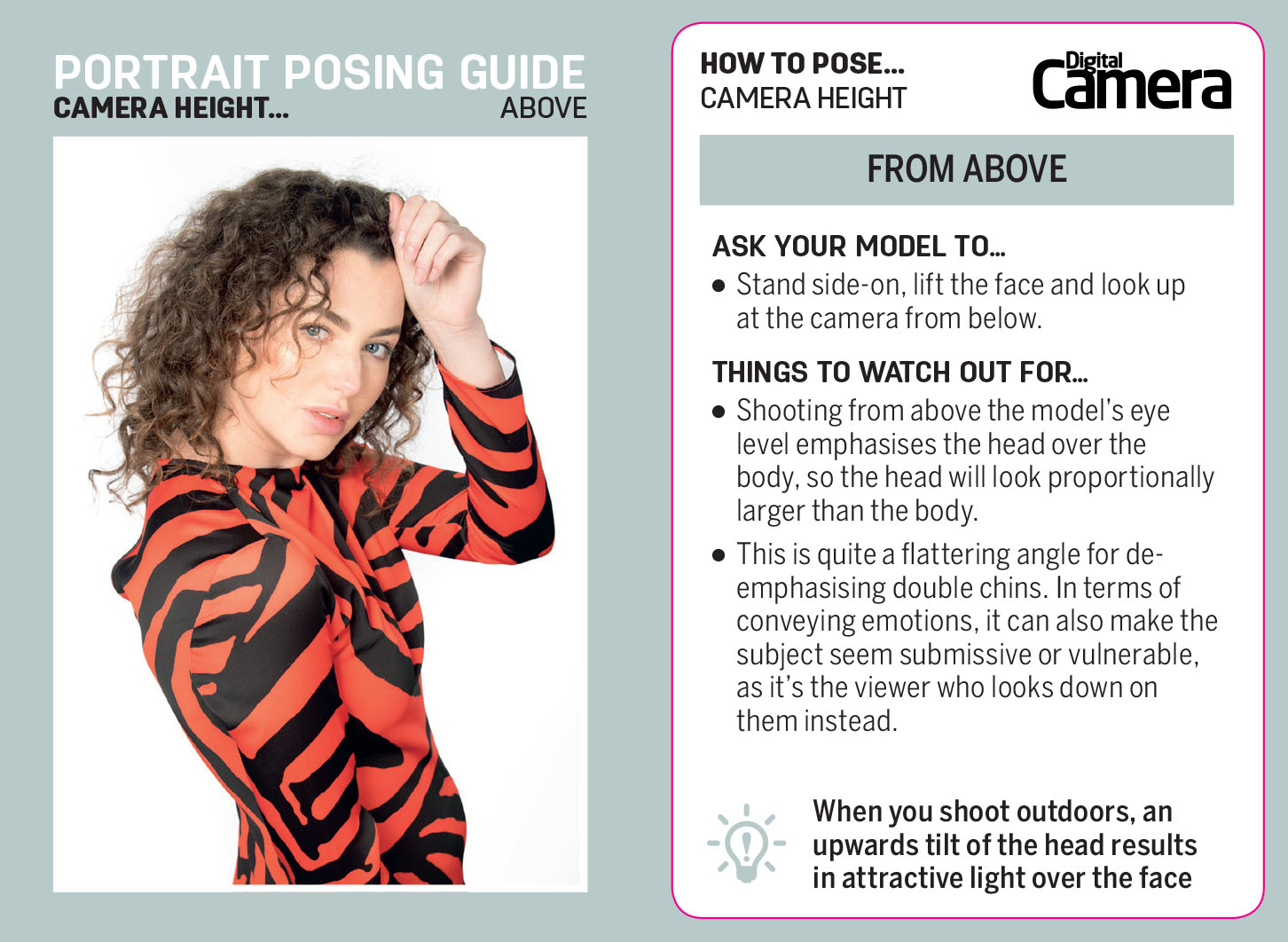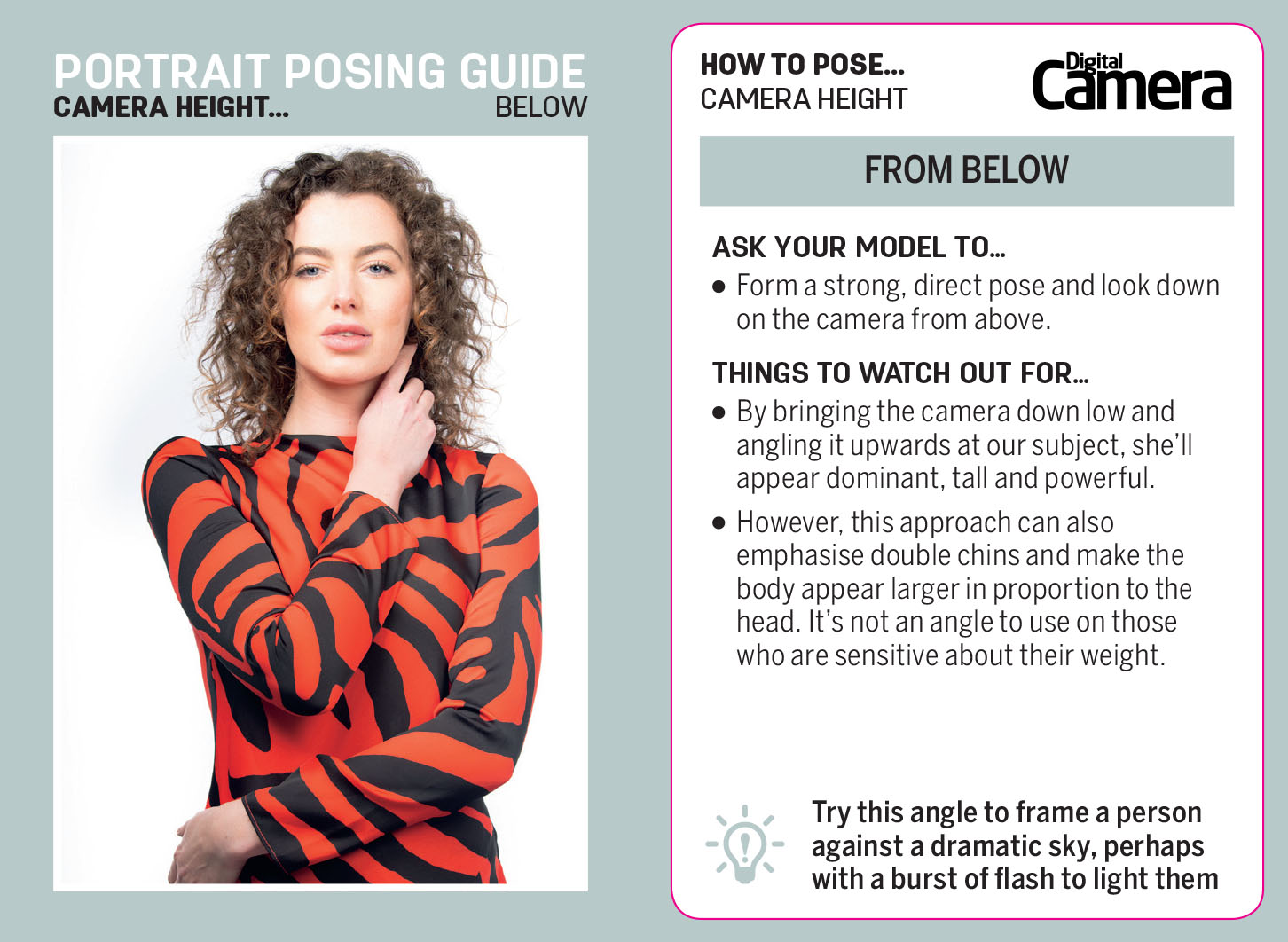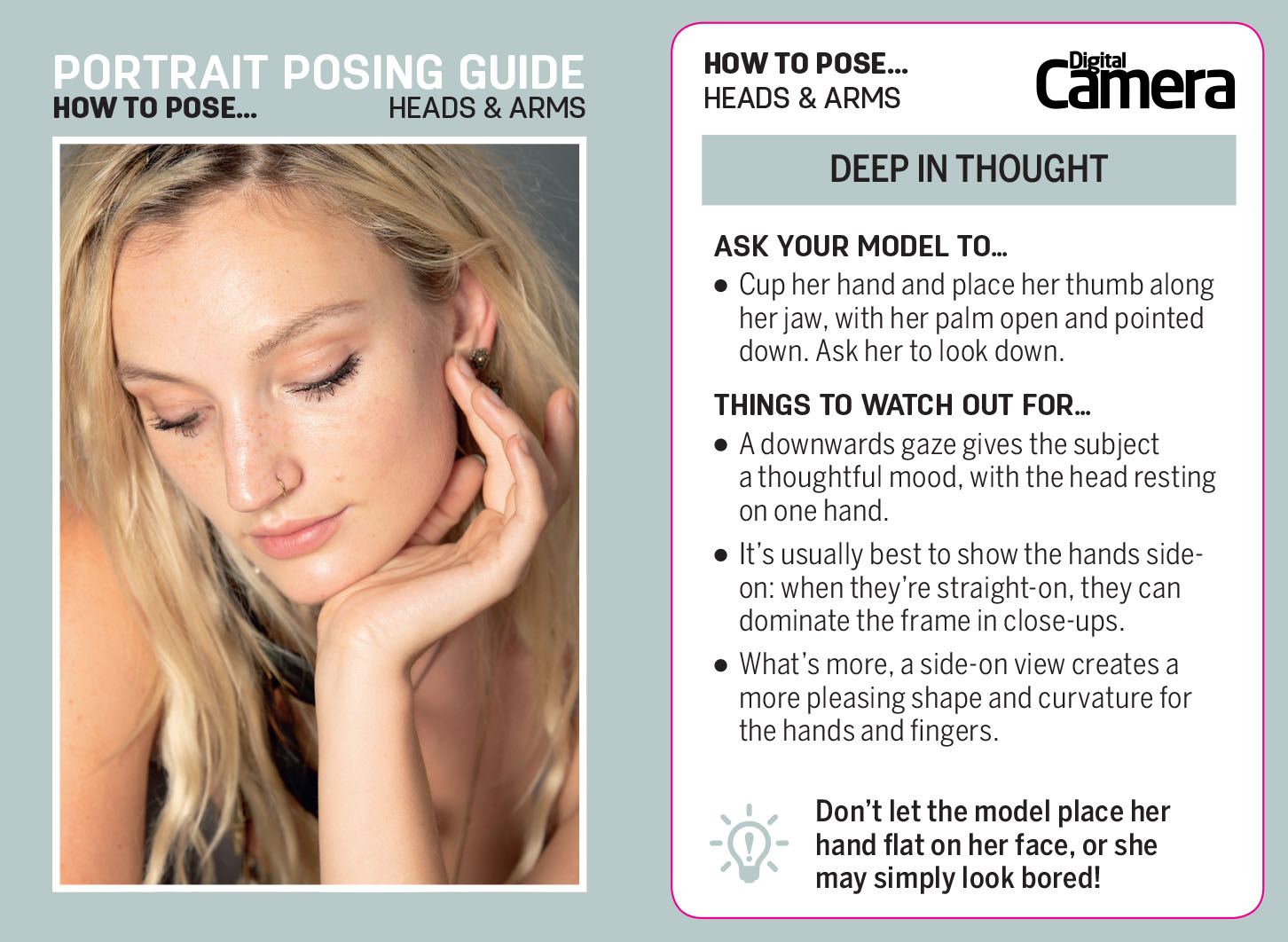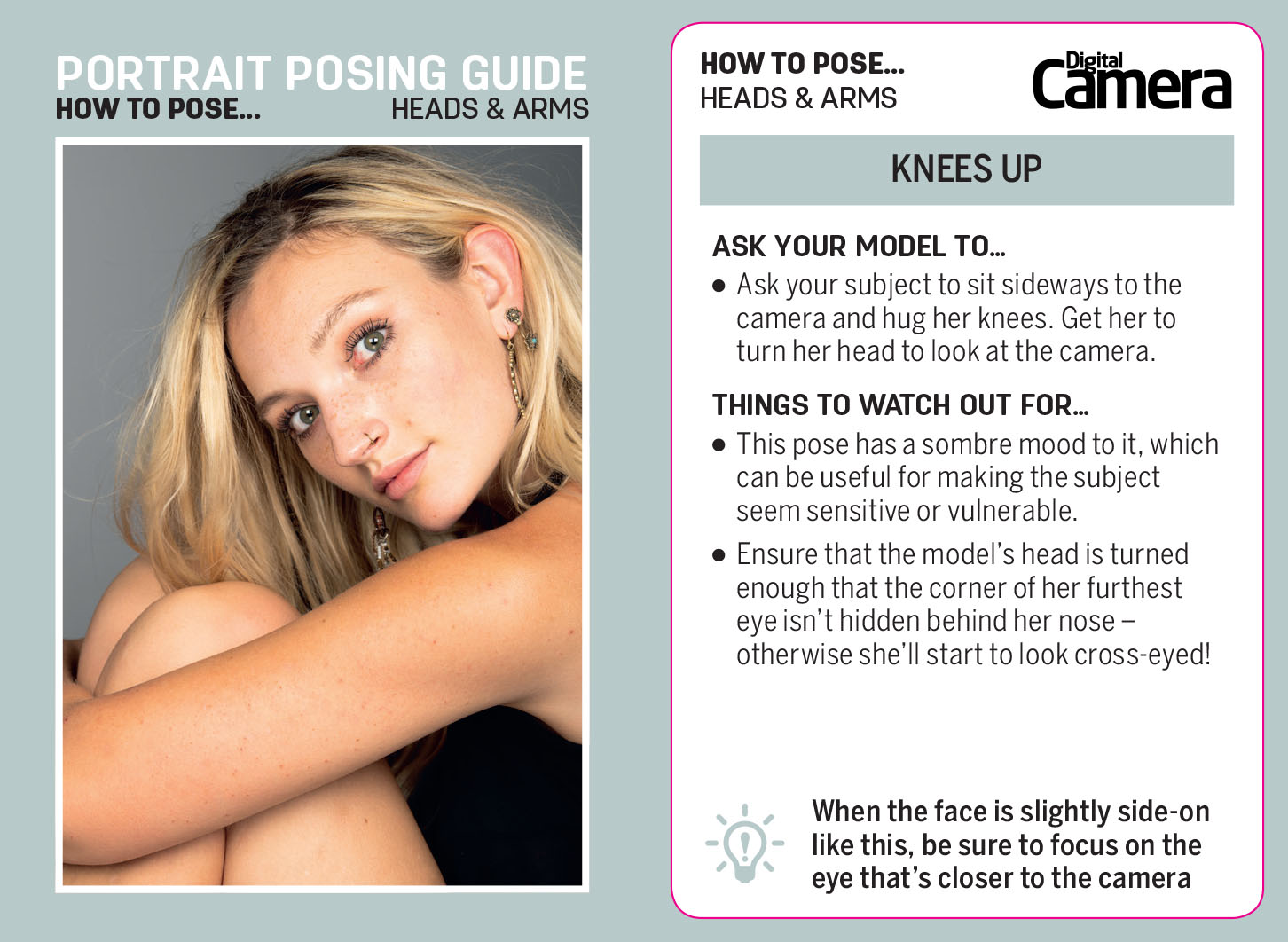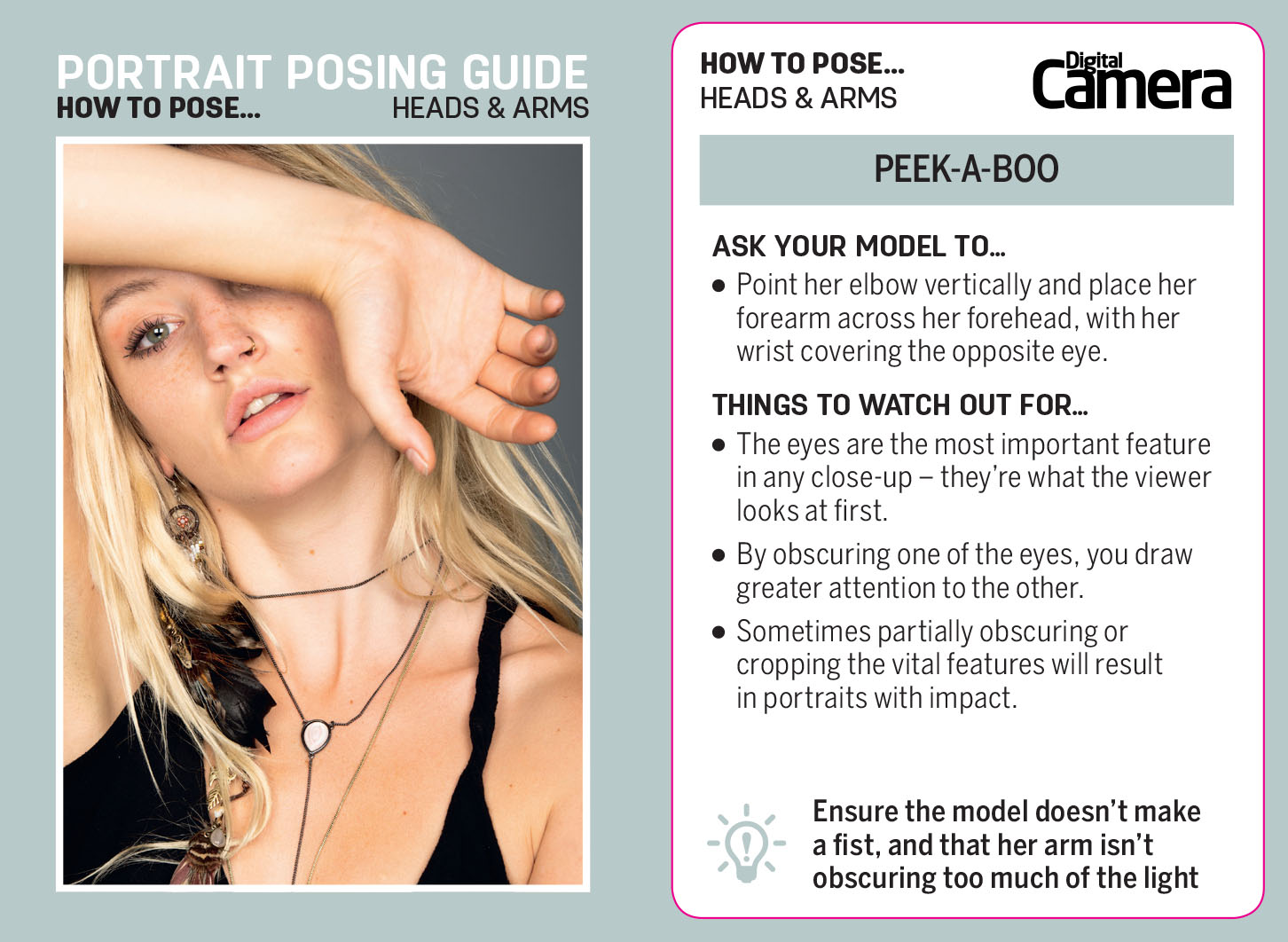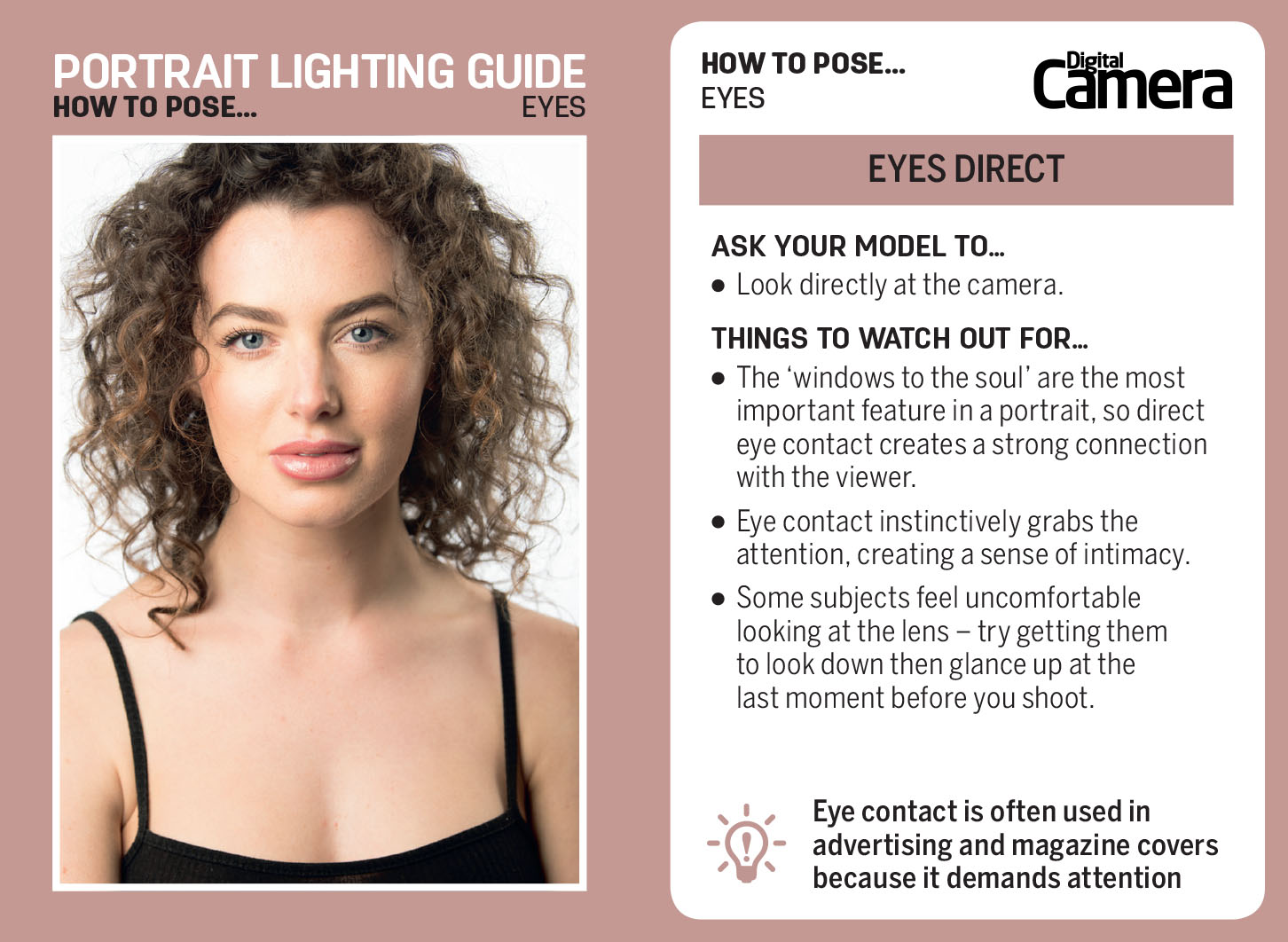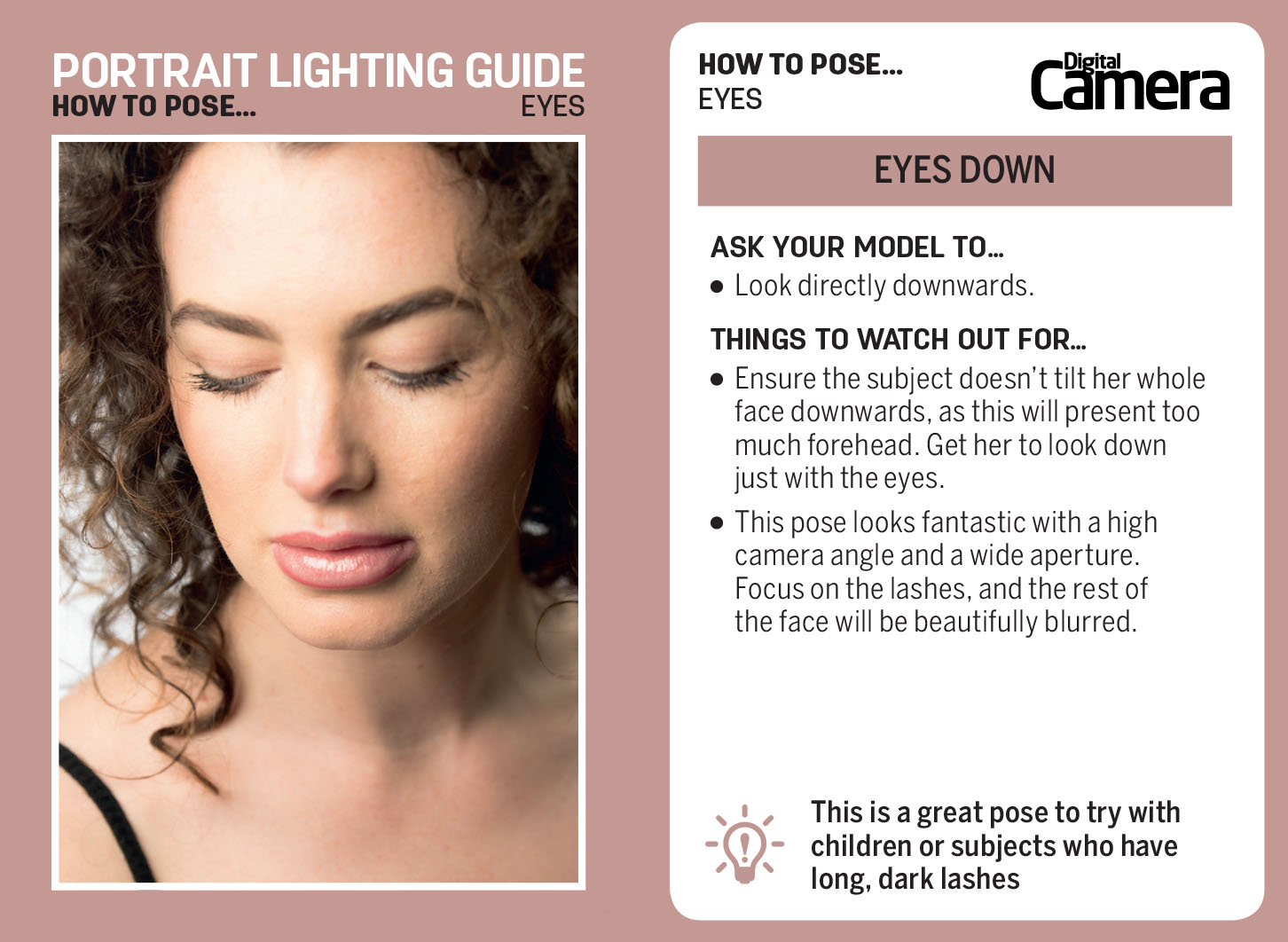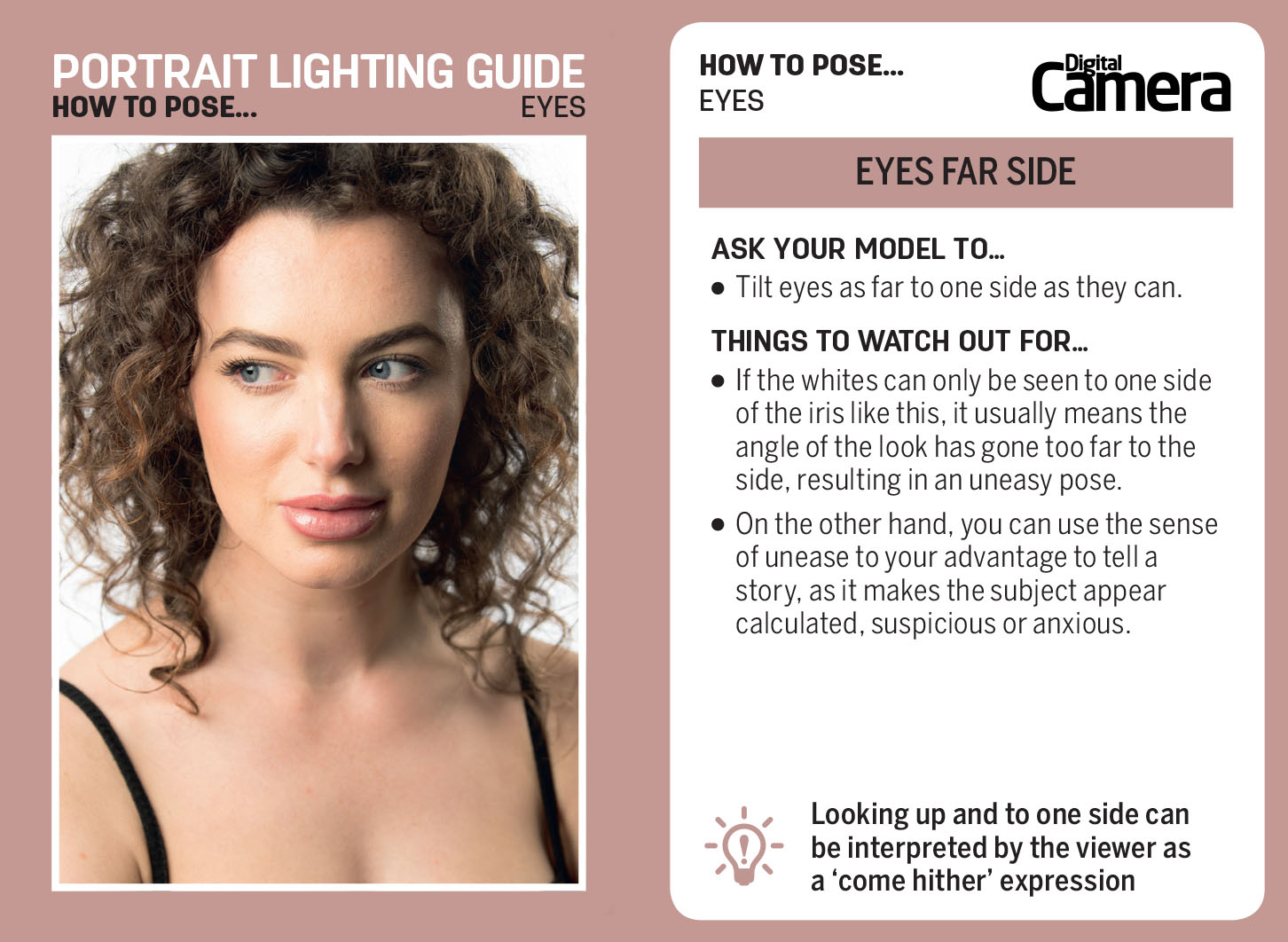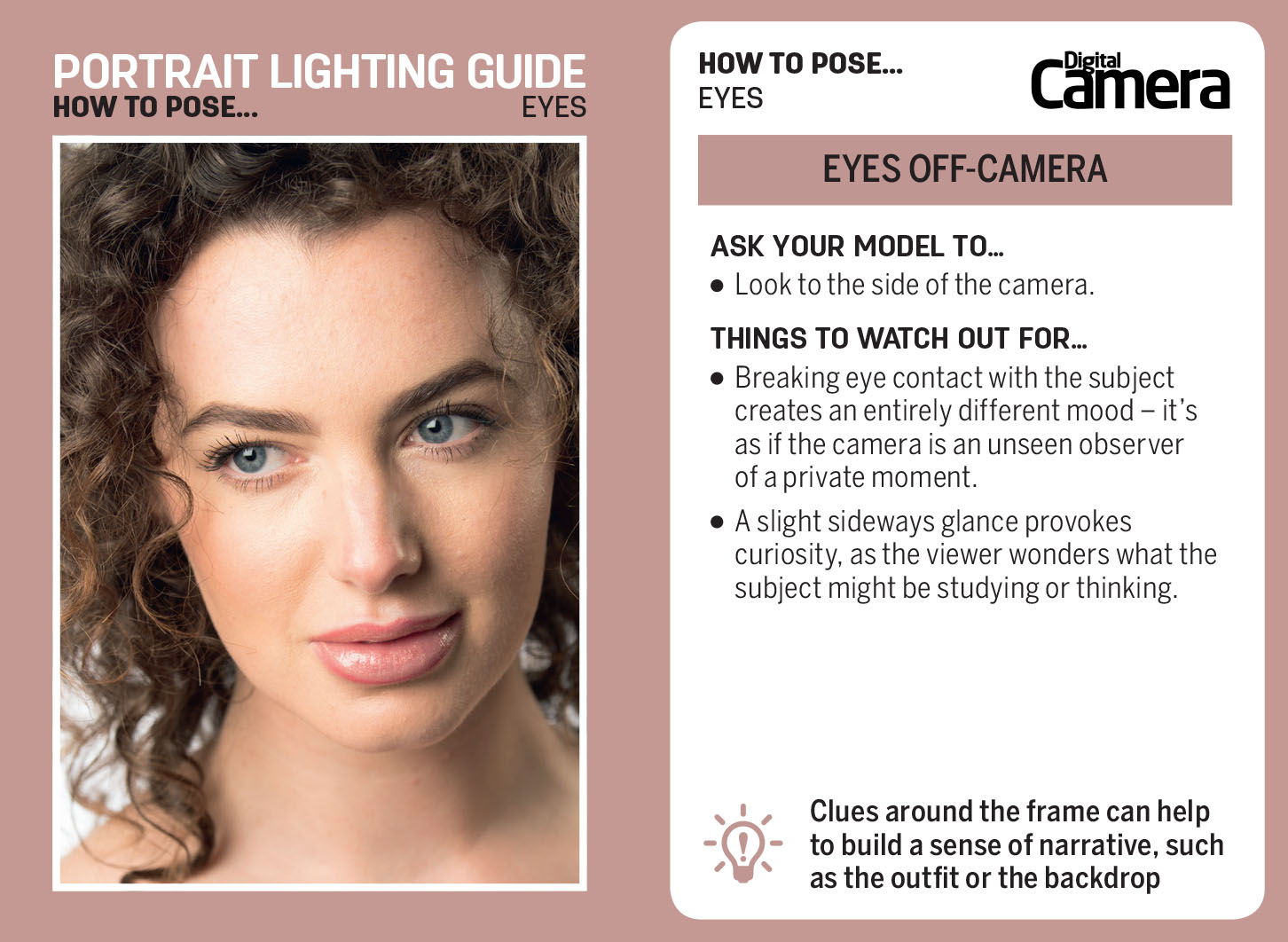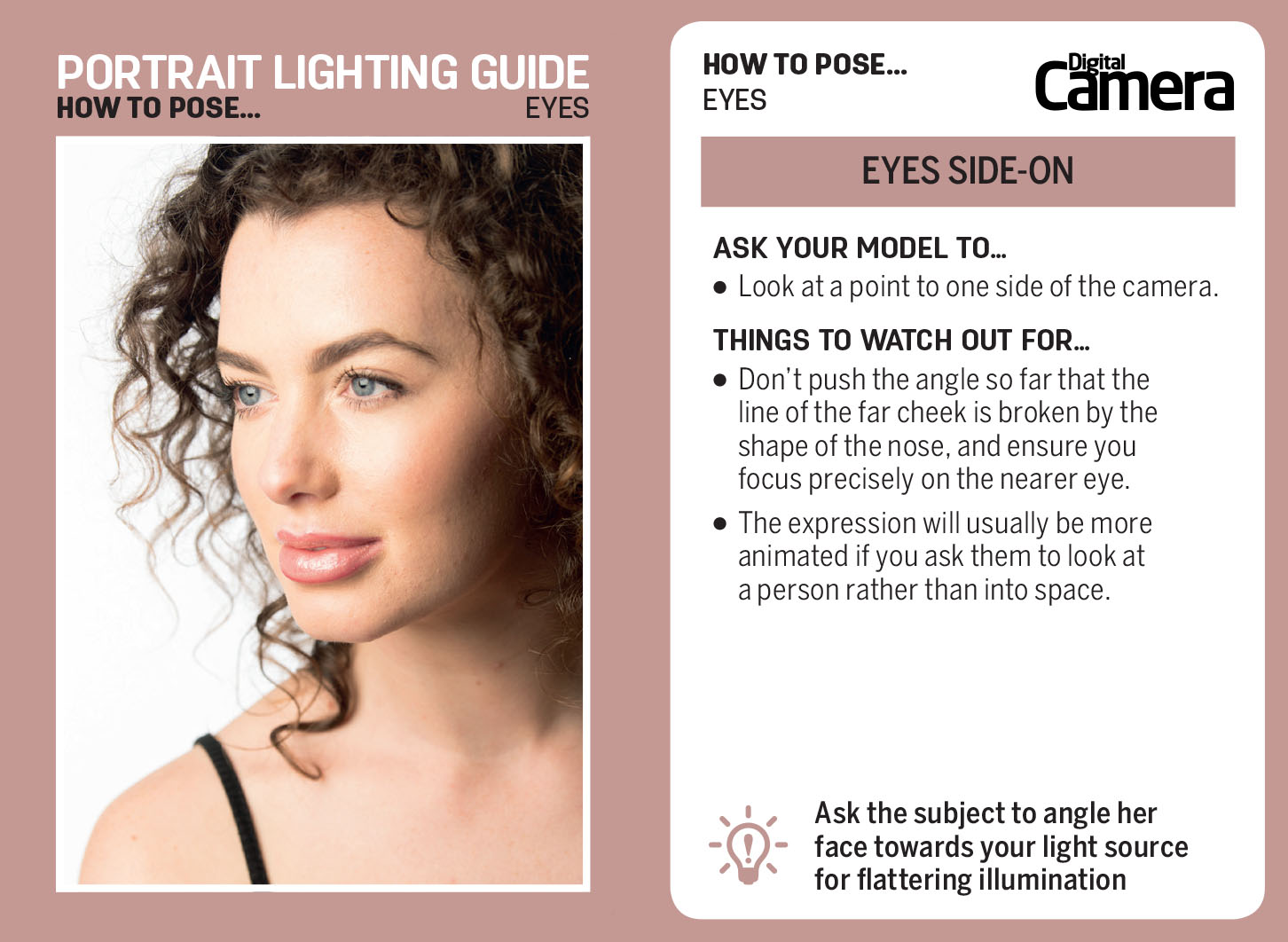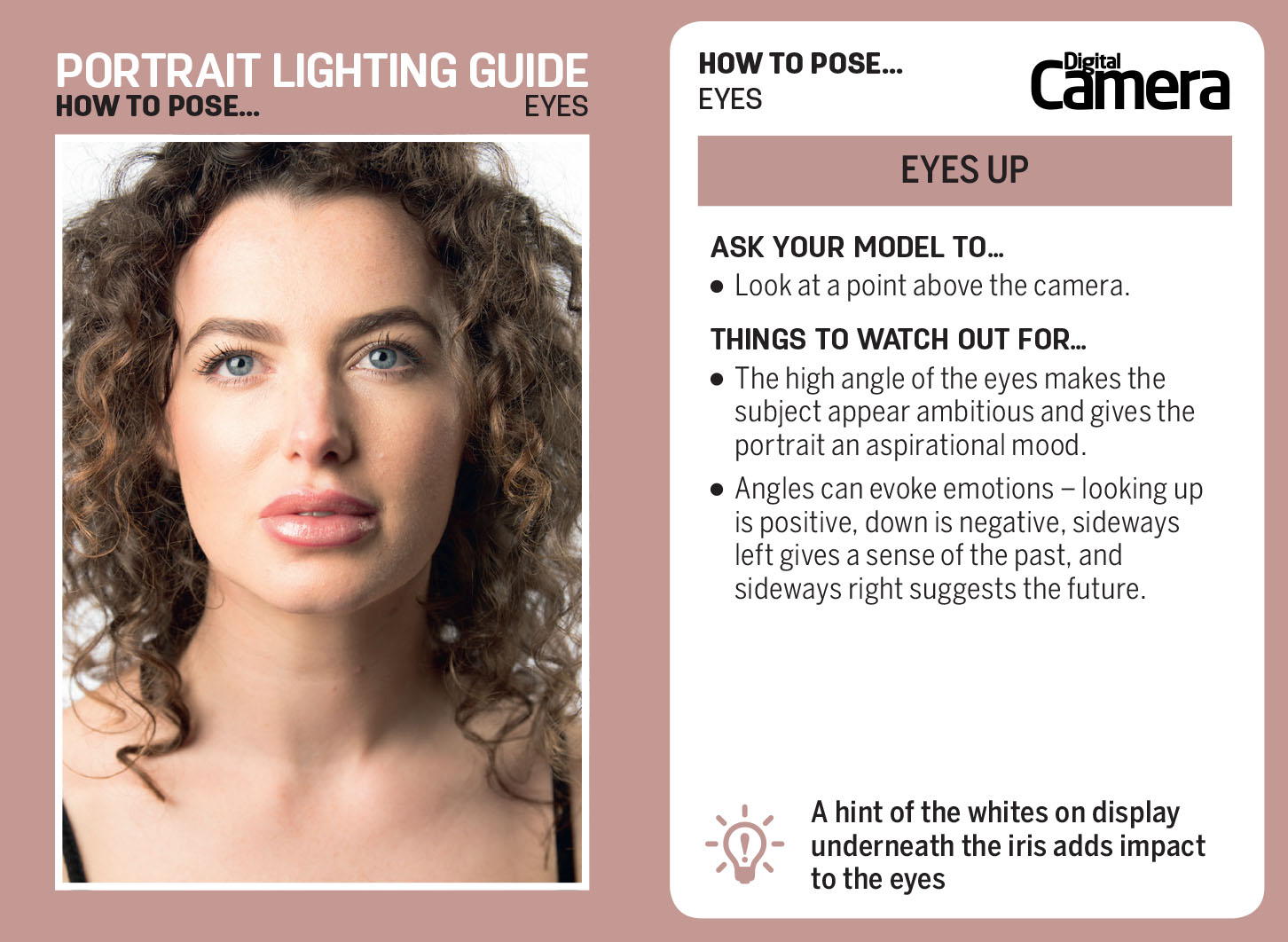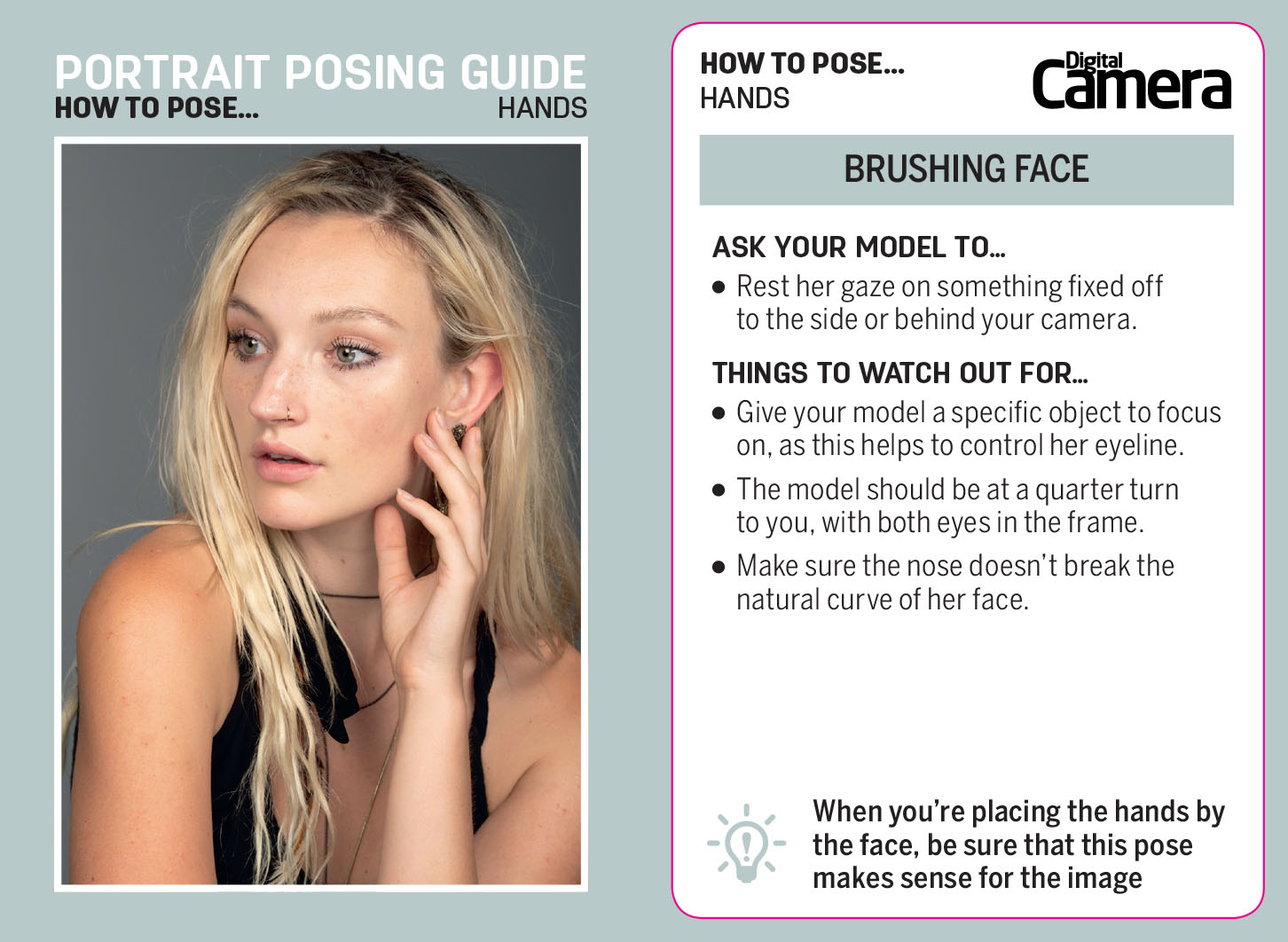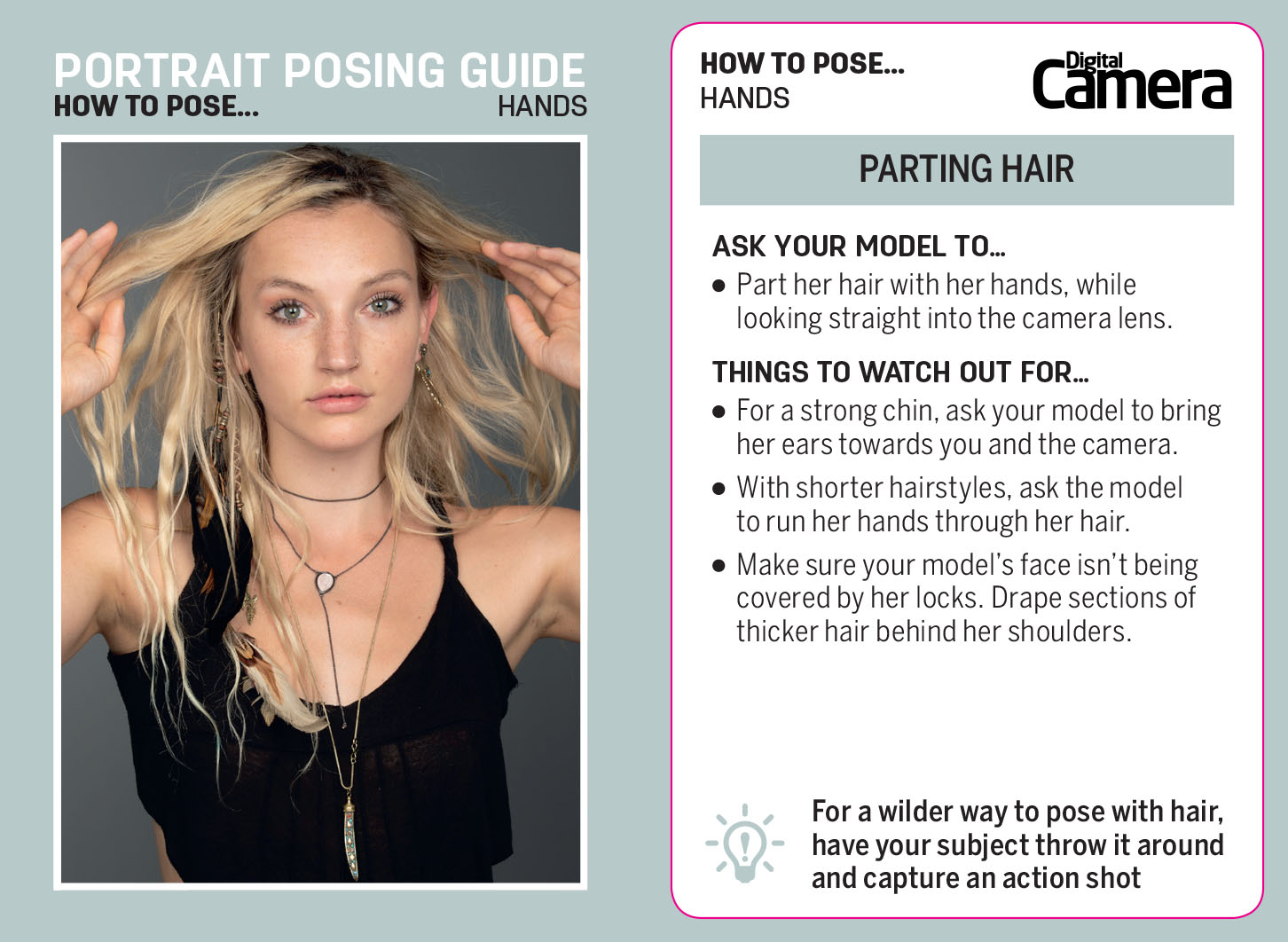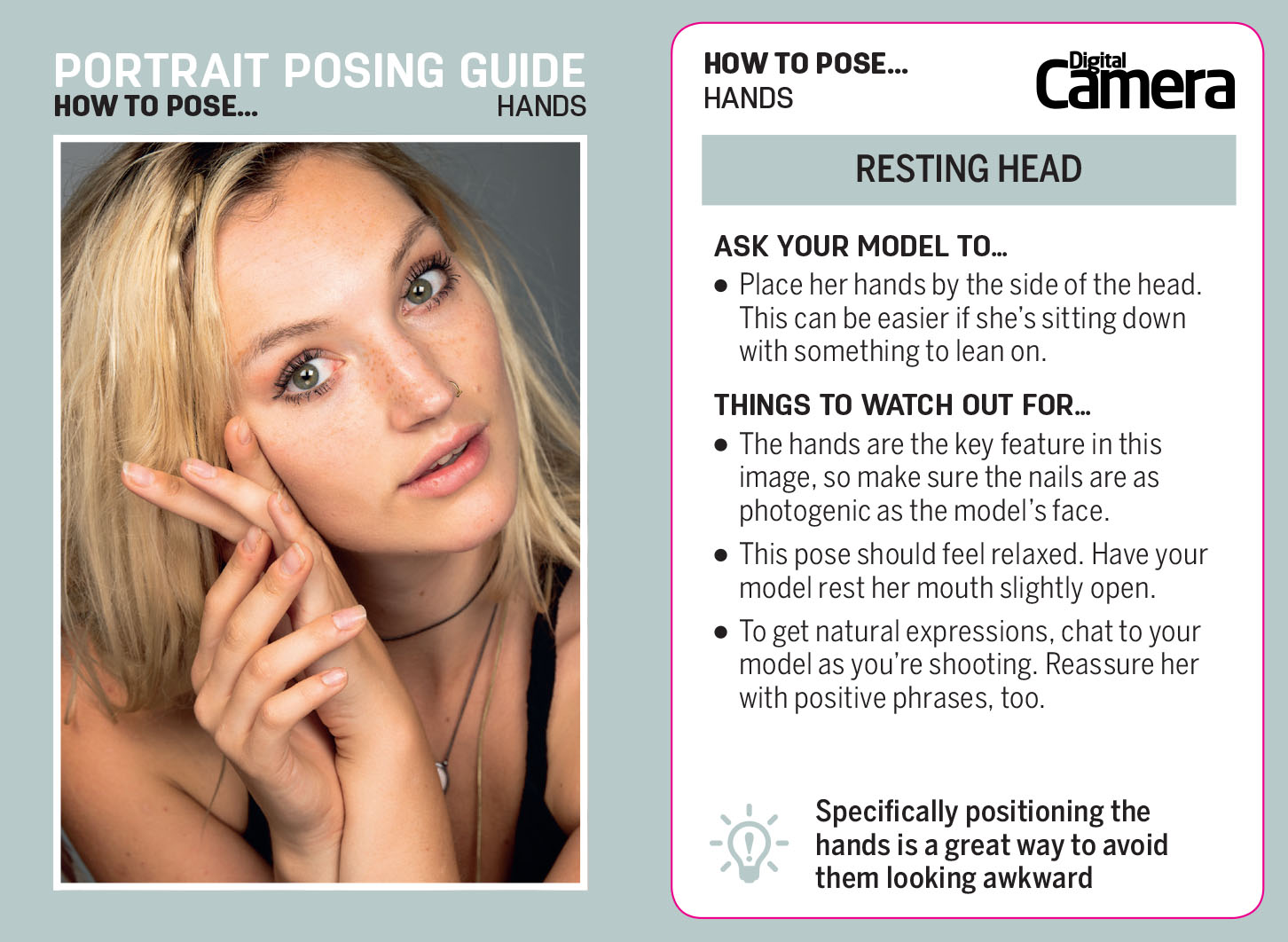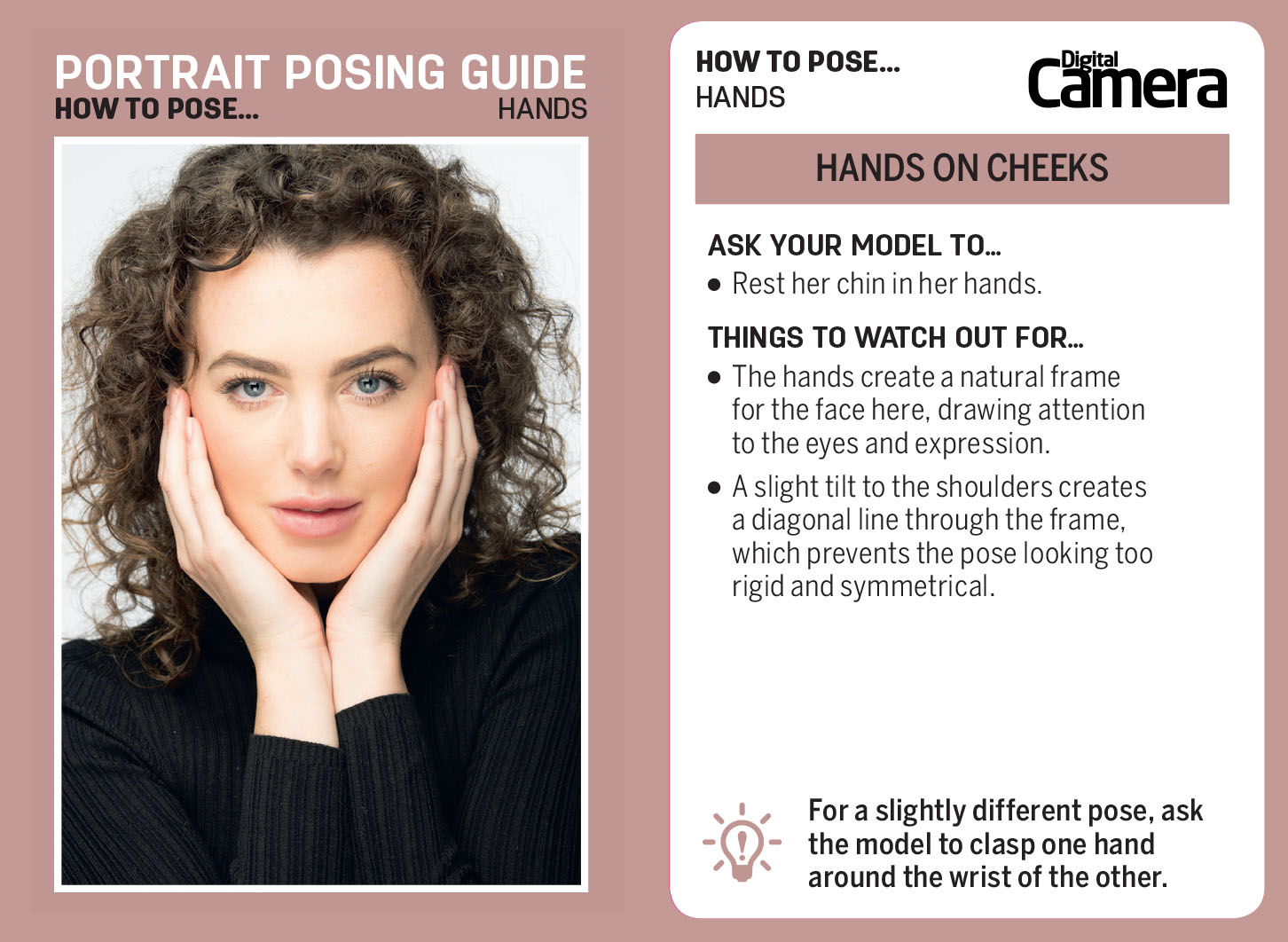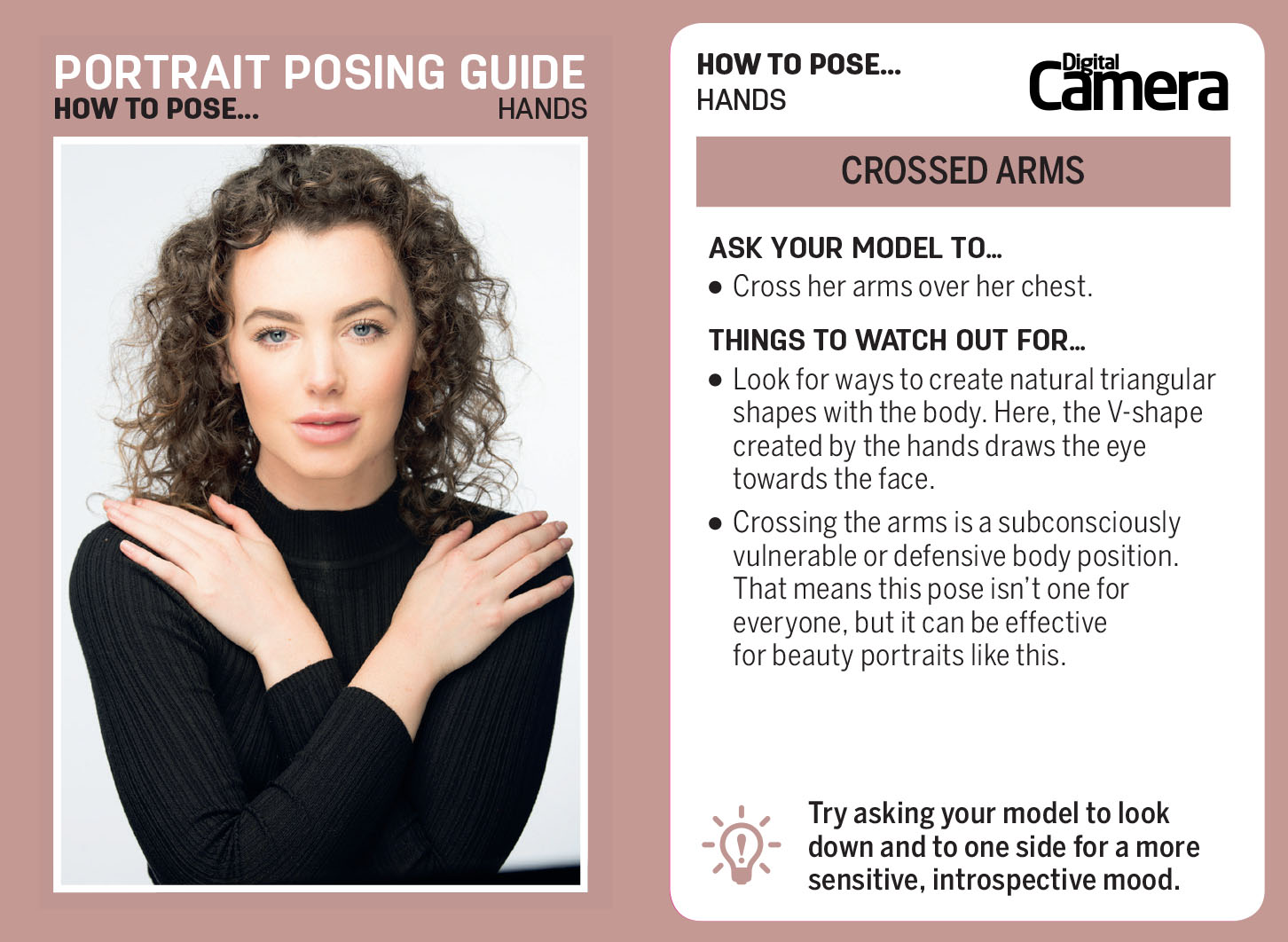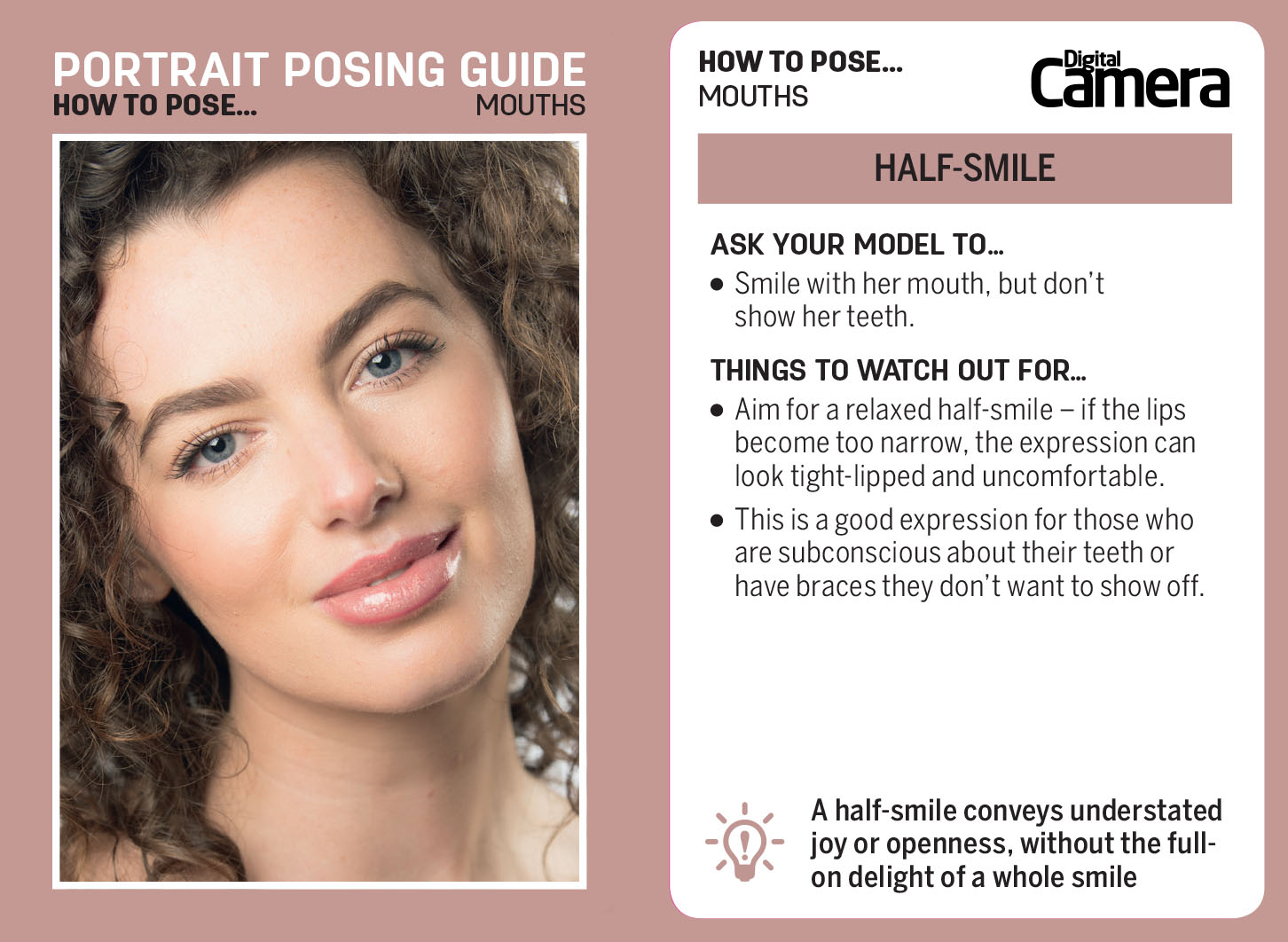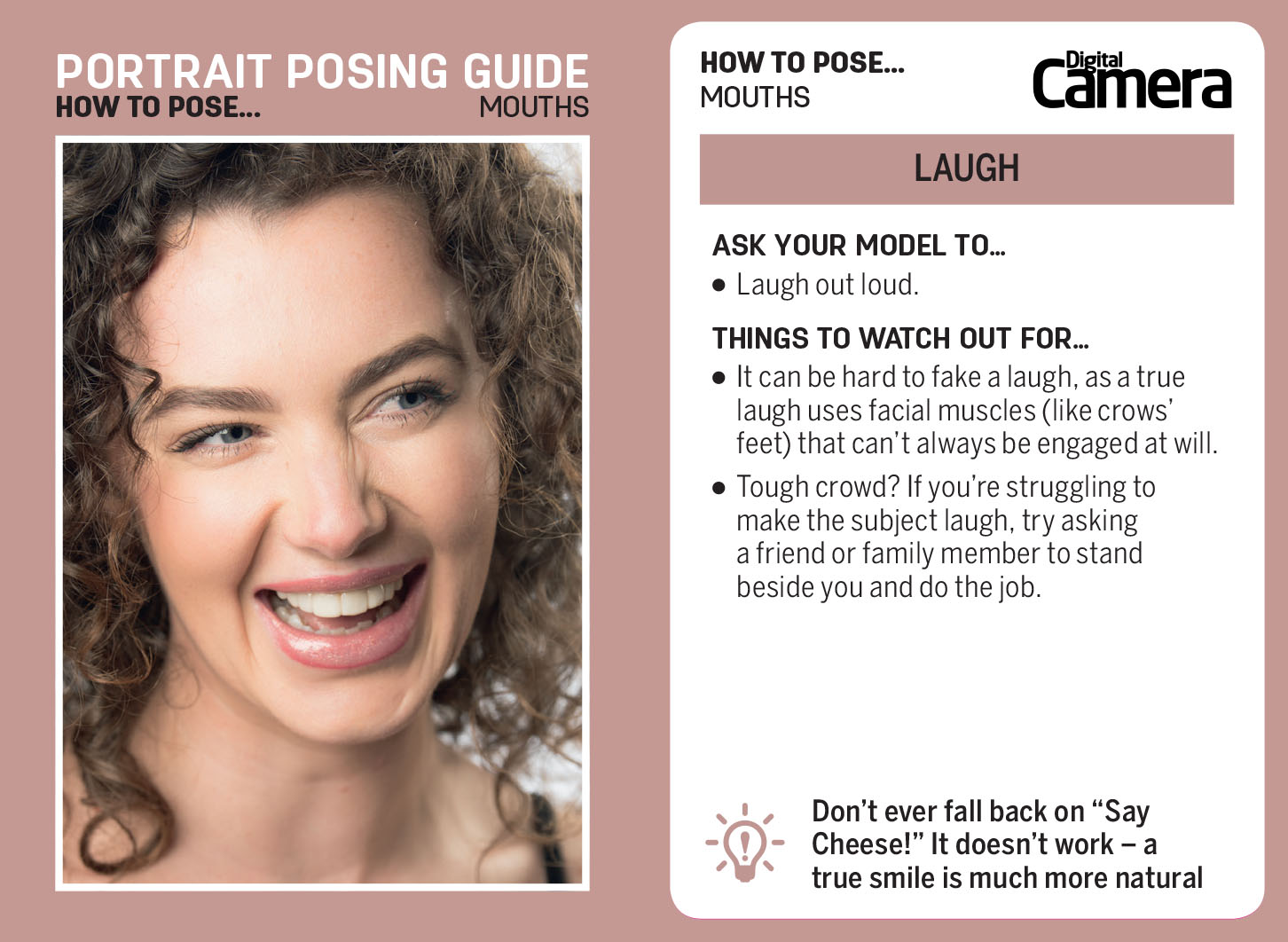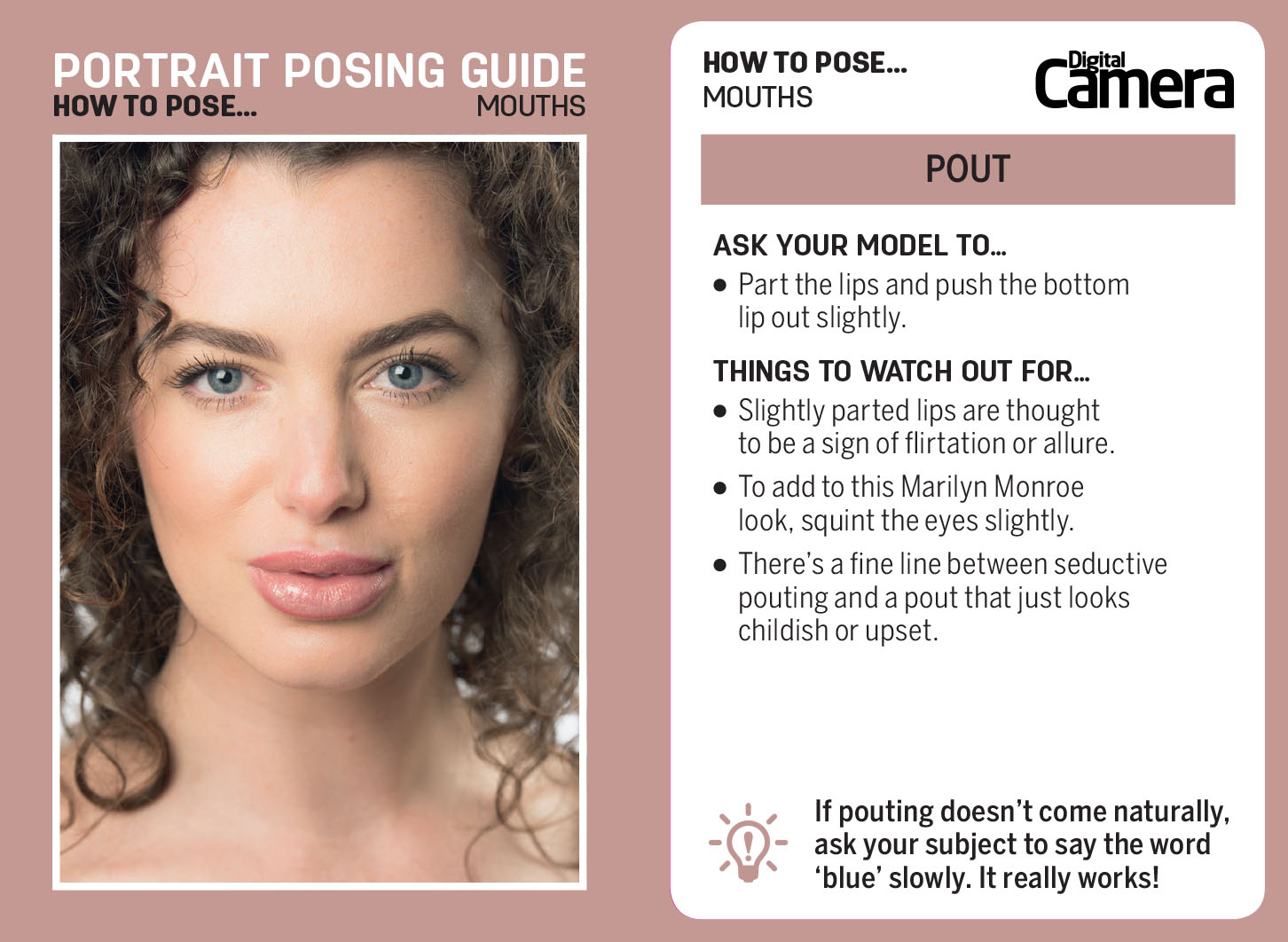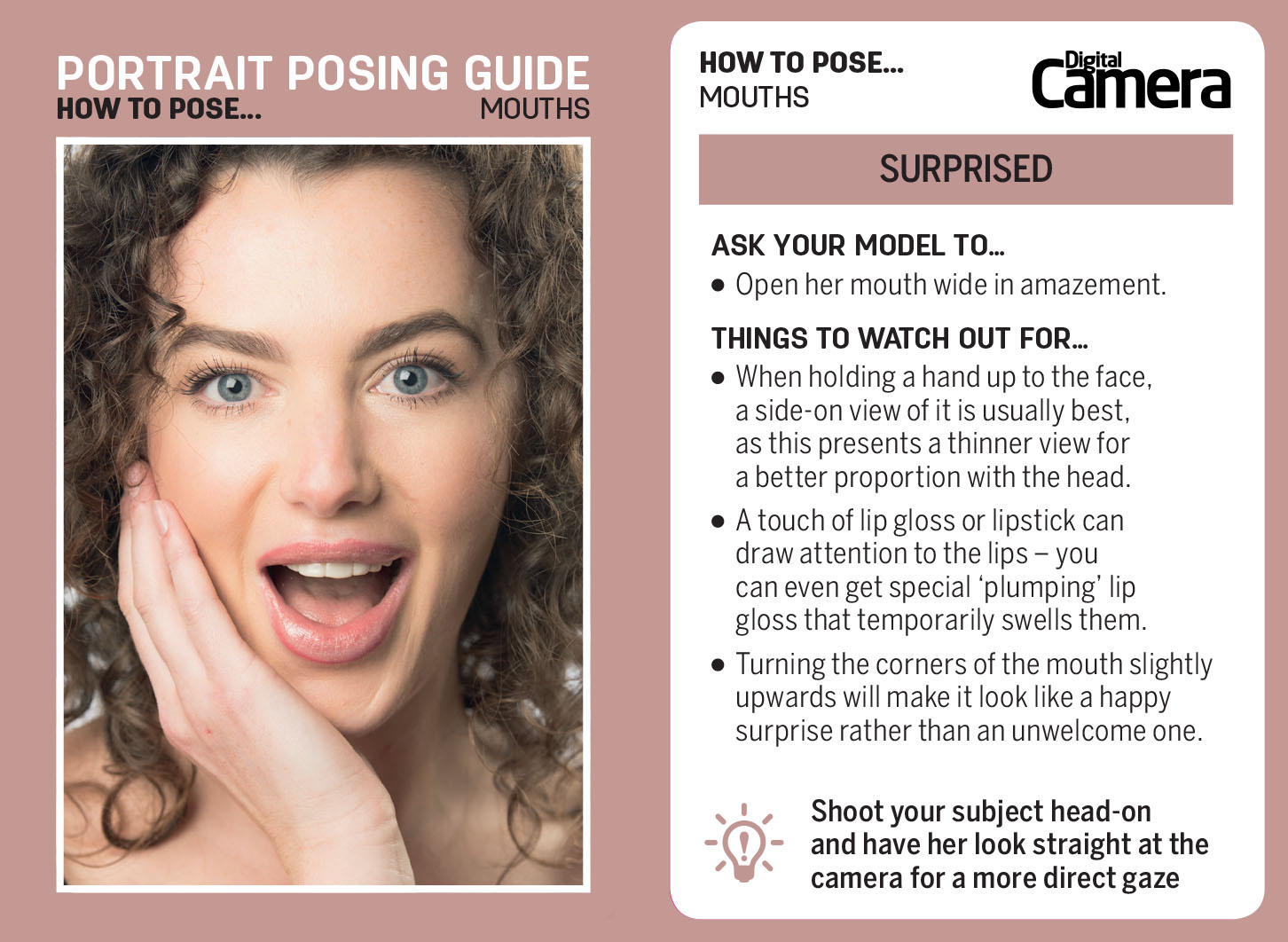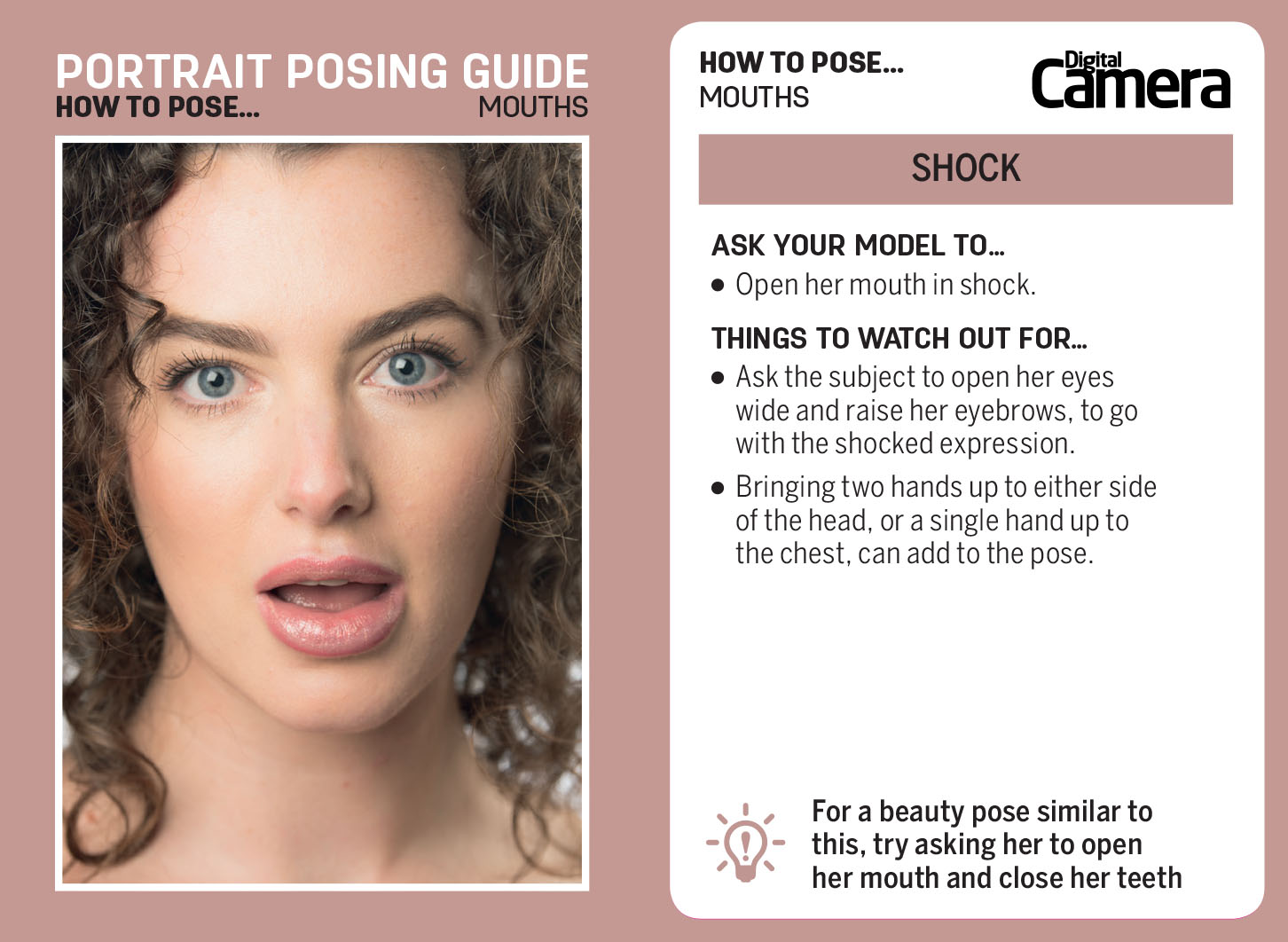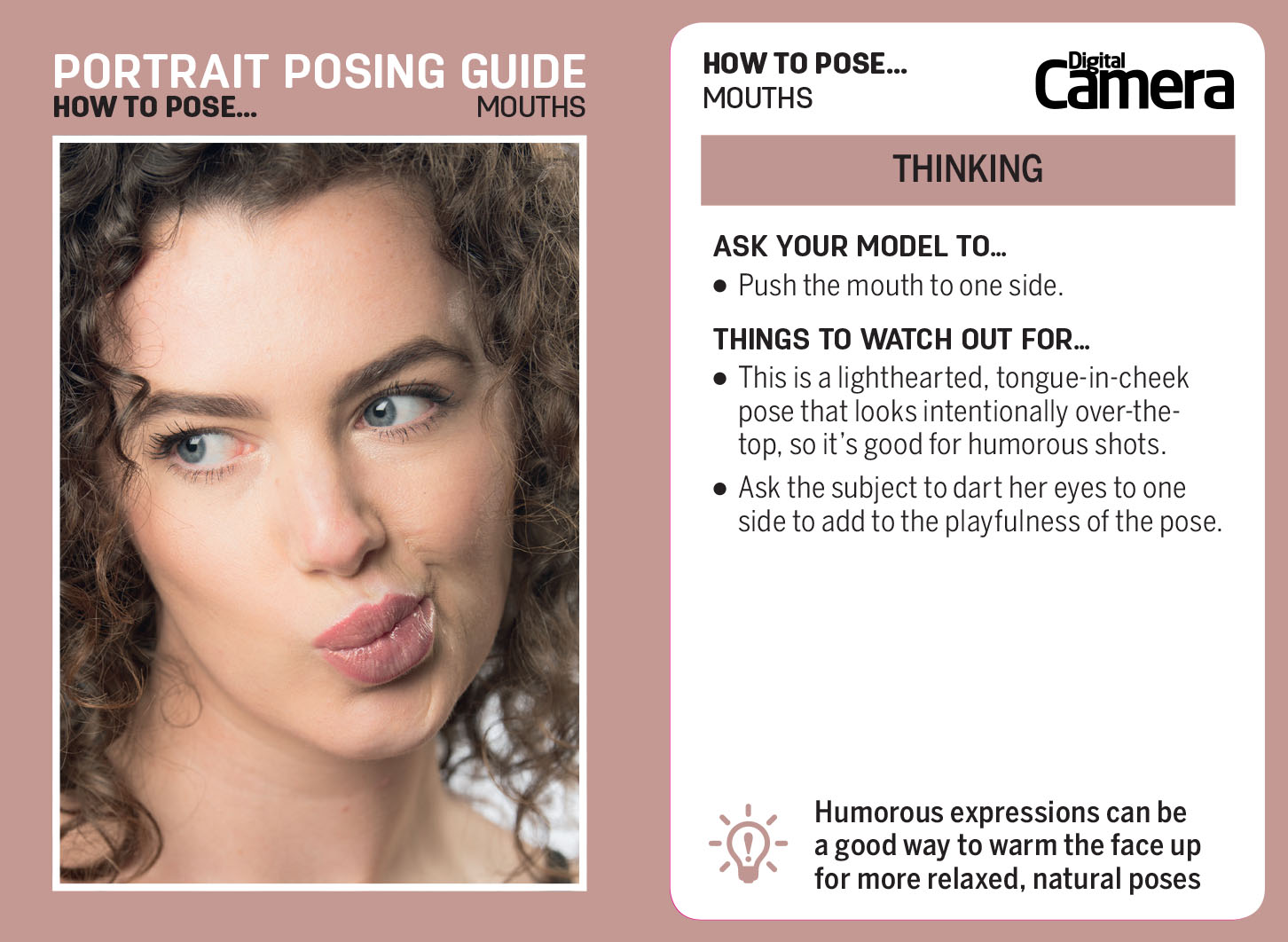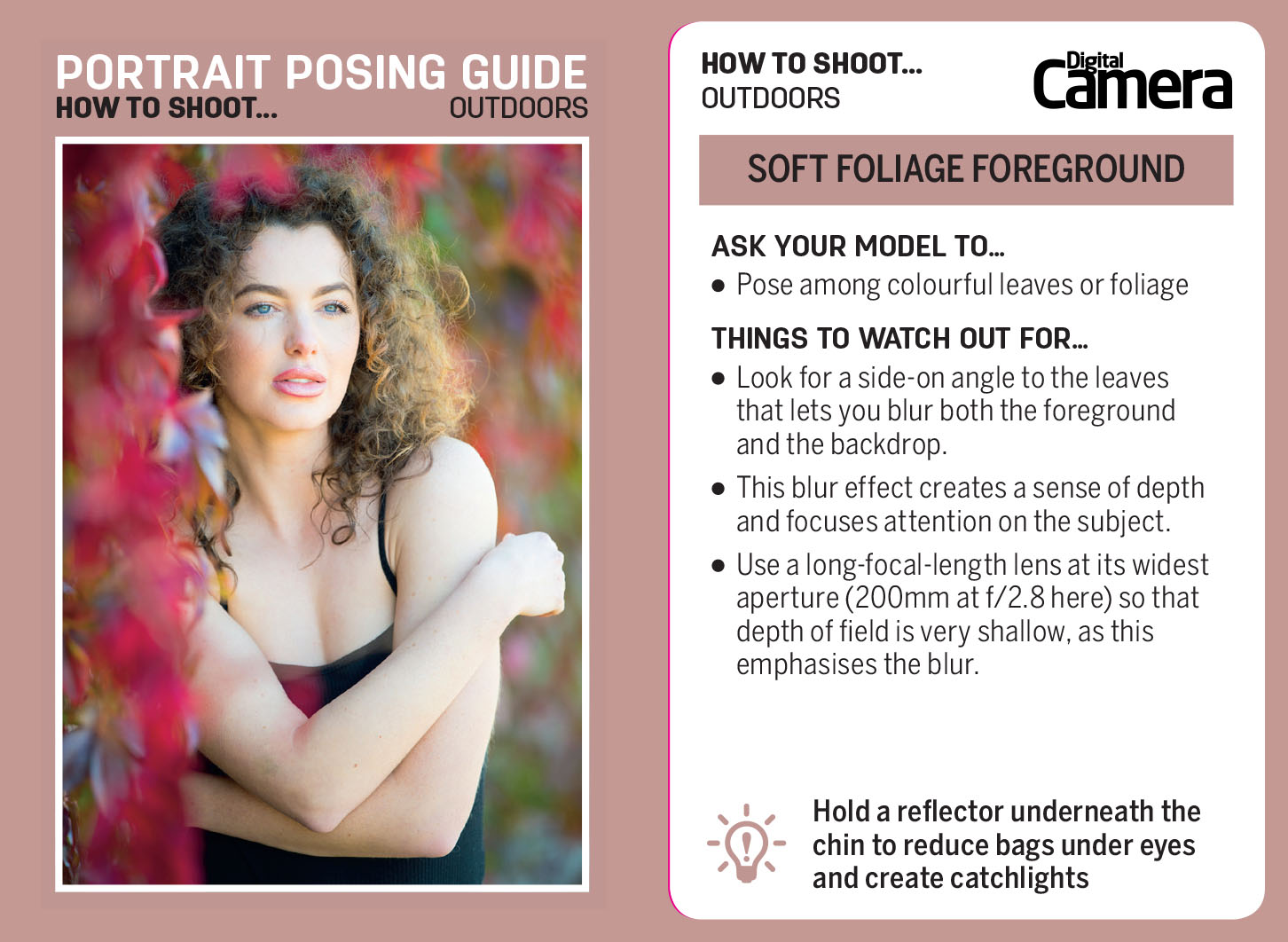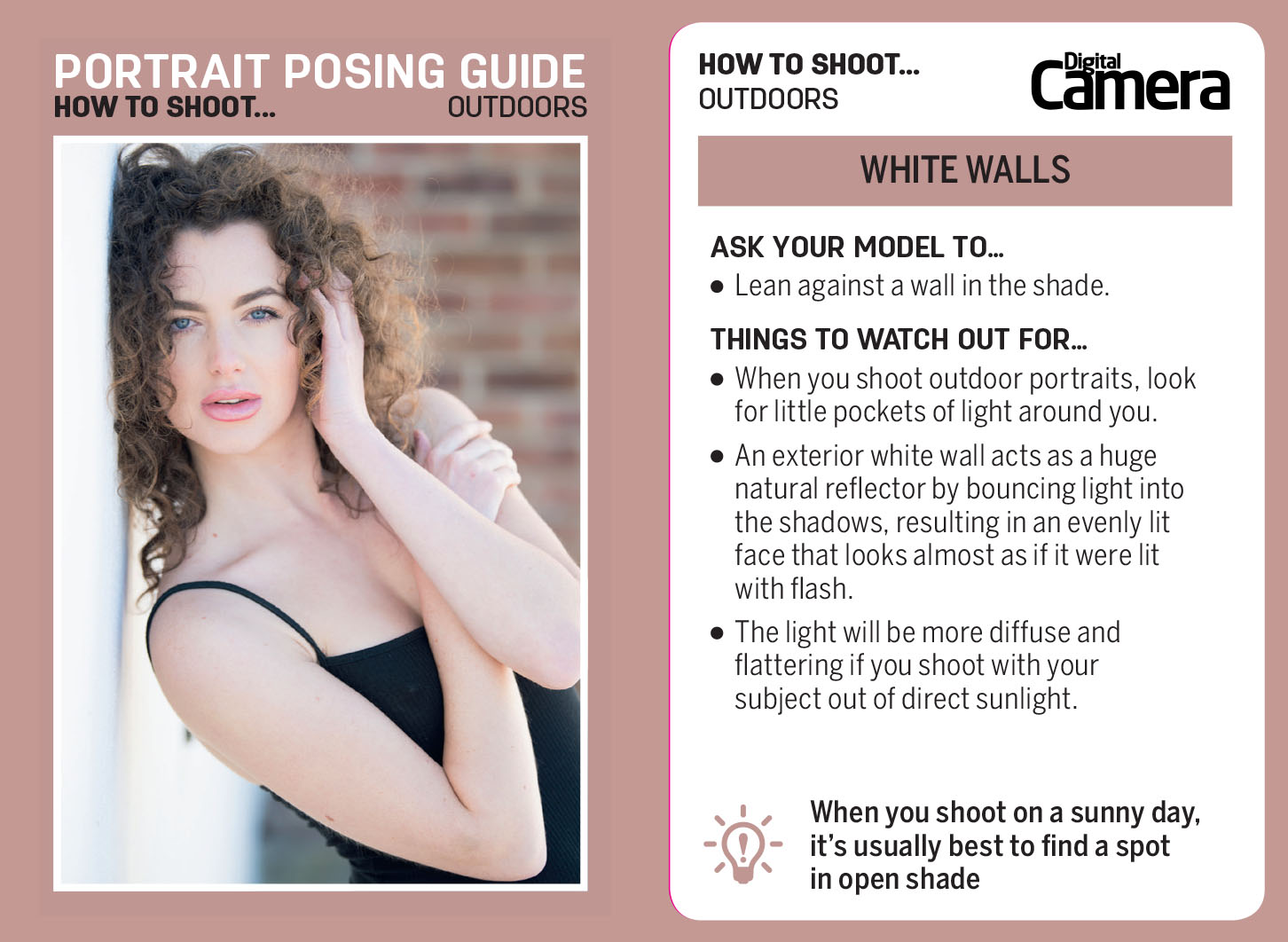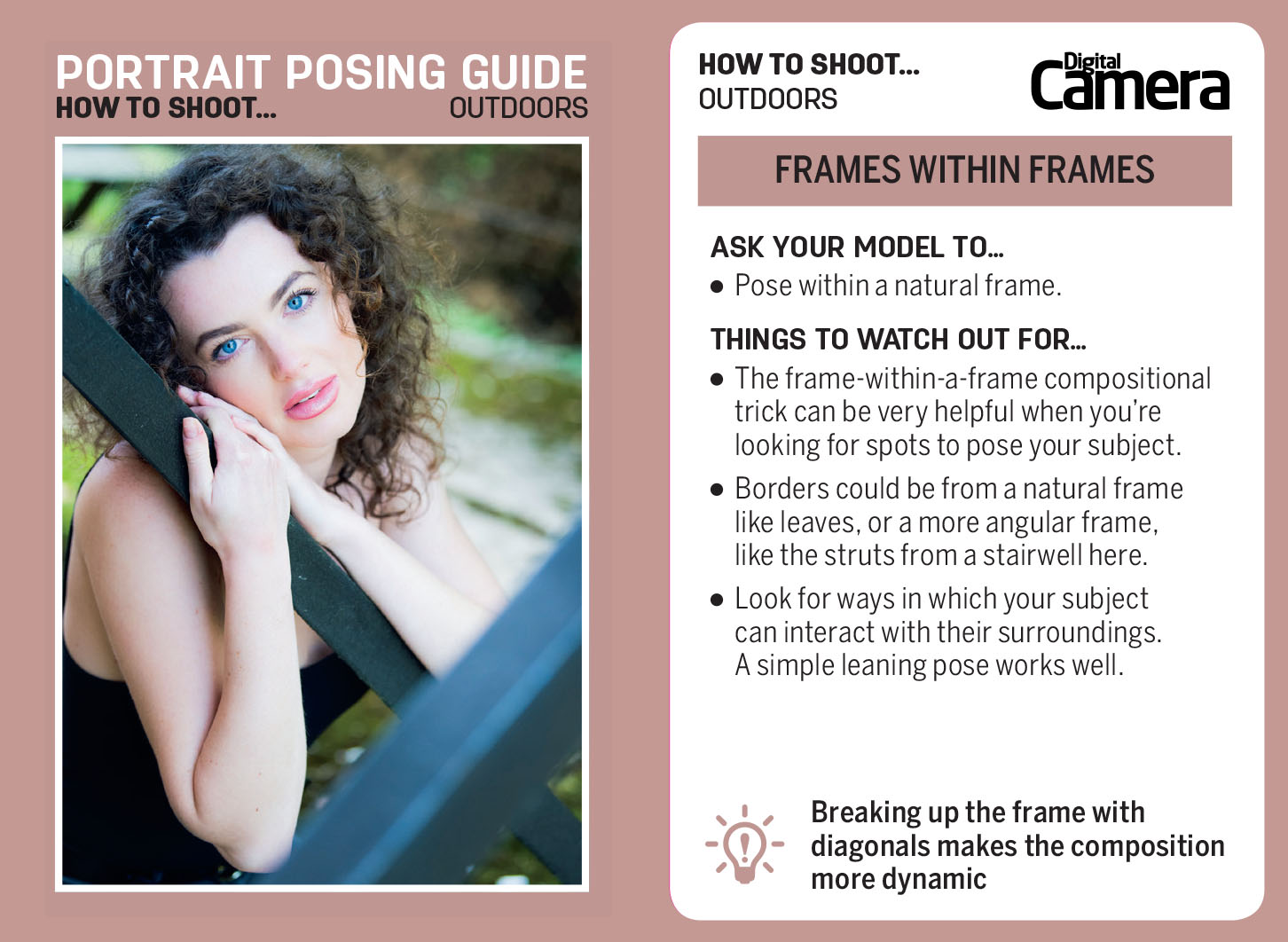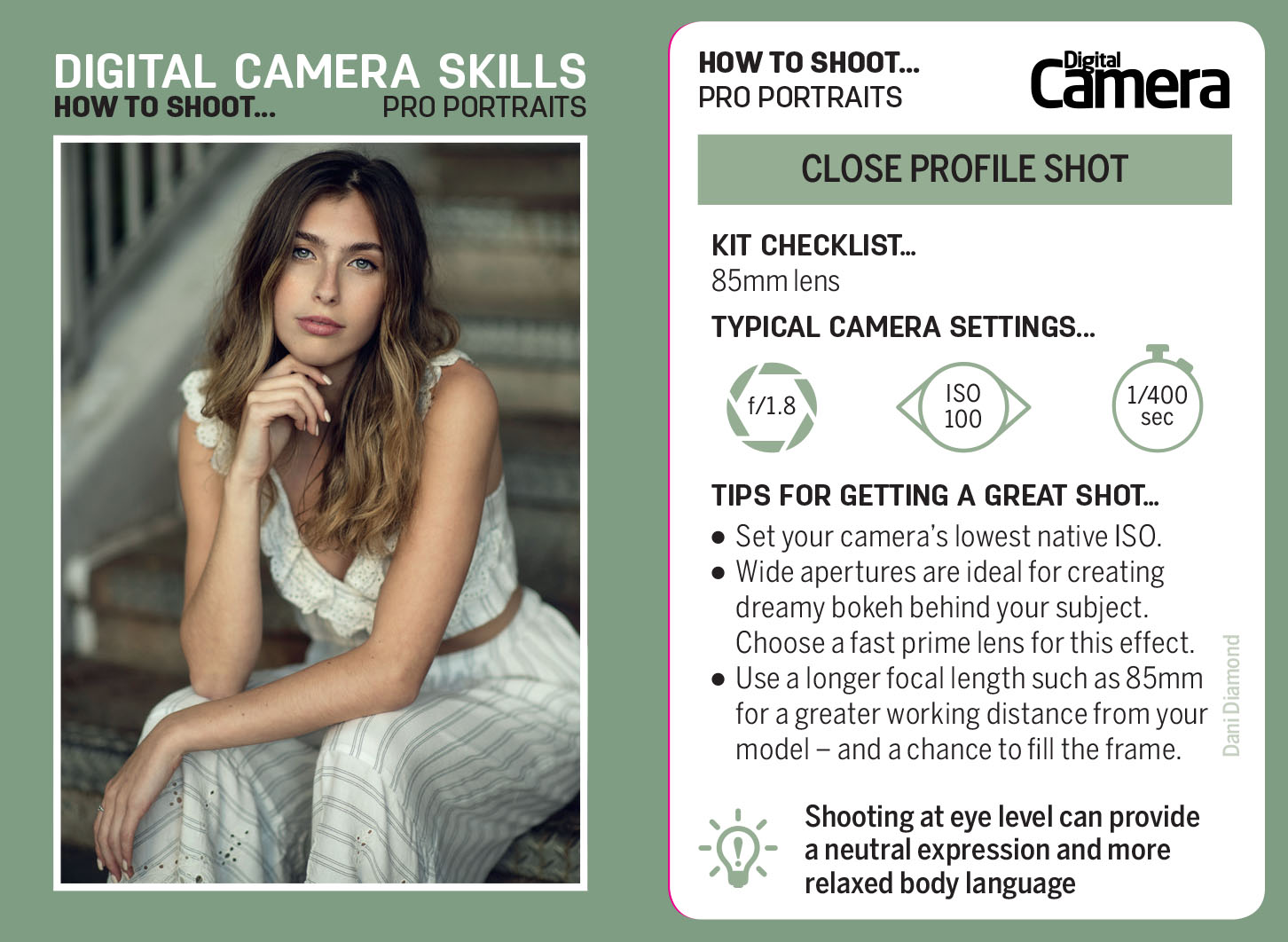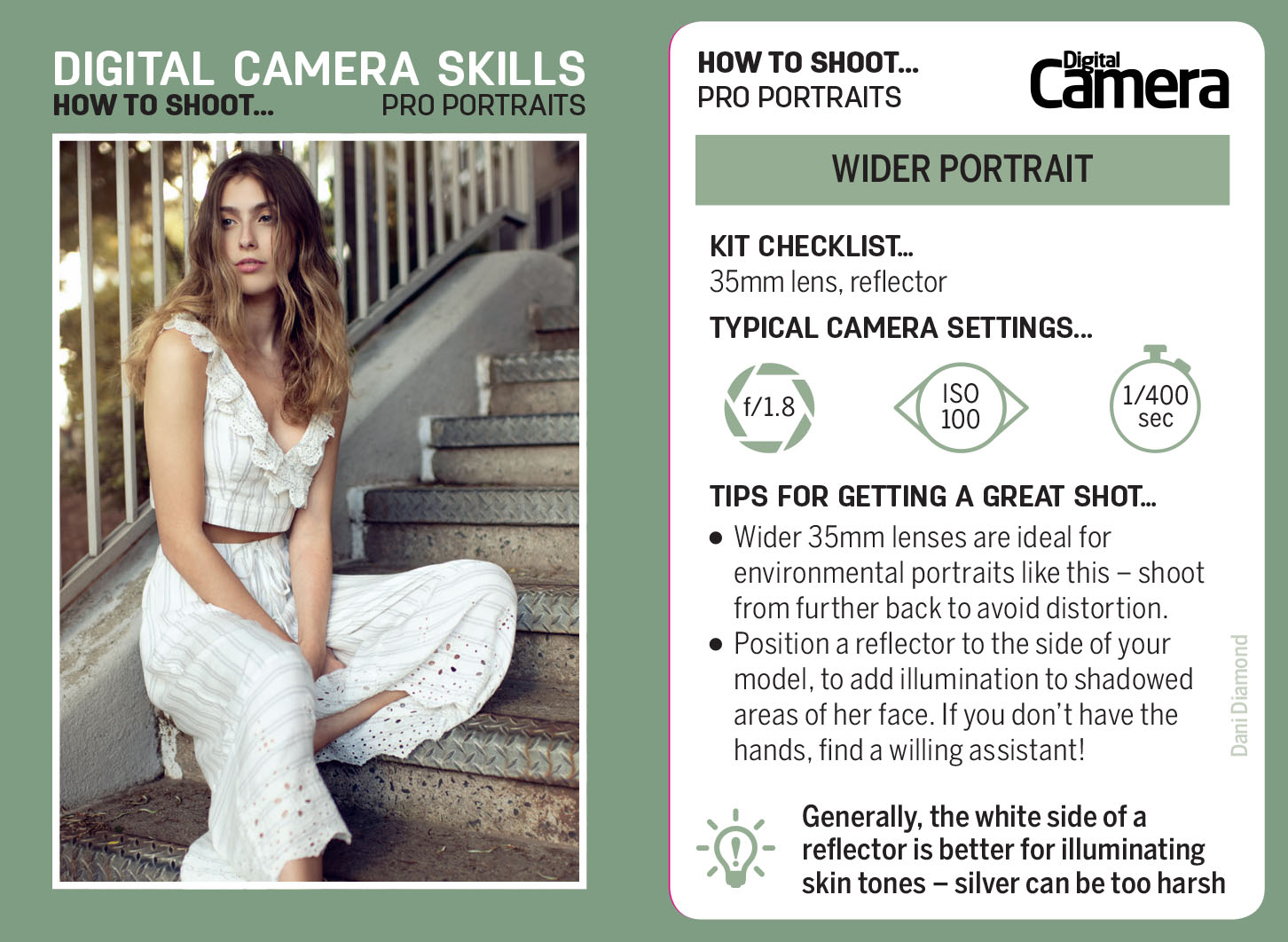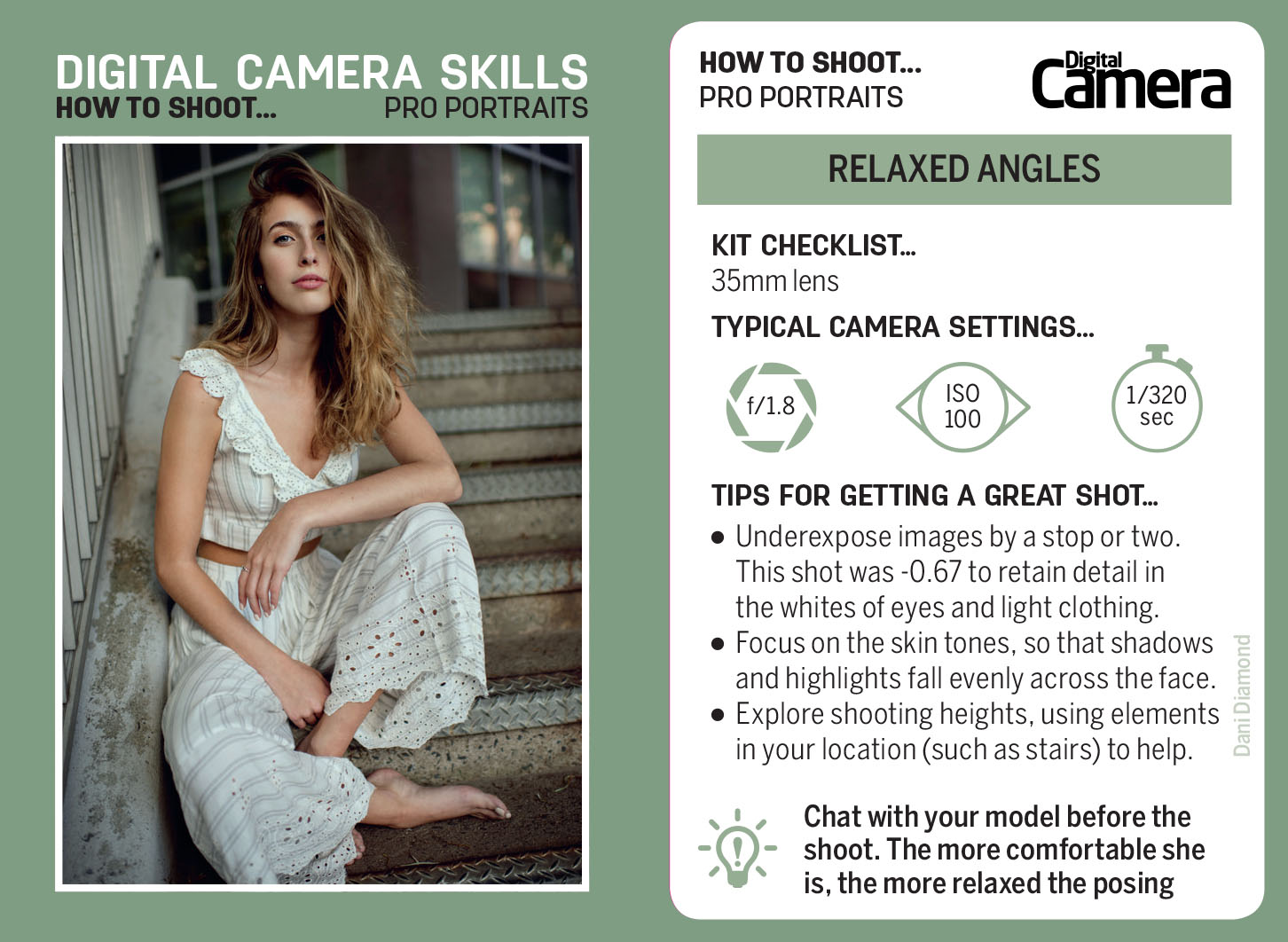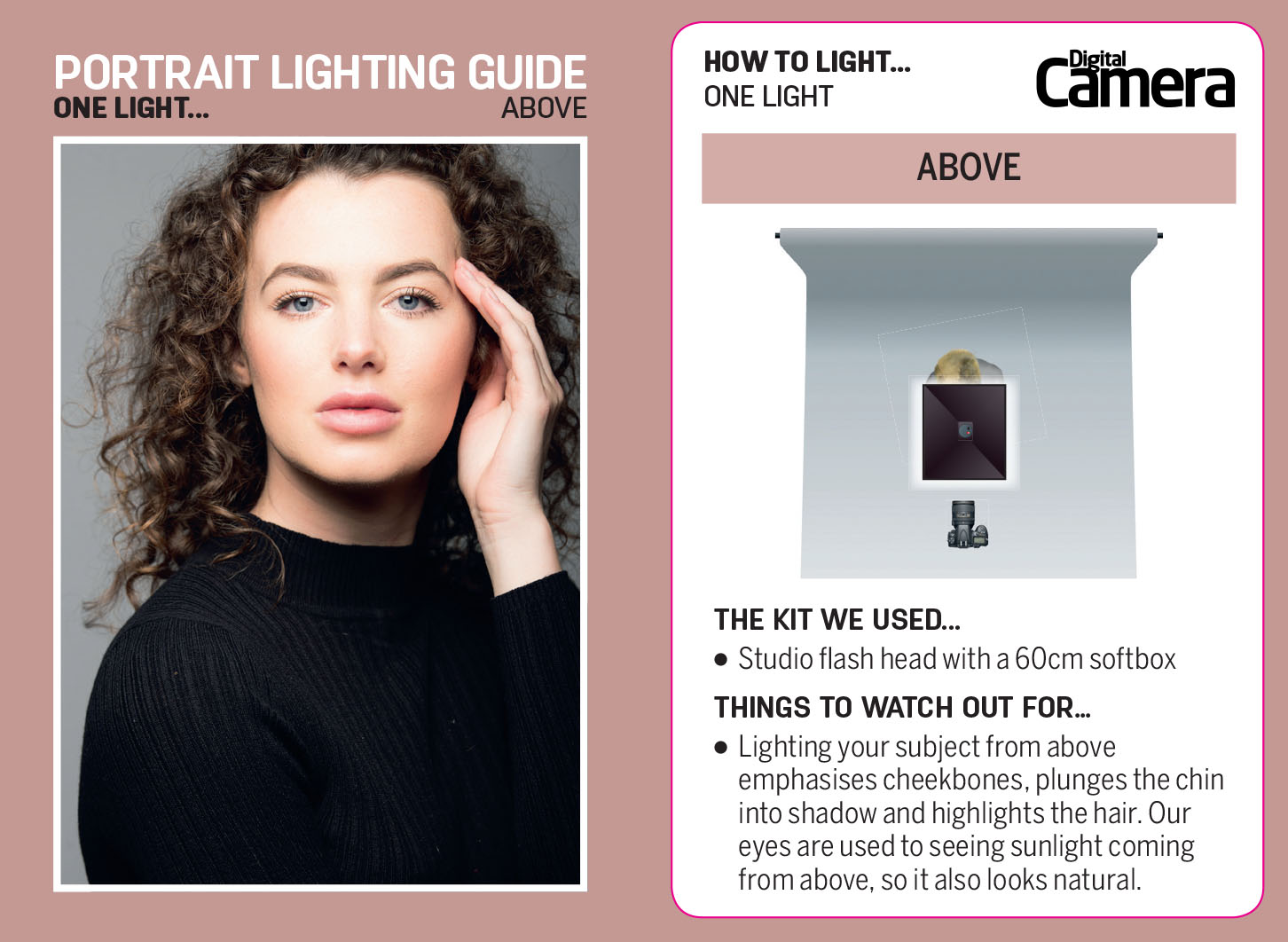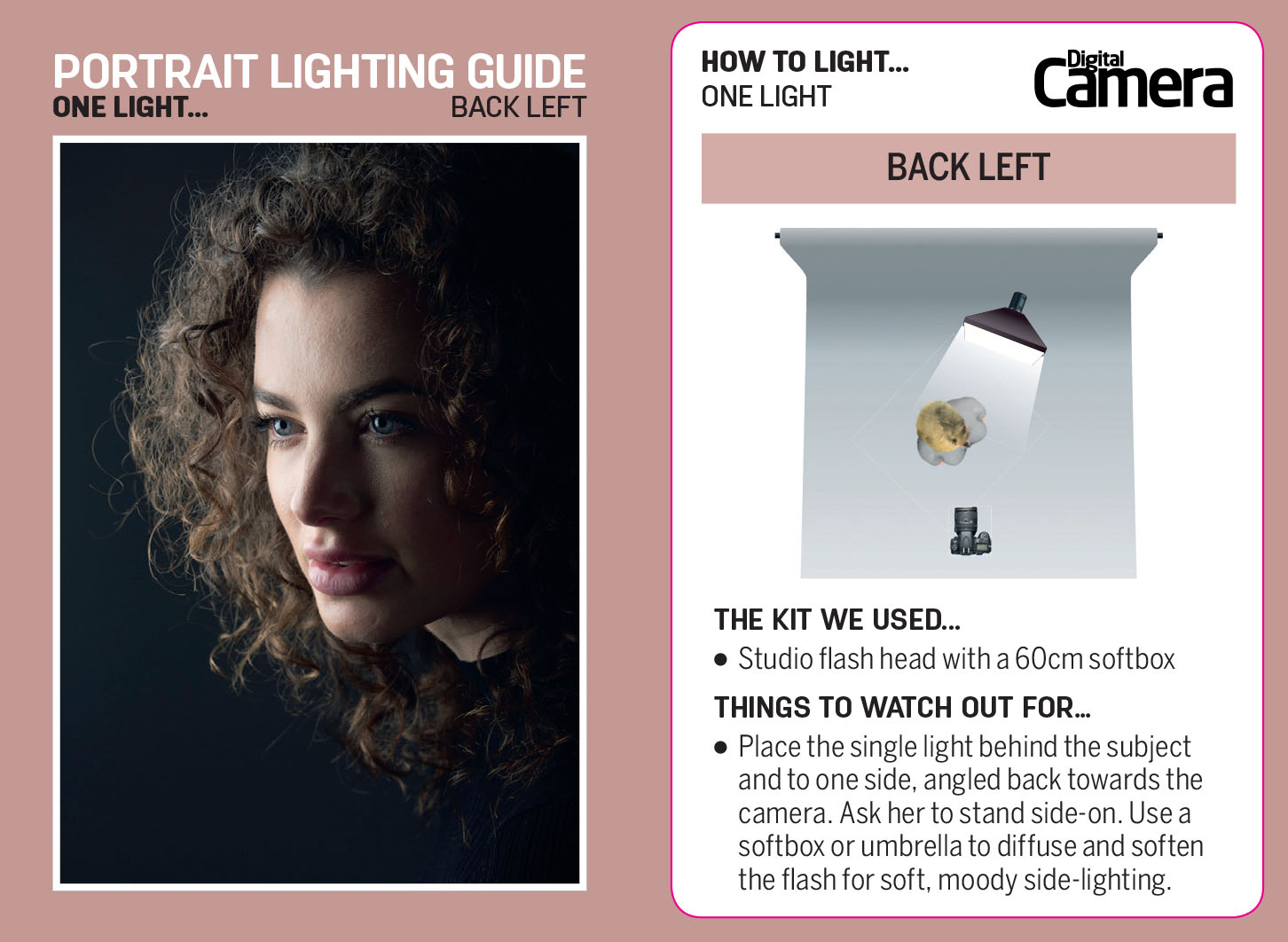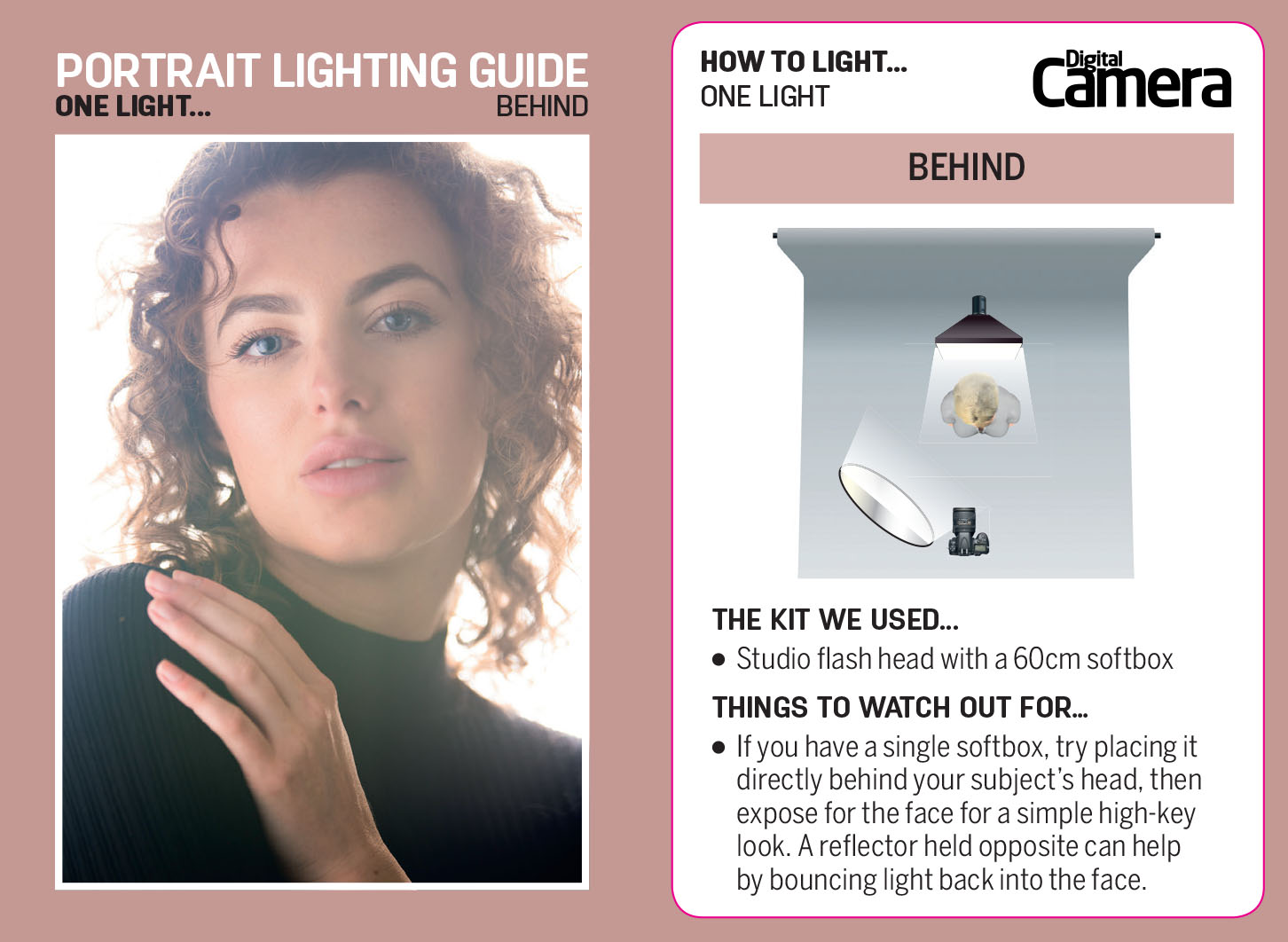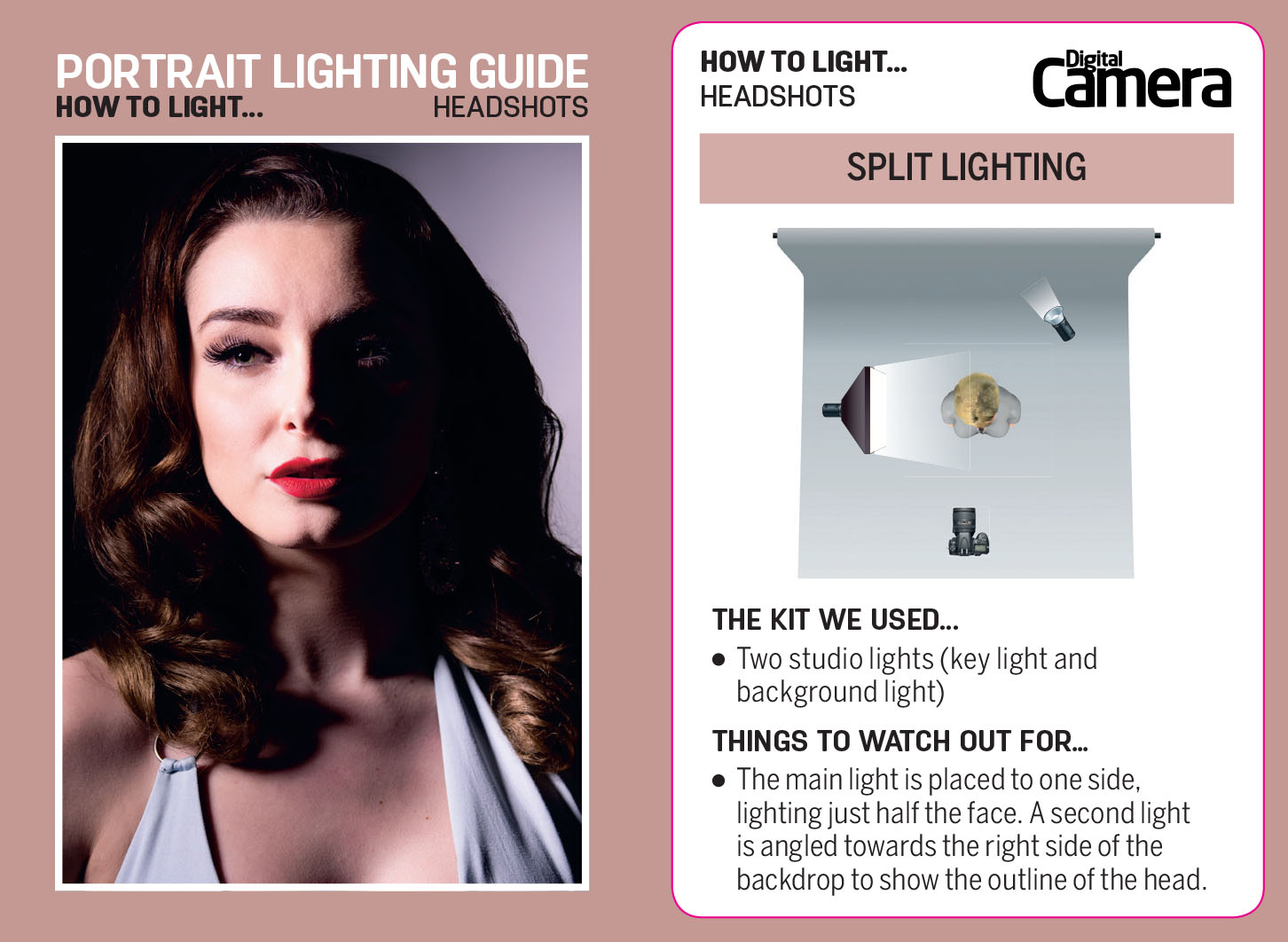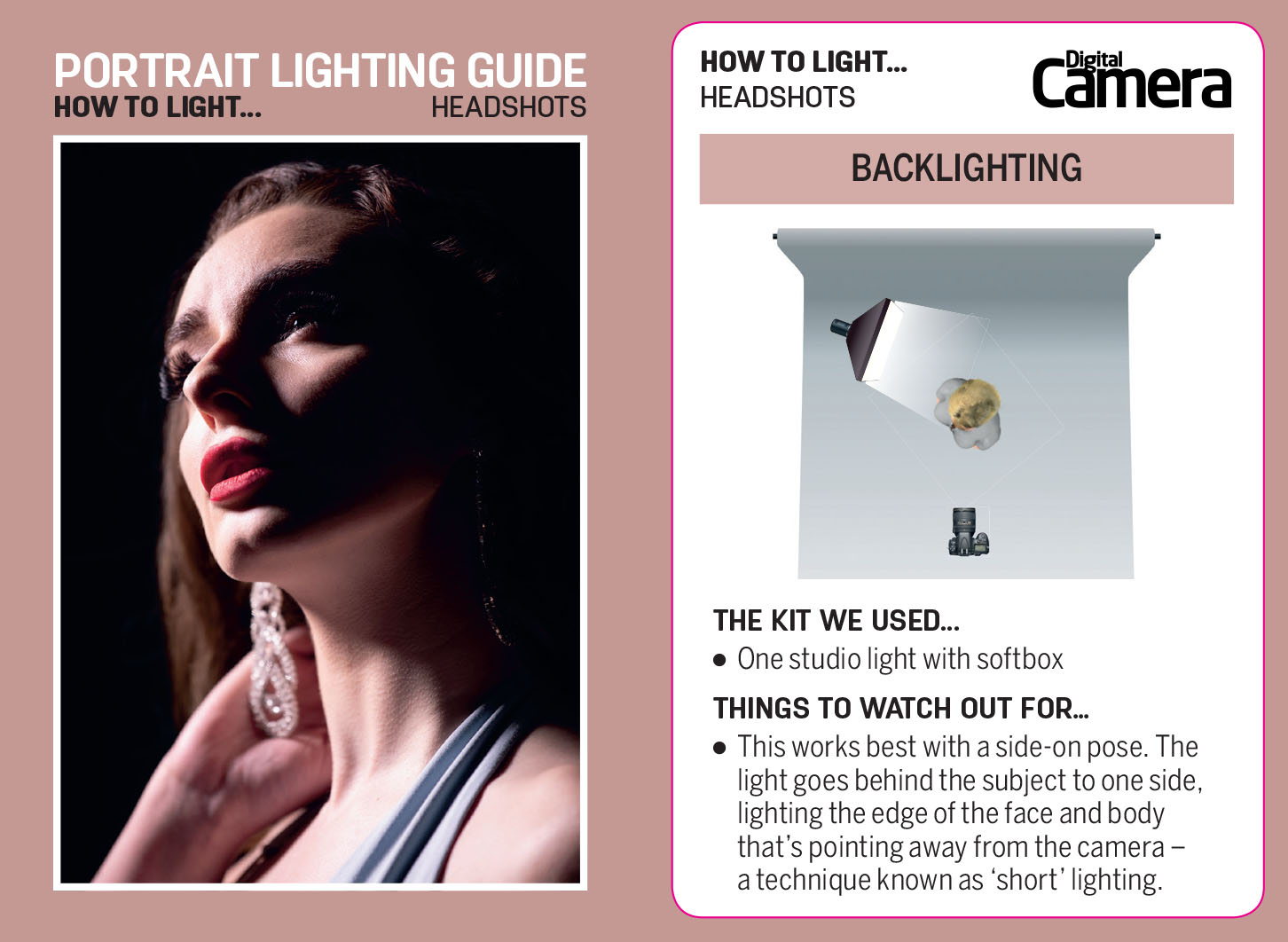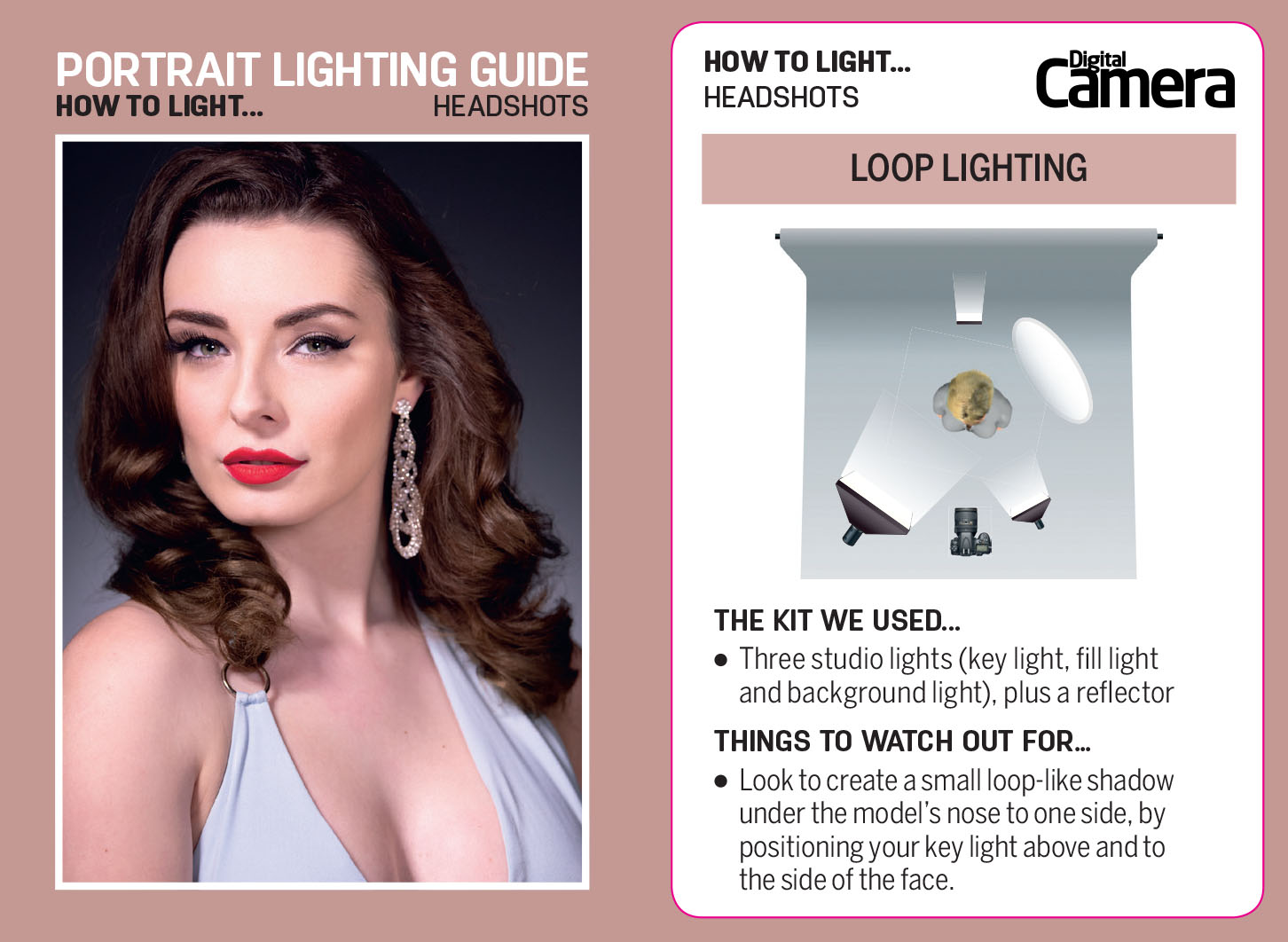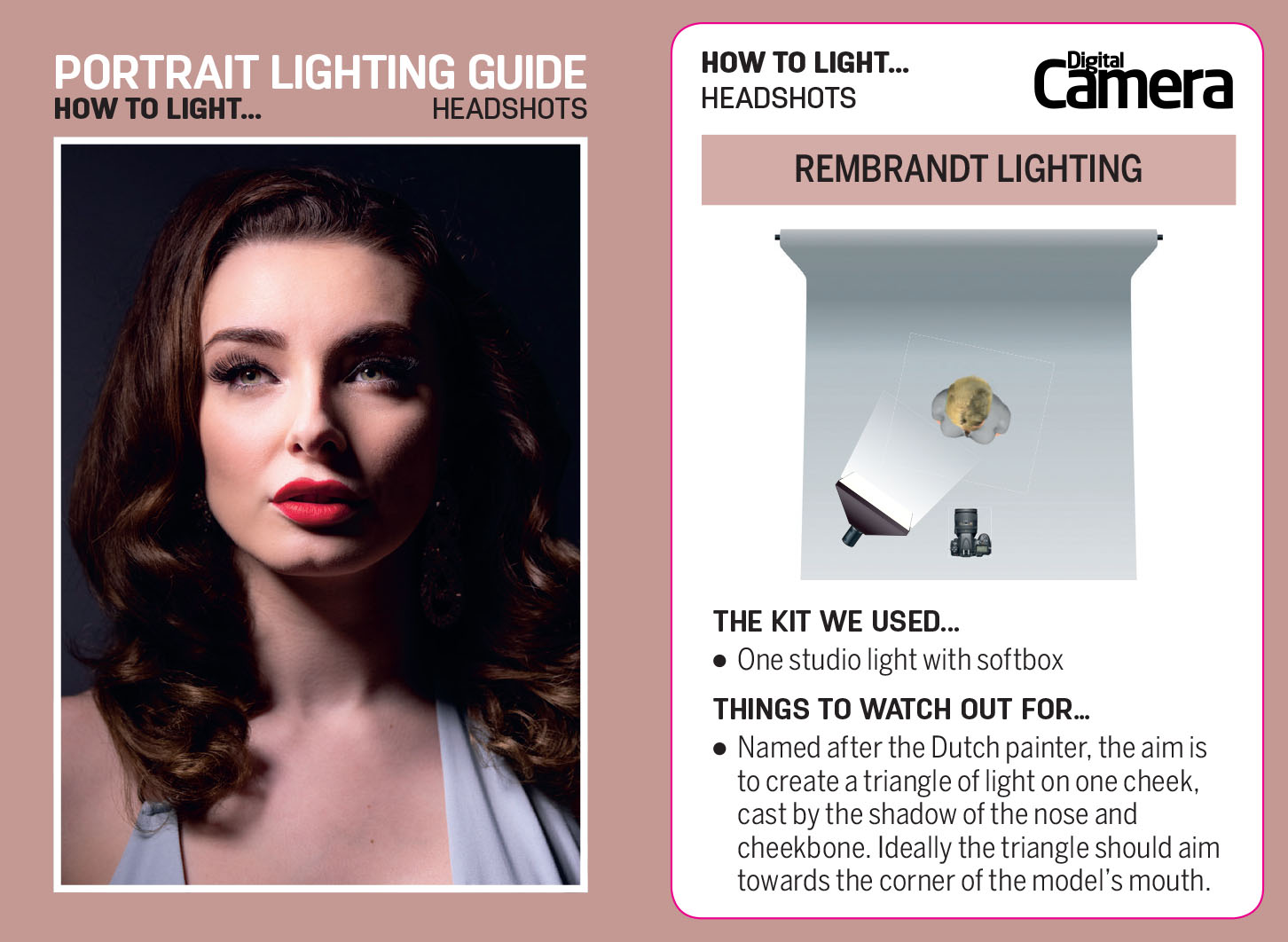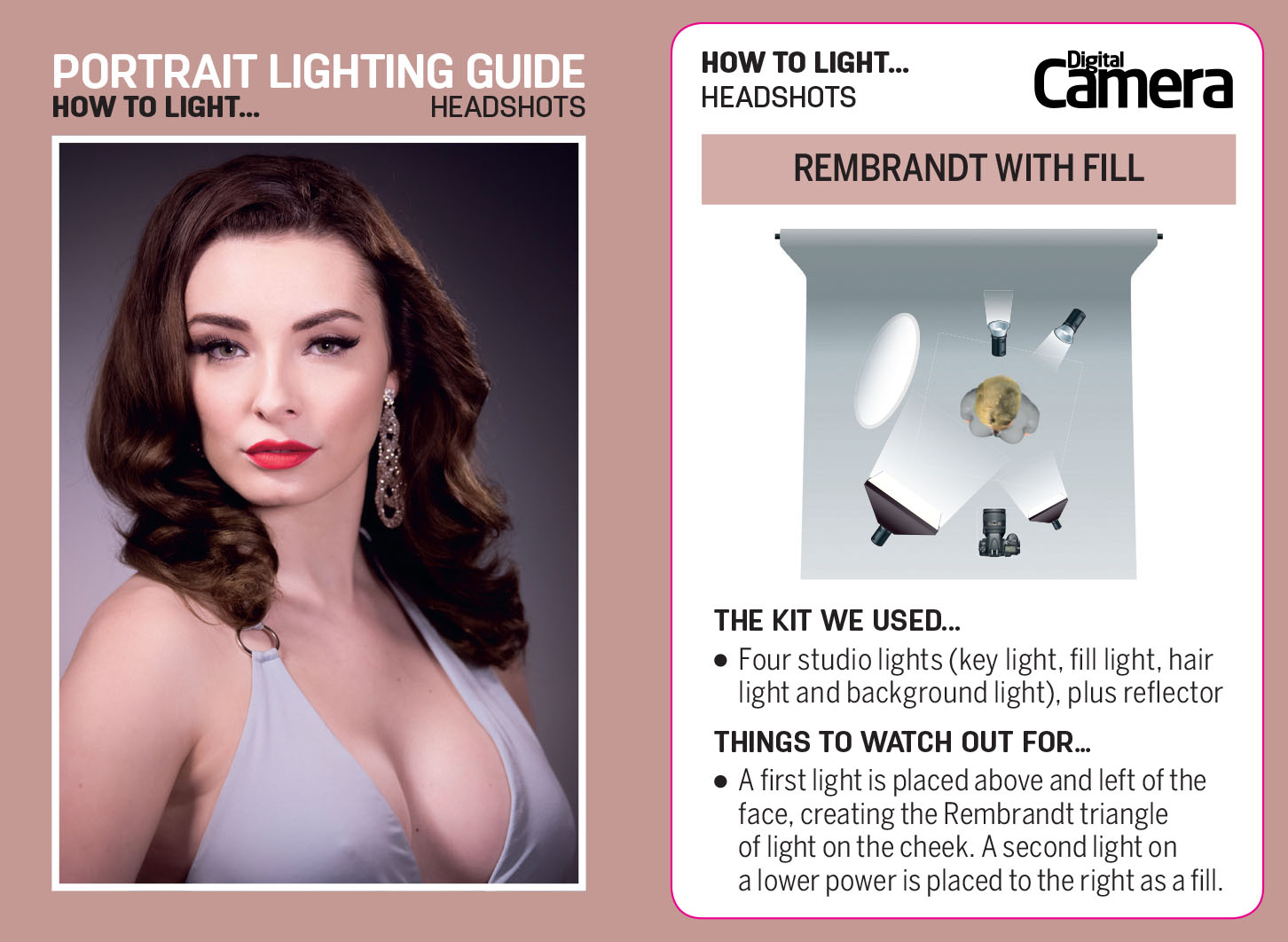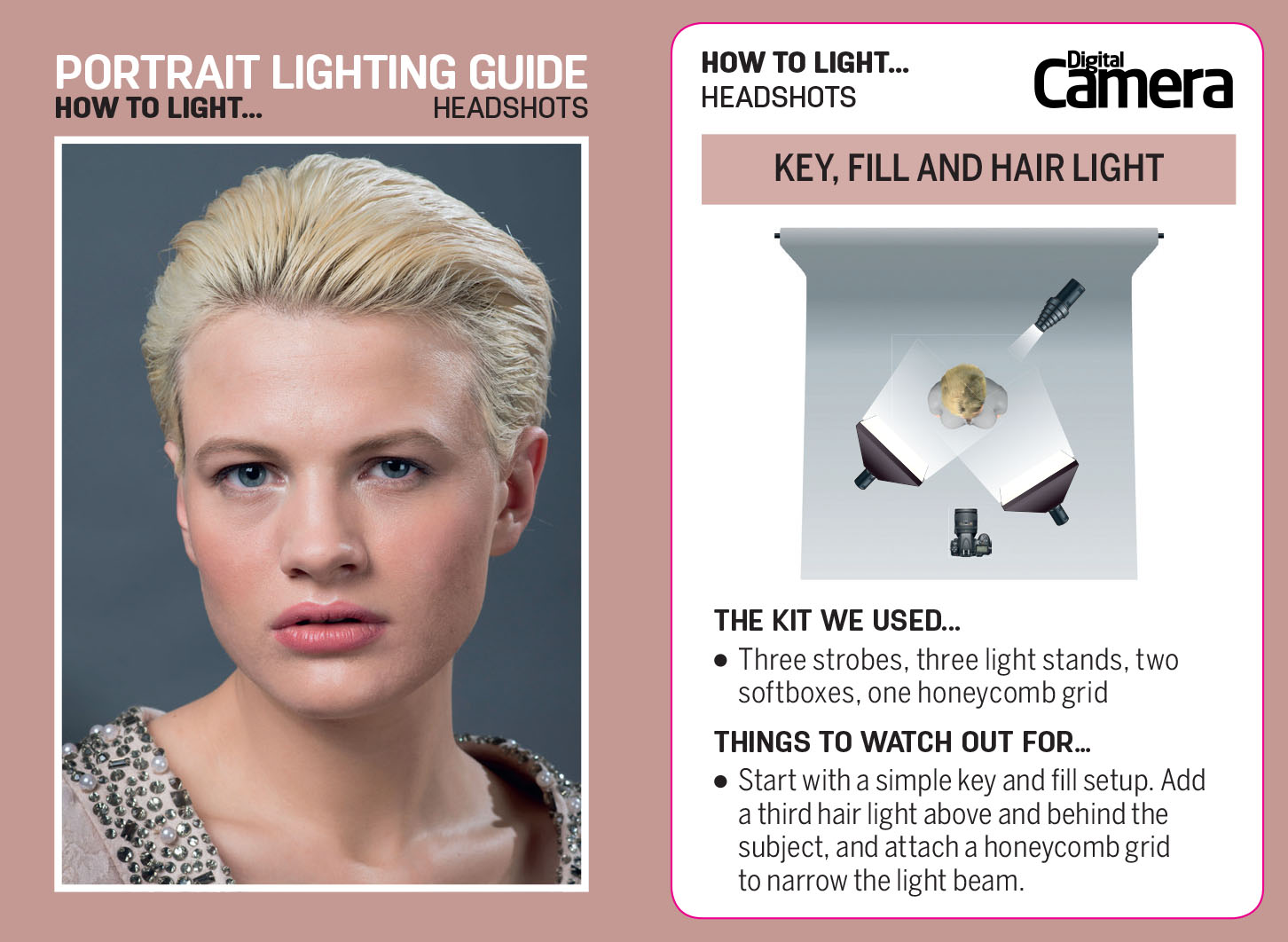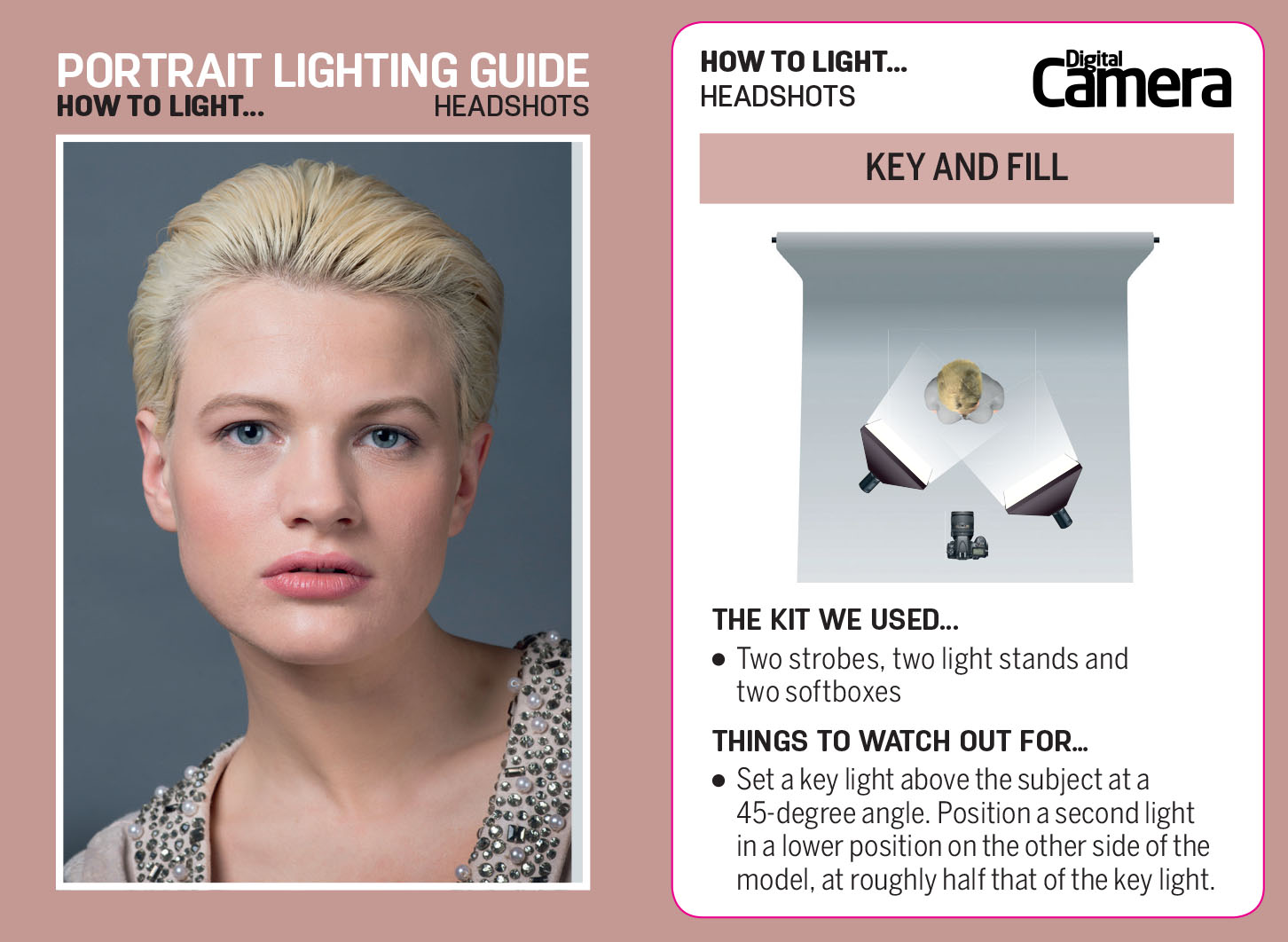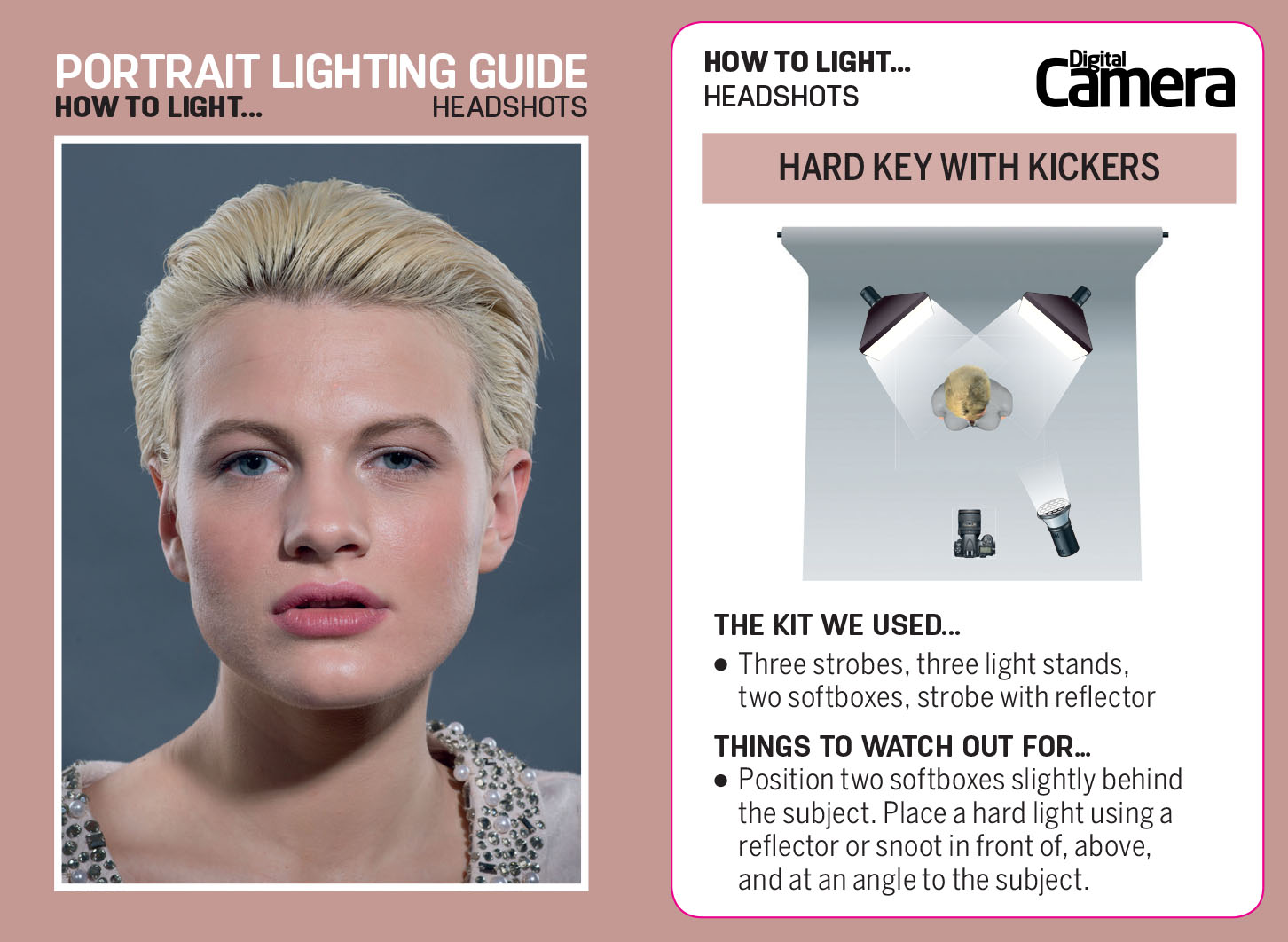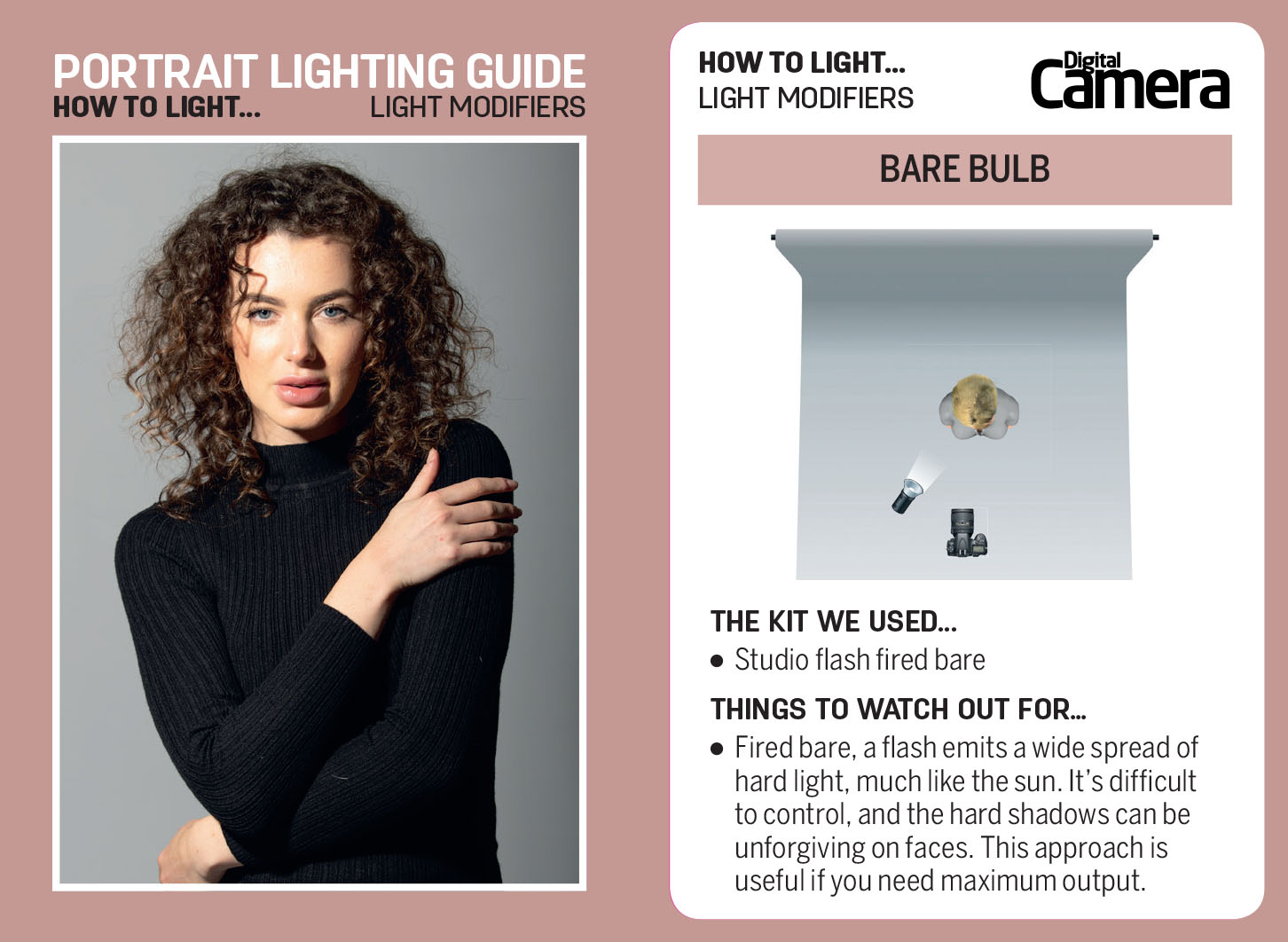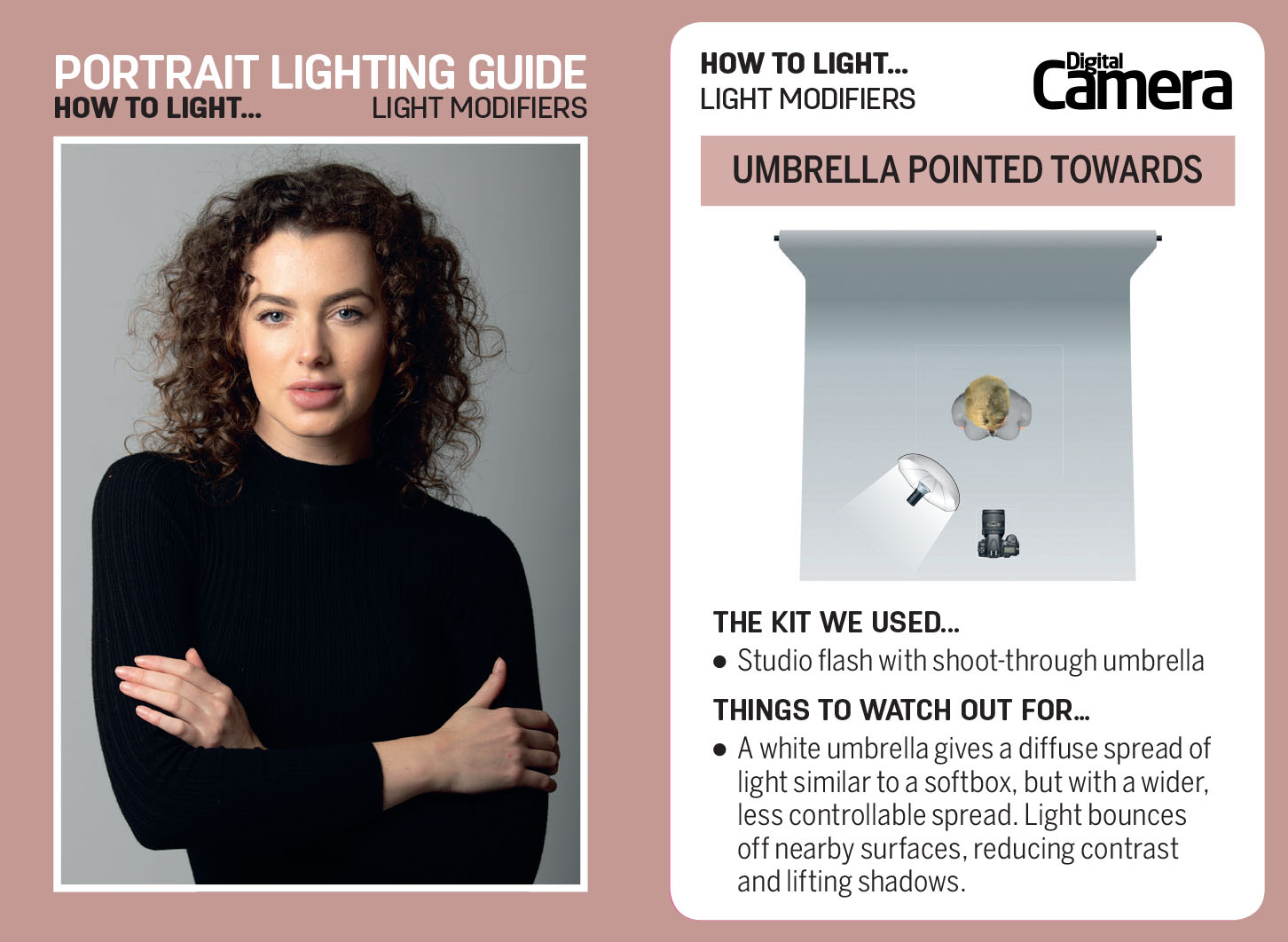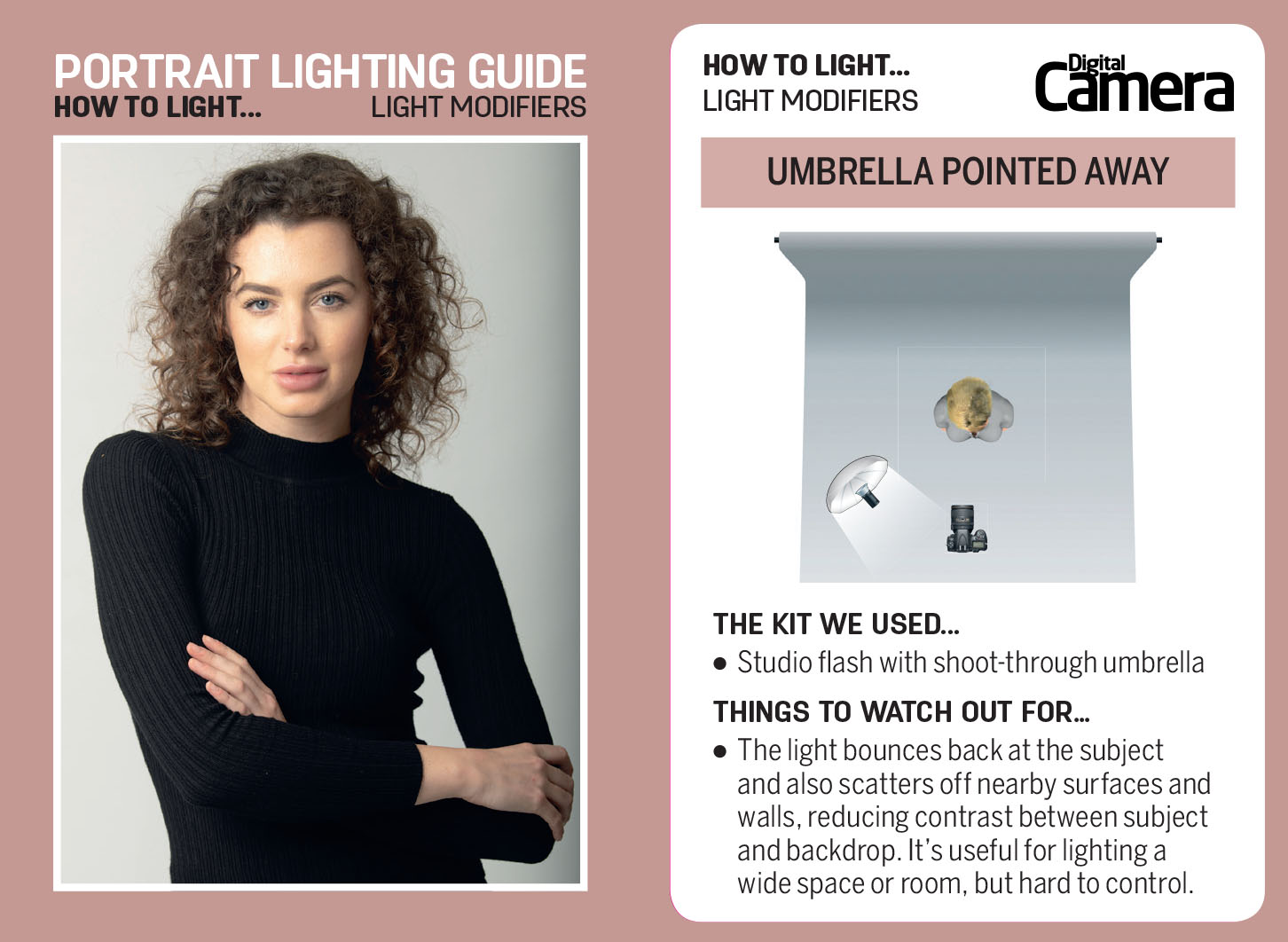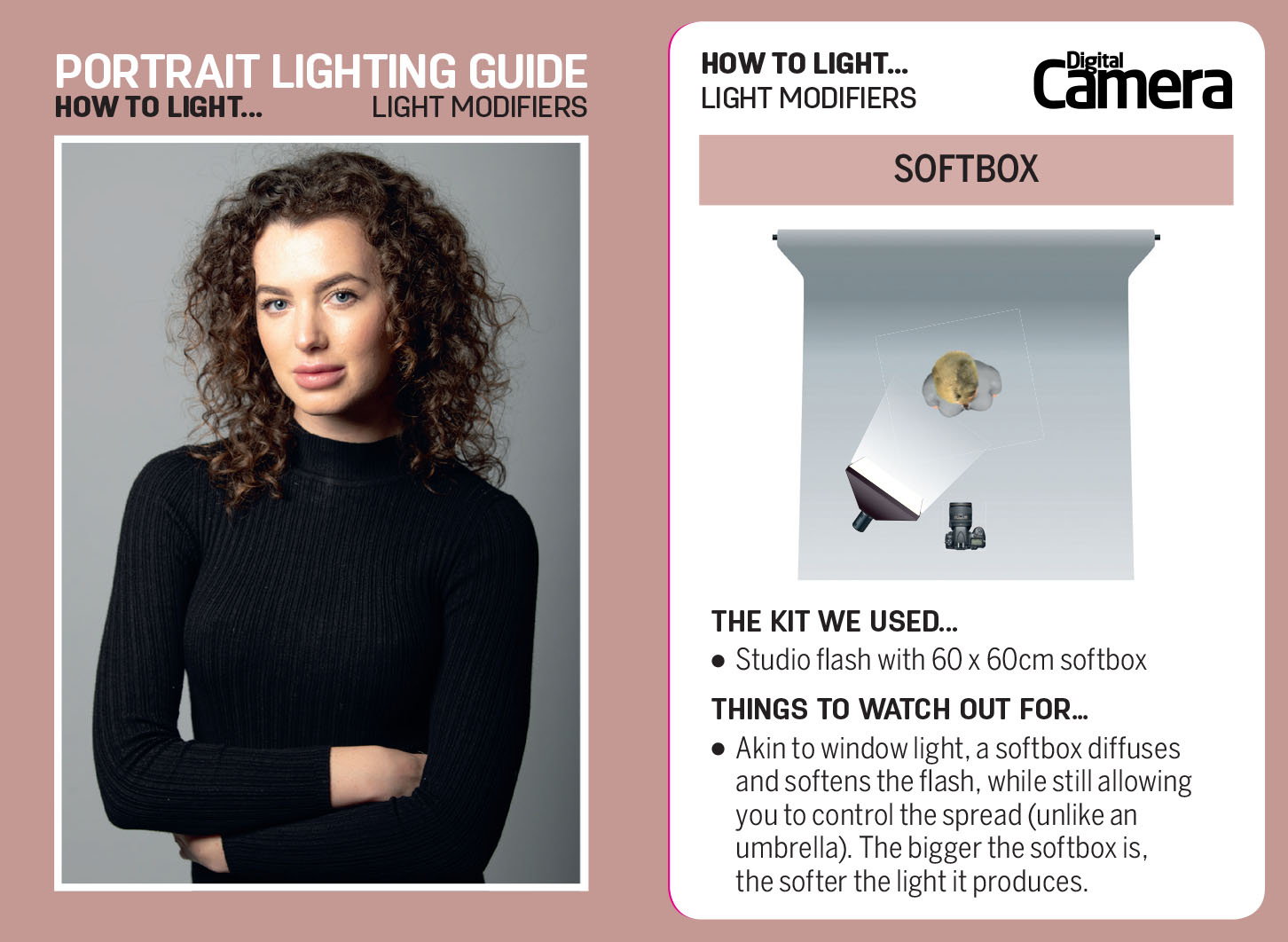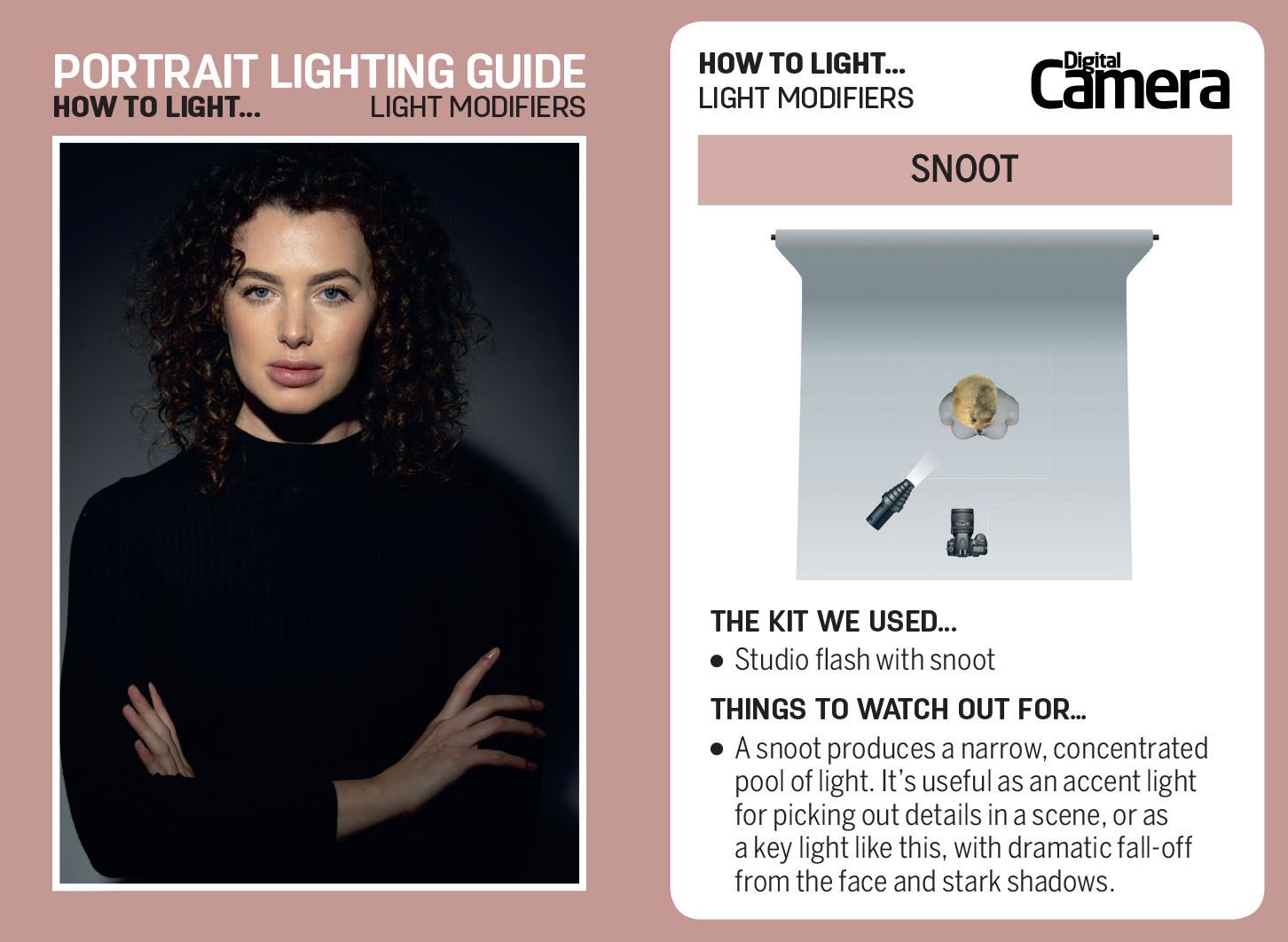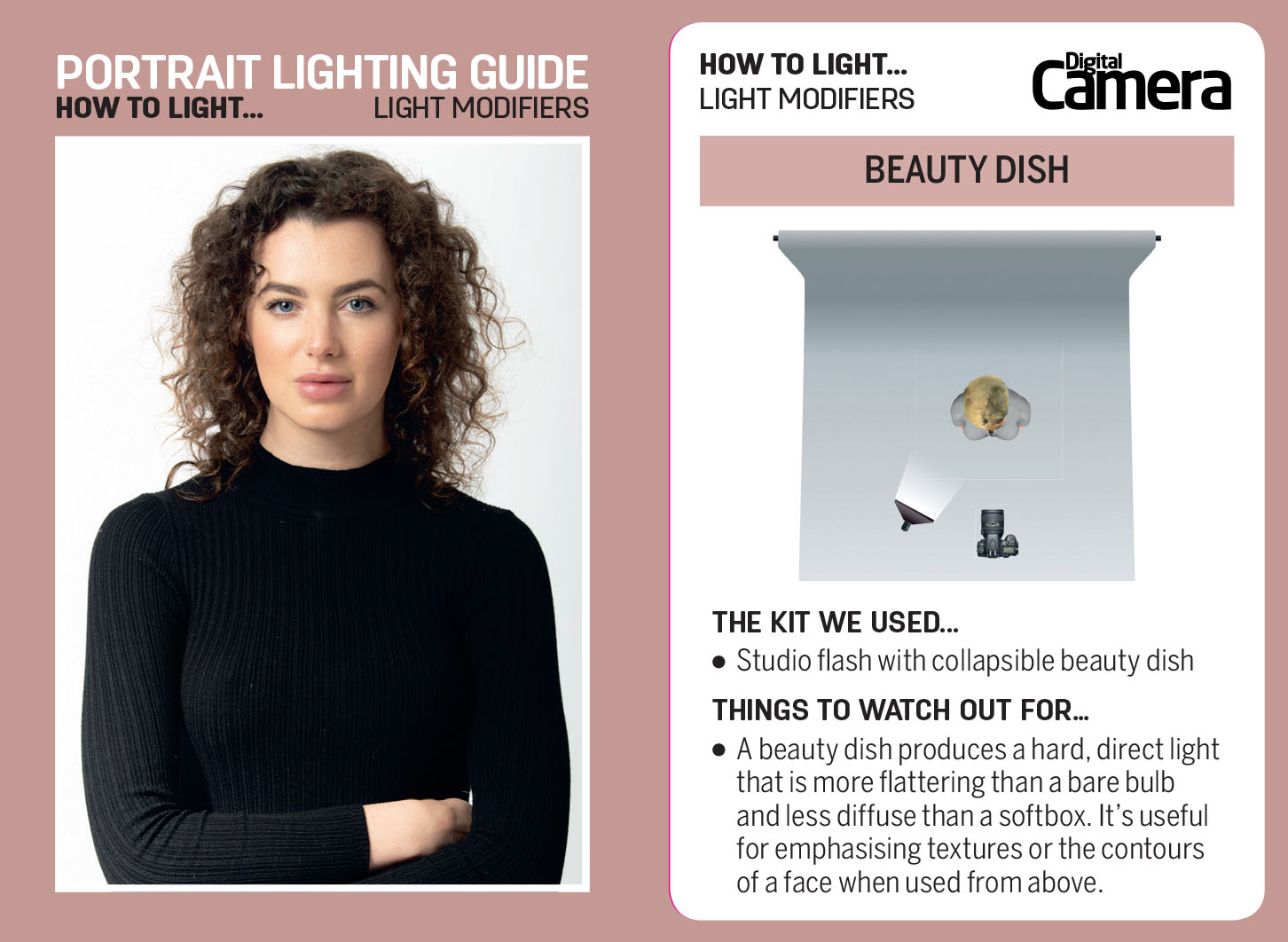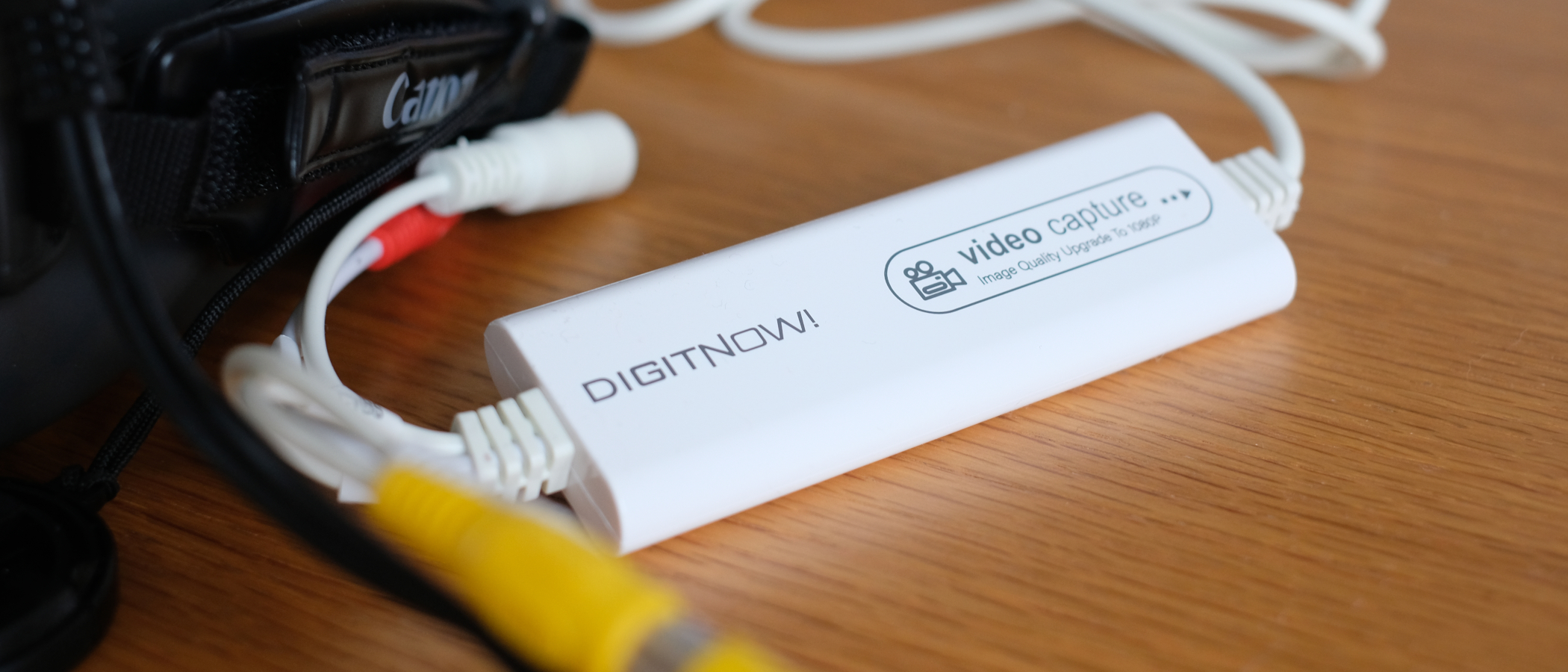66 tips cards for posing & lighting in portrait photography
Learn the secrets of professional portrait photography without leaving your home, with our collection of bite-sized tips cards
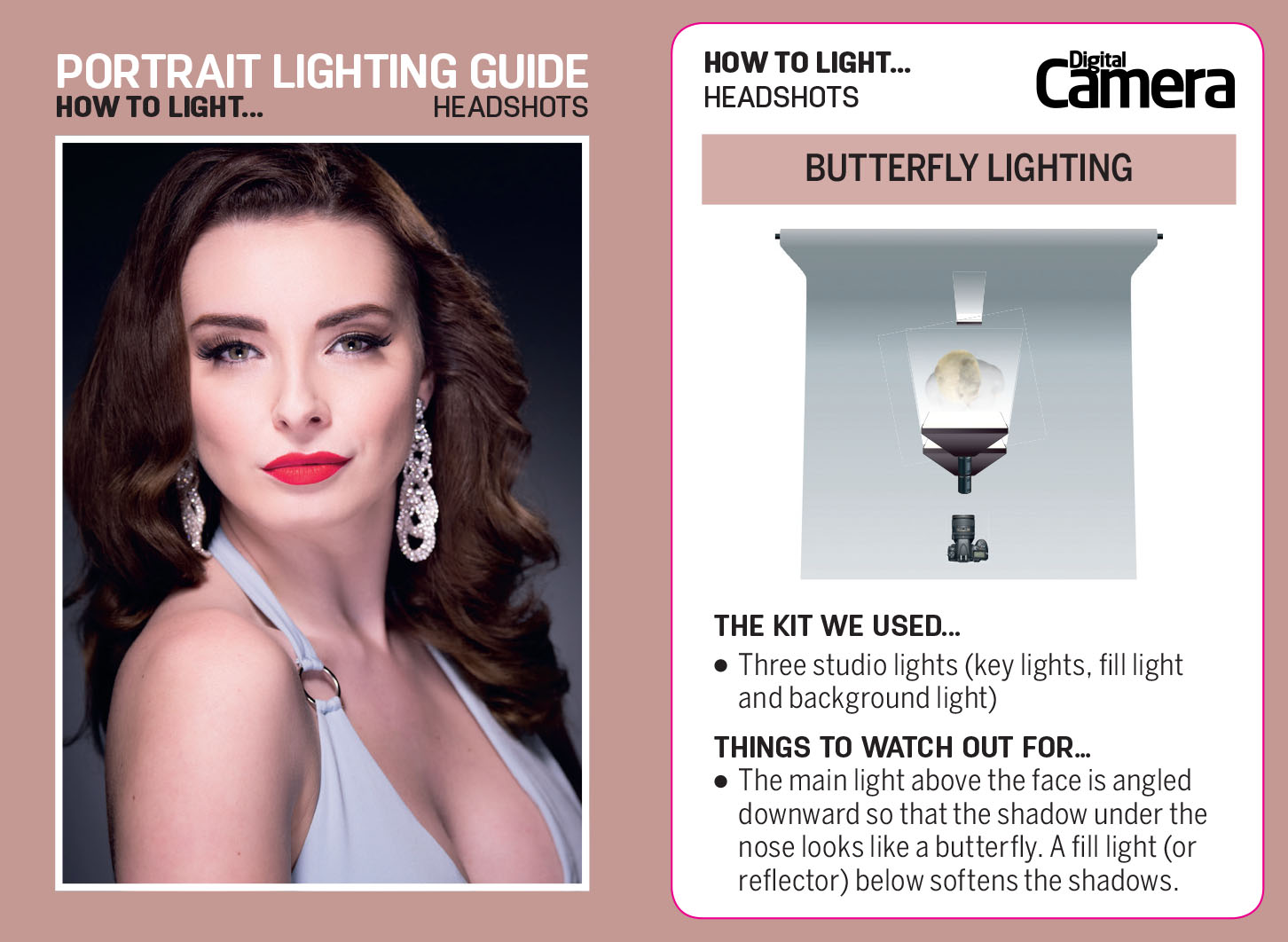
The best camera deals, reviews, product advice, and unmissable photography news, direct to your inbox!
You are now subscribed
Your newsletter sign-up was successful
• Portrait lens: This will give you the perfect perspective for faces and beautifully defocused backgrounds
• Backdrops: Not essential, but extremely useful for pretending your living room is a studio
• Lighting kit: A two light kit is all you need to make professional looking portraits
• Light modifiers: Perfect for 'shaping' the light
• Reflector: If you get nothing else, get a reflector!
Digital Camera magazine has been putting pop-out tips cards on its covers for dozens of issues (find out how to subscribe below), so we thought why not put our favorites online?
This time our subject is portrait photography, with detailed advice on every aspect, from lighting, to posing, to what your models should do with their hands! Each card has a sample image and simple instructions that show you how to try out these techniques.
See also: Portrait photography how to: great portrait tips for all user levels
Our tips cards have been sized specially for easy on-screen viewing, and not just on a desktop computer but on the smaller screen of a tablet or a smartphone. And if you can't easily read the text on your phone, just turn it sideways.
See also: 72 tips cards for photographers
For those who prefer paper to pixels, see our diagram below. You can download any of these cards, print them out, trim them and fold them.
Need a printer? Try these:
The best camera deals, reviews, product advice, and unmissable photography news, direct to your inbox!
• The best all-in-one printer for home working
• The best photo printer right now
• The best portable printer for photos
Download and print
1. Click the gadget in the top right corner of each tips card. This will open up a full-size version in a new browser window.
2. Right-click to download the tips card (it will save as a regular JPEG image).
3. Open it up in your photo editor and print it. We've already sized these cards to the correct dimensions, but if they do come out the wrong size for any reason, we suggest resizing them to a height of 9cm.
4. It's up to you what paper you print on and what your printer supports. Regular paper is a bit thin, but heavyweight paper or photo paper would be a good choice.
5. You don't have to print one card at a time. Why not combine the ones you want in your photo editor and print several at a time?
**If you're using a smartphone, tap and hold the card to save or download a screen sized version on your device**
Full length poses
How do you get your subjects to stand for full length portraits? If they're used to modelling they'll have some ideas already, but if they're new, here are some poses to get you started.
Digital Camera is the definitive guide to digital photography. Every issue comes packed with expert advice, in-depth tutorials, free gifts and inspirational images. Digital Camera has the sole aim of helping you become a better photographer.
Three quarter view
In three quarter view you shoot your subject from the knees up. Here are some classic poses to get the session going and produce some interesting shapes along the way.
Posing toddlers
Toddlers won't wait for you to make your mind up, so make sure you've got some ideas ready, and your camera set to continuous shooting mode!
Camera height
Don't get lazy and shoot everything at your own eye level. Your subject will look very different when photographed from different heights.
Heads and arms
Even when you're right in close, your subject still needs to know what they're meant to do with their arms. Here are some ideas for making heads and arms look natural.
Posing eyes
We all know eyes are important in portraits, but where is your model meant to look? Here are some tips on eyes and how to create interest and variety.
Posing hands
Hands are actually incredibly difficult to get right in portraits. They are an important part of the composition and they have to look natural and 'right'.
Posing mouths
You can't just say 'smile please'! Well you can, but you'll get the same shot every time. Here are some better ideas.
Posing outdoors
If you've got a garden, use it! You don't need exotic, lavish backdrops. If you use a longer focal length lens and get in close, you can make a shot in just about any location.
Pro portraits
Fancy recreating the luxury lifestyle look you see in glossy magazines? Here are some ideas for achieving the 'editorial' look.
One light
Now for some lighting tips. You only have one light? Not a problem – here's what you can do with it.
Headshots
Headshots are a classic portrait setup, and there's no better way to experiment than with a studio lighting setup. But where do you even start?
Light modifiers
Light isn't just light. The direction of the light is crucial, of course, but so is the quality of the light... which is why there are so many light modifiers you can use for portrait photography.
• Best studio photography lighting kits
• Best backdrops for photography
• Best reflectors for photography
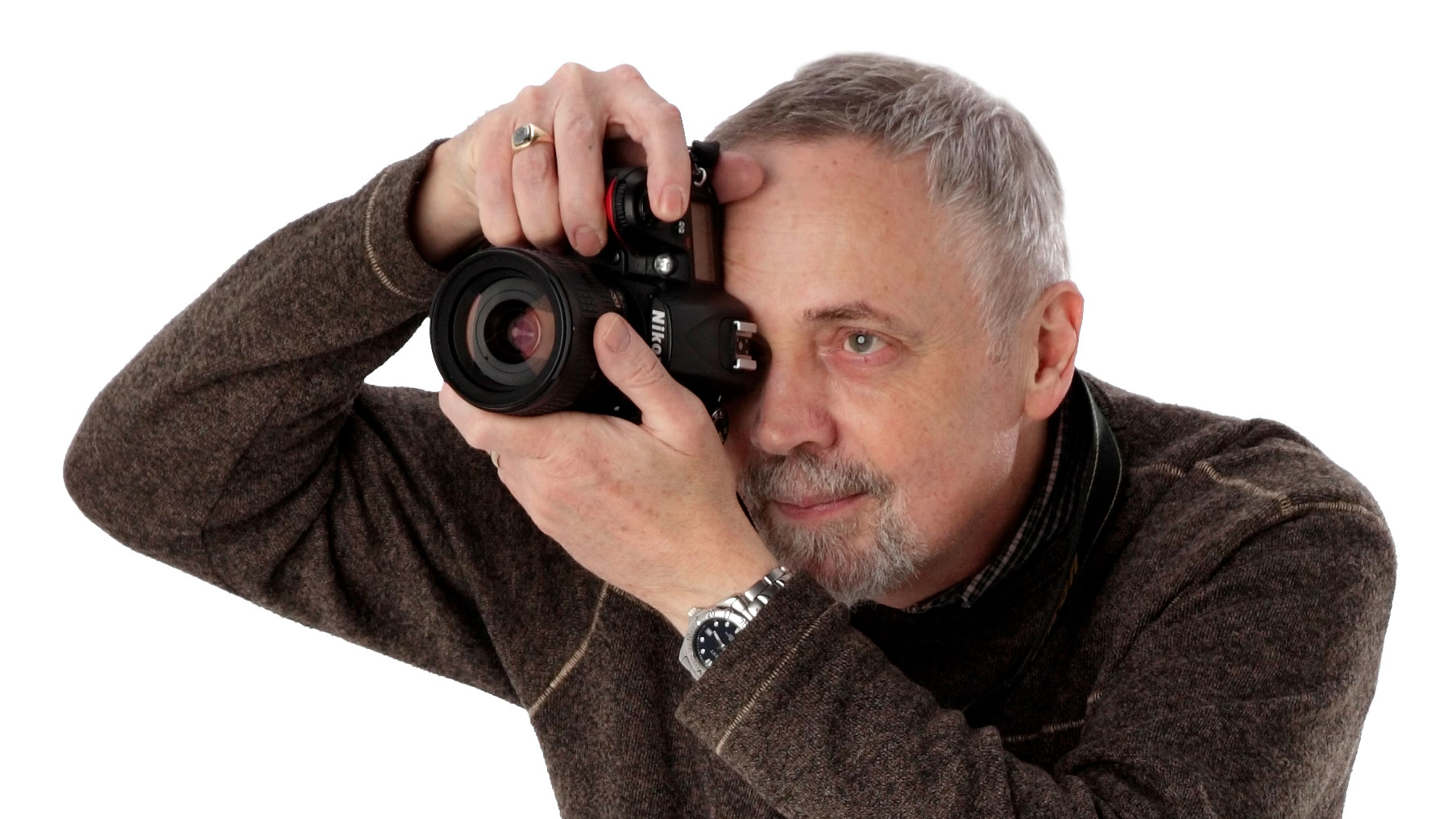
Rod is an independent photography journalist and editor, and a long-standing Digital Camera World contributor, having previously worked as DCW's Group Reviews editor. Before that he has been technique editor on N-Photo, Head of Testing for the photography division and Camera Channel editor on TechRadar, as well as contributing to many other publications. He has been writing about photography technique, photo editing and digital cameras since they first appeared, and before that began his career writing about film photography. He has used and reviewed practically every interchangeable lens camera launched in the past 20 years, from entry-level DSLRs to medium format cameras, together with lenses, tripods, gimbals, light meters, camera bags and more. Rod has his own camera gear blog at fotovolo.com but also writes about photo-editing applications and techniques at lifeafterphotoshop.com
